Louis Dondino. No. 6614.
Images
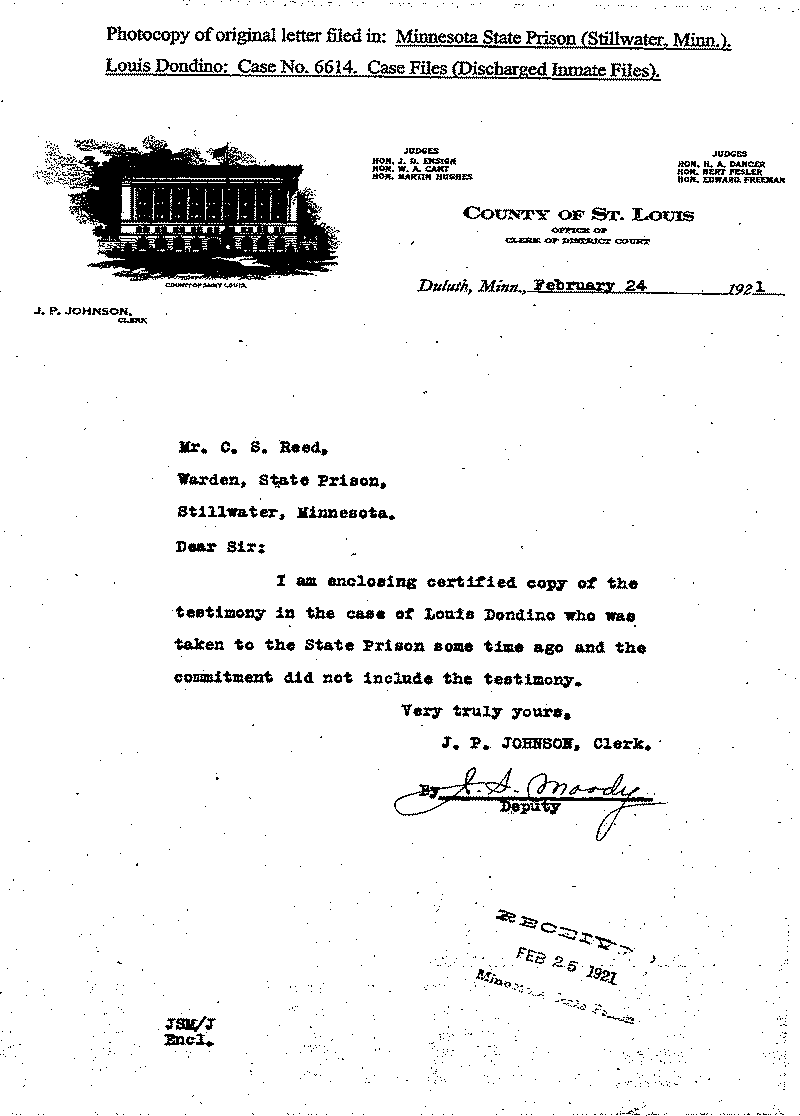
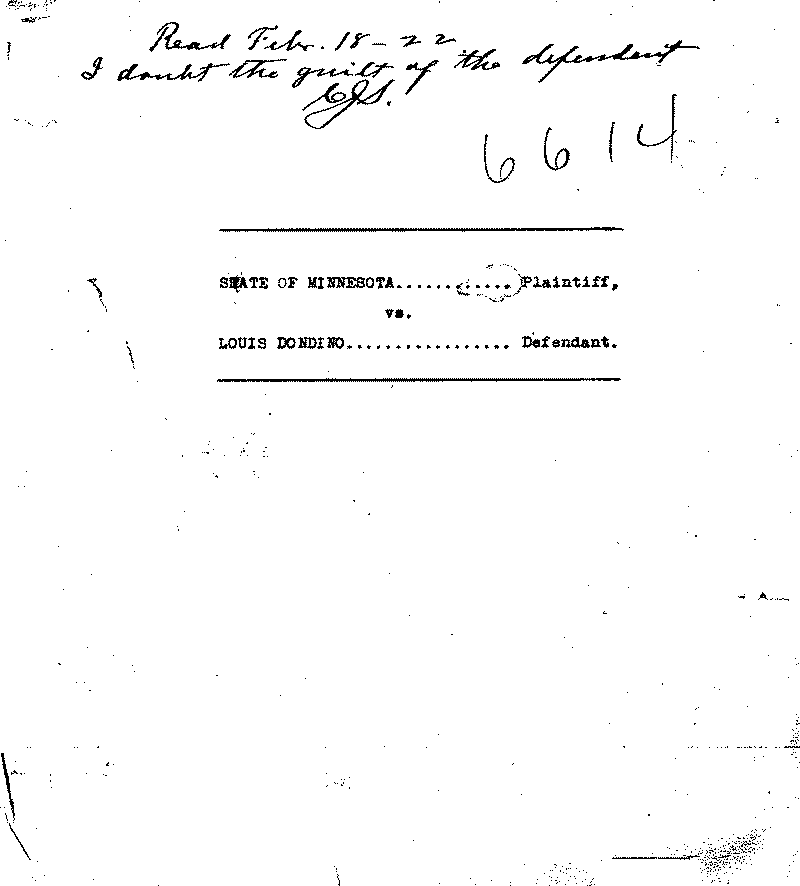
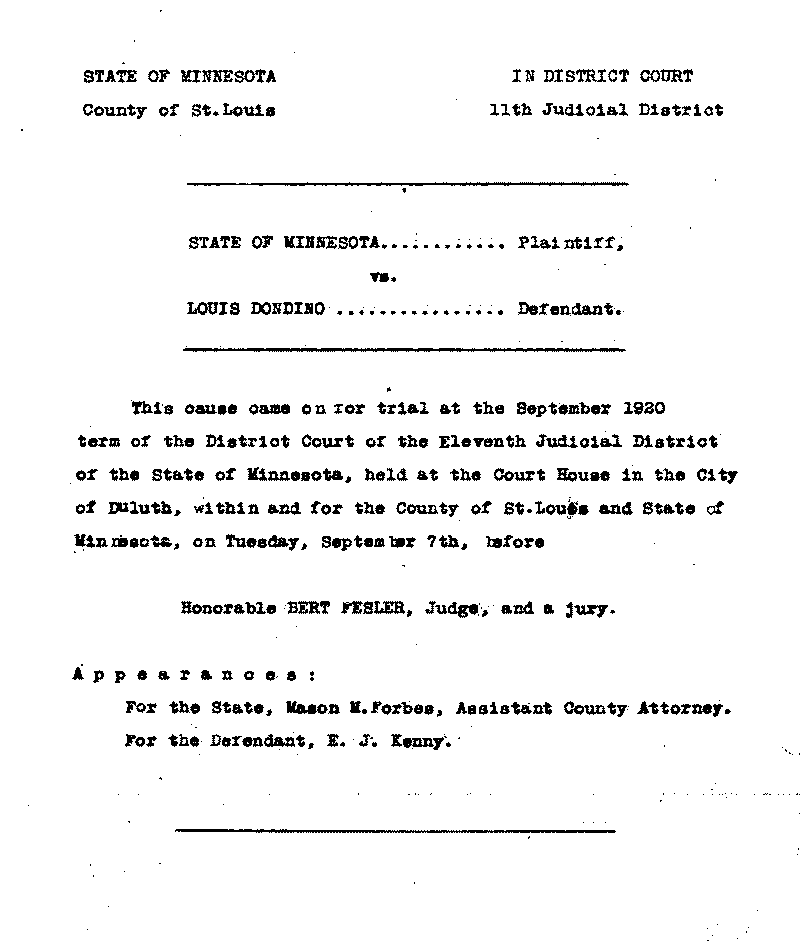
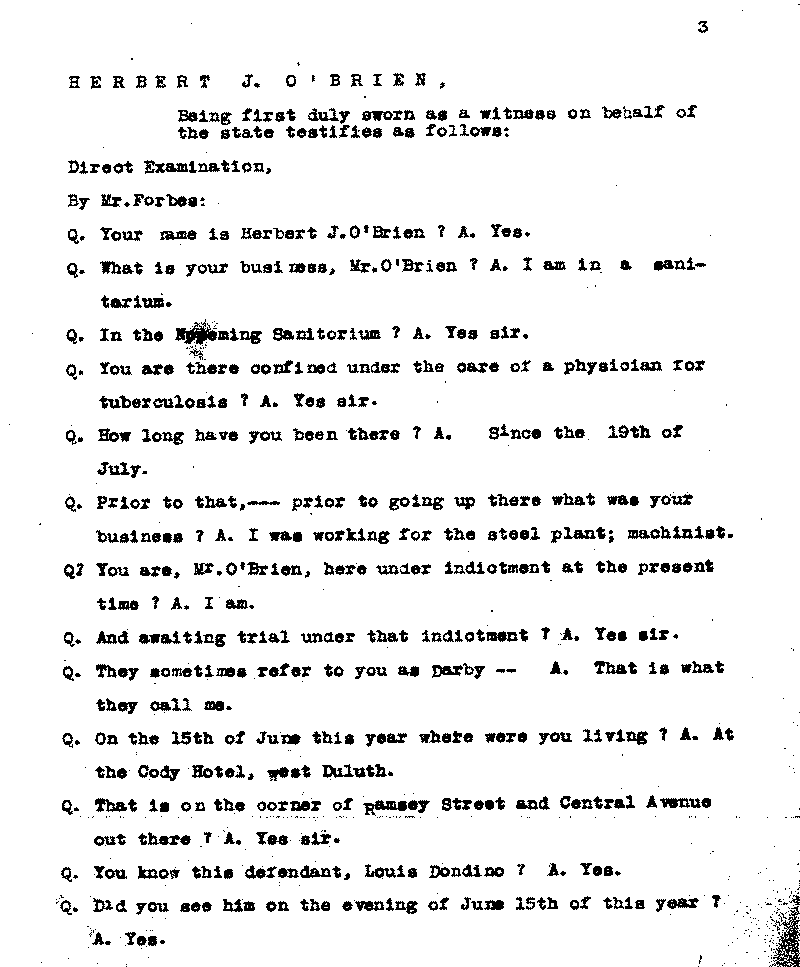
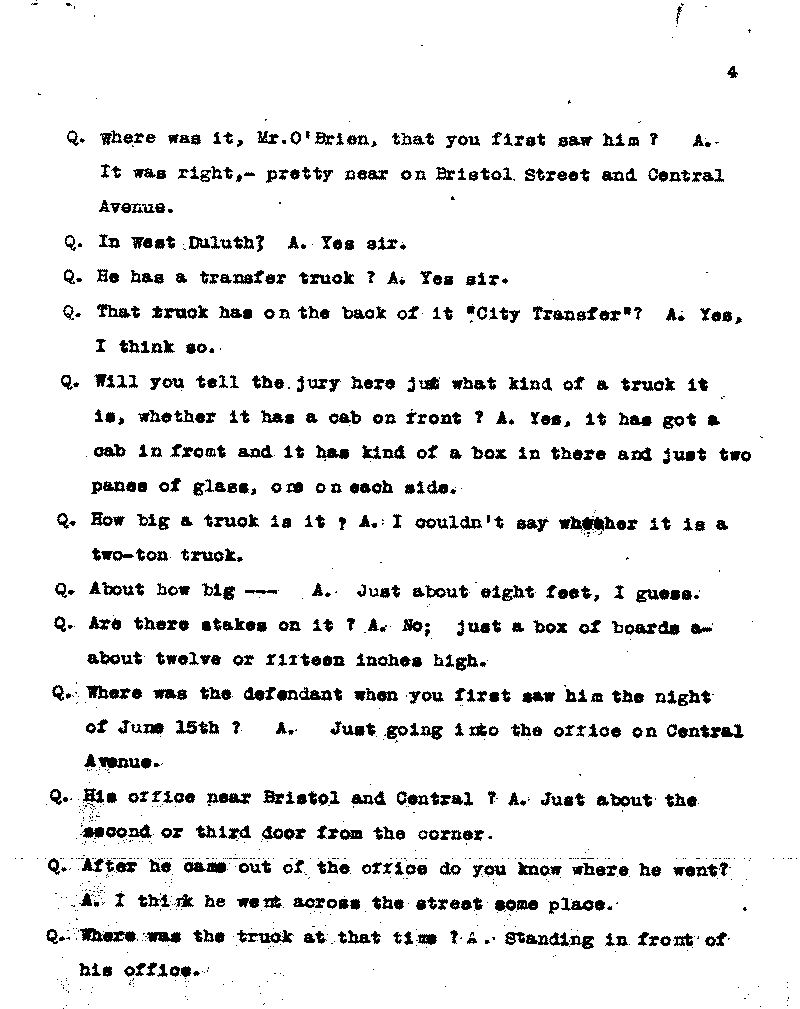
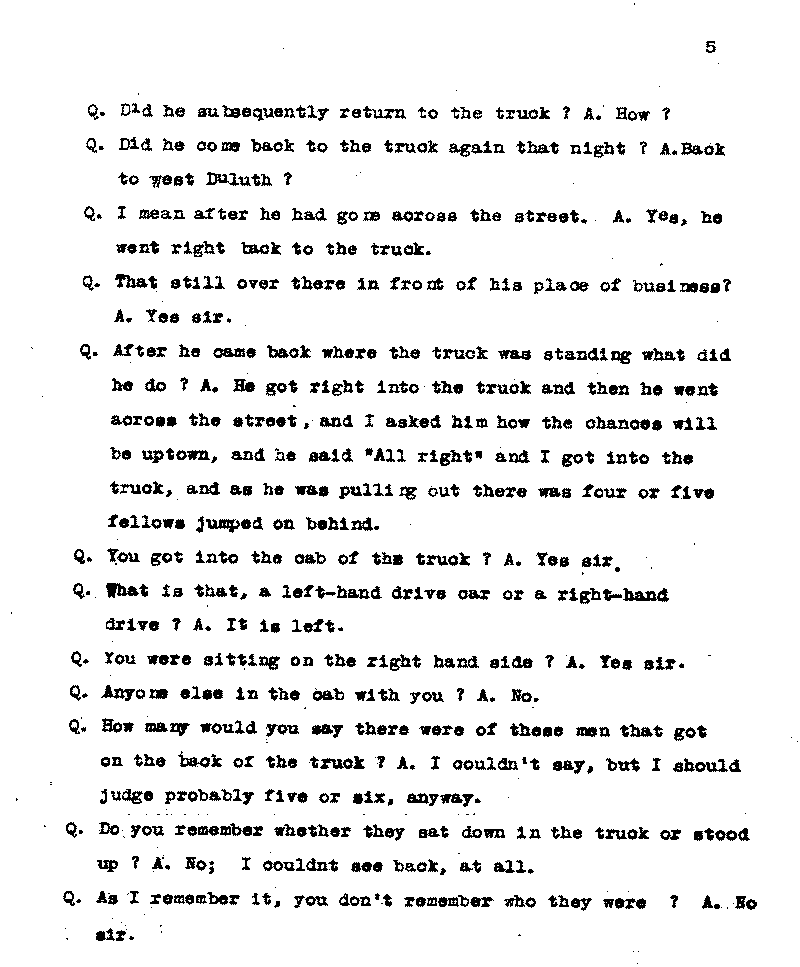
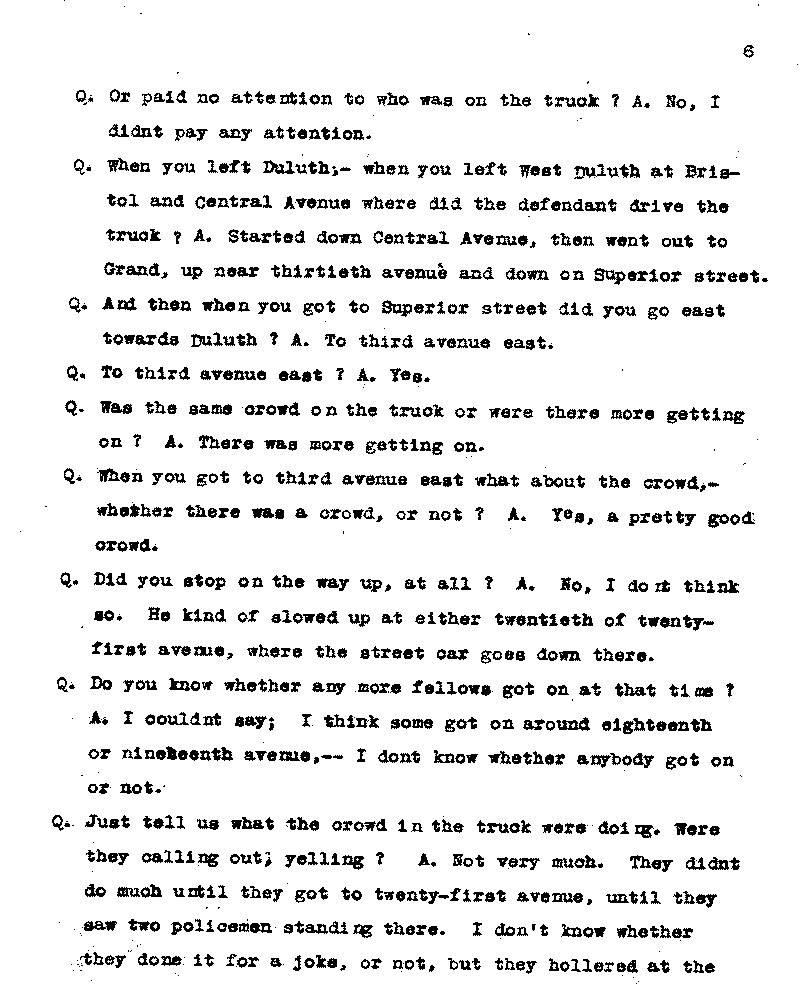
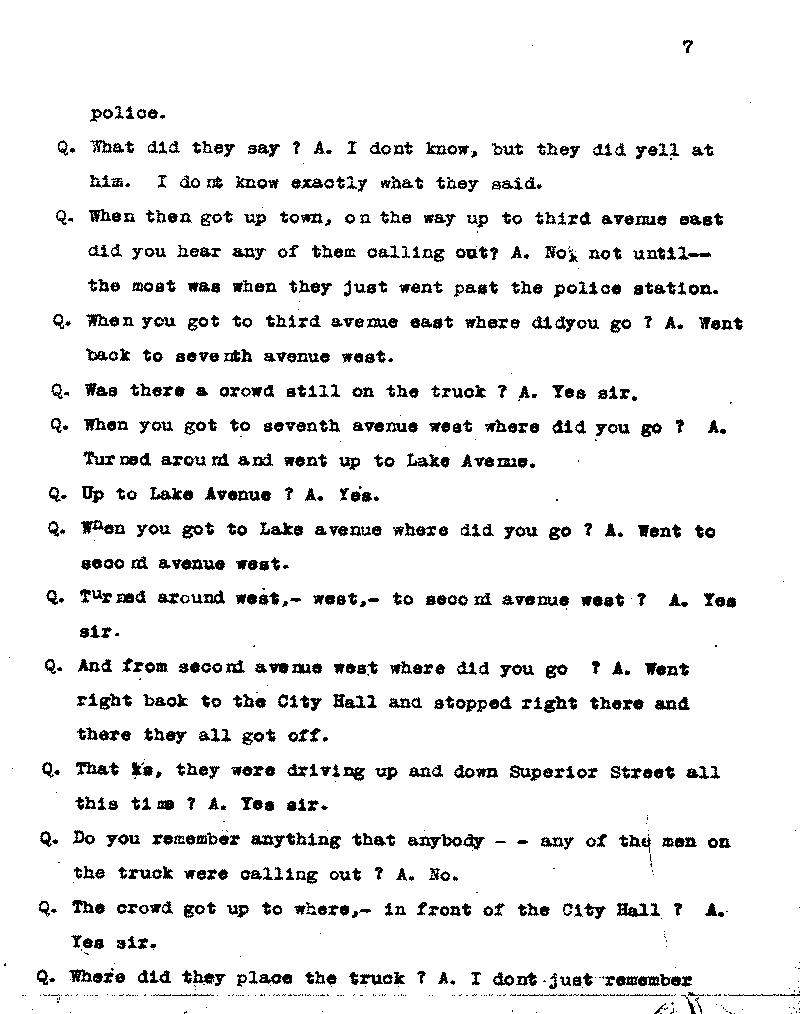
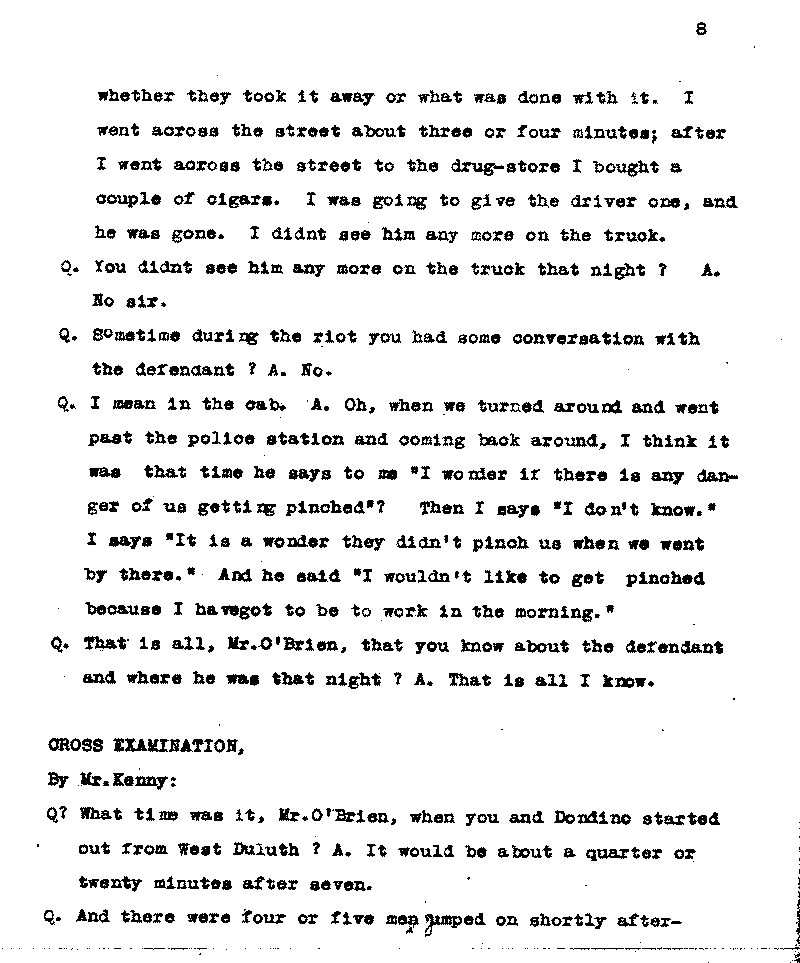
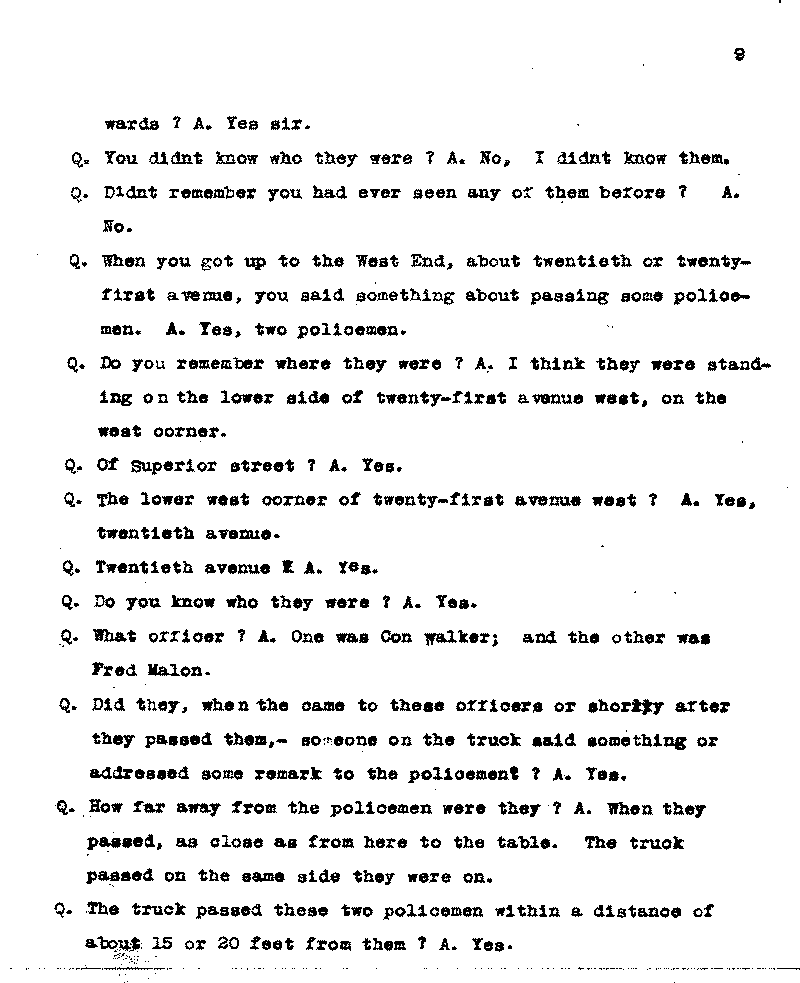
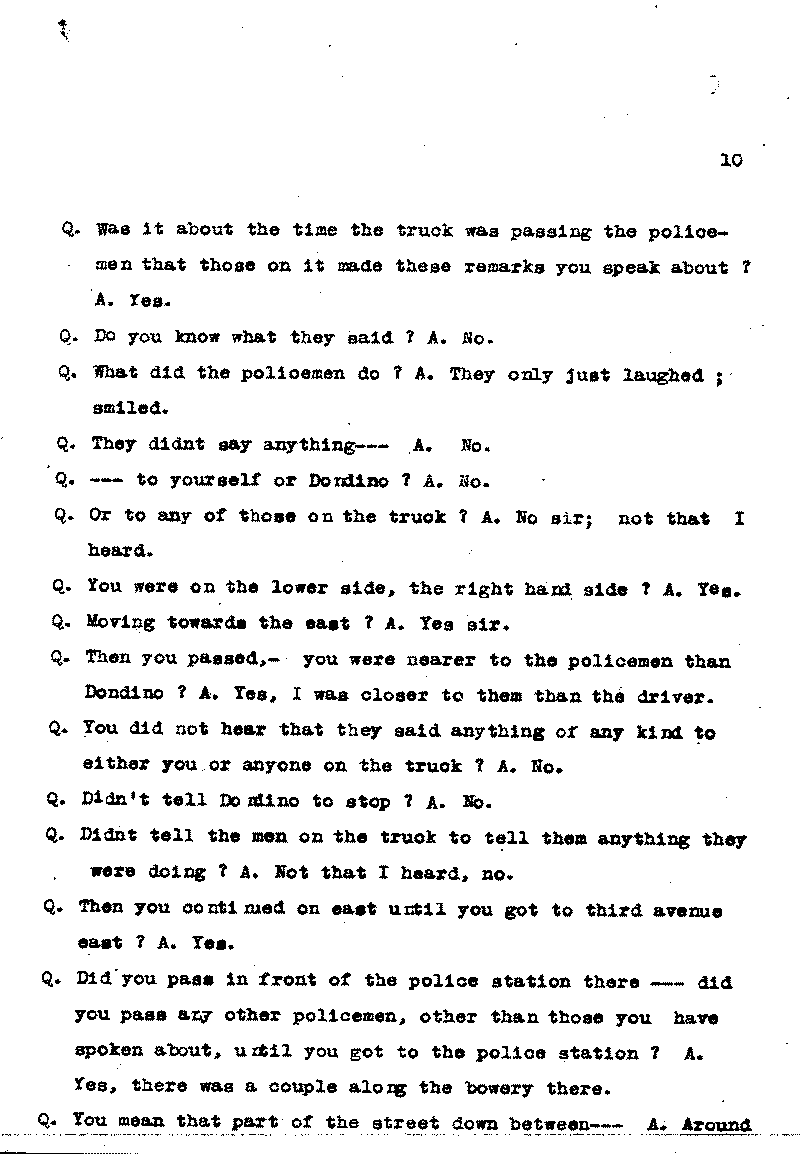
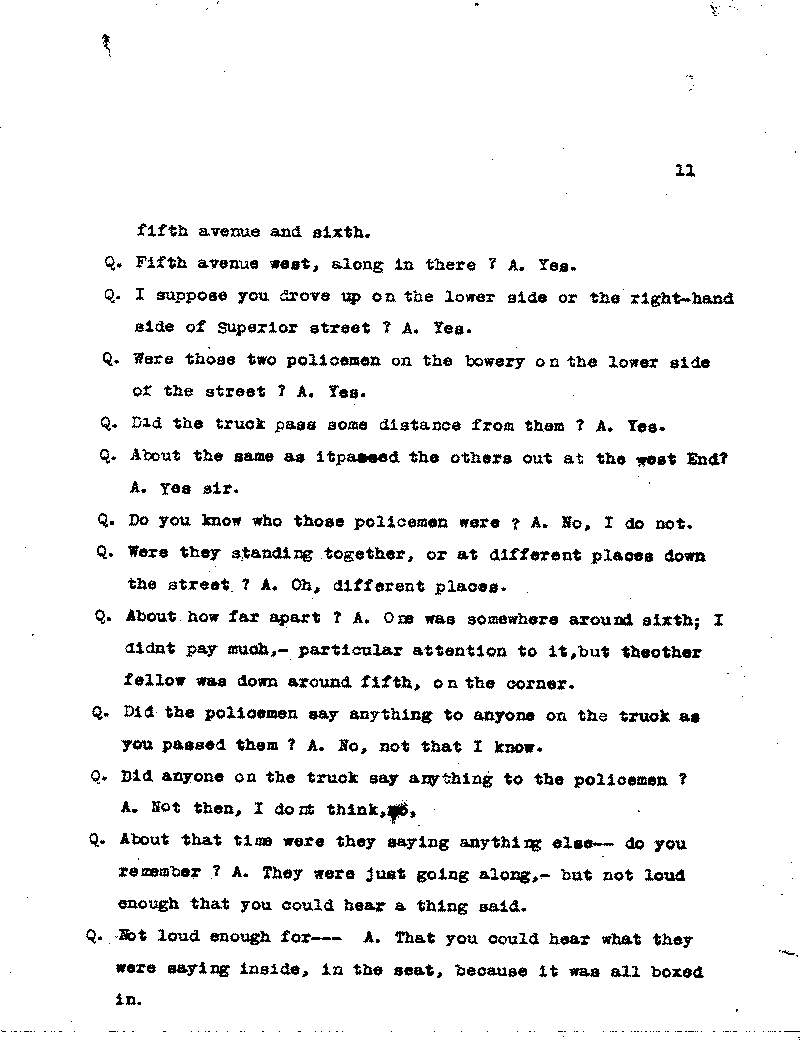
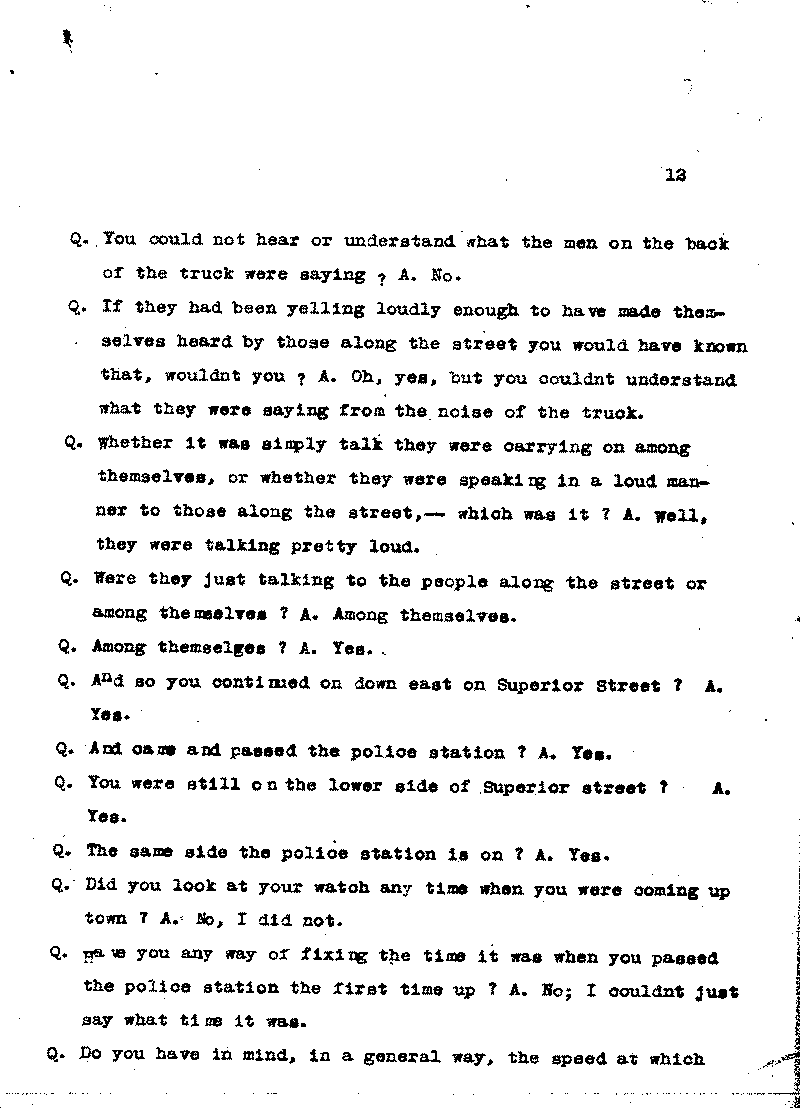
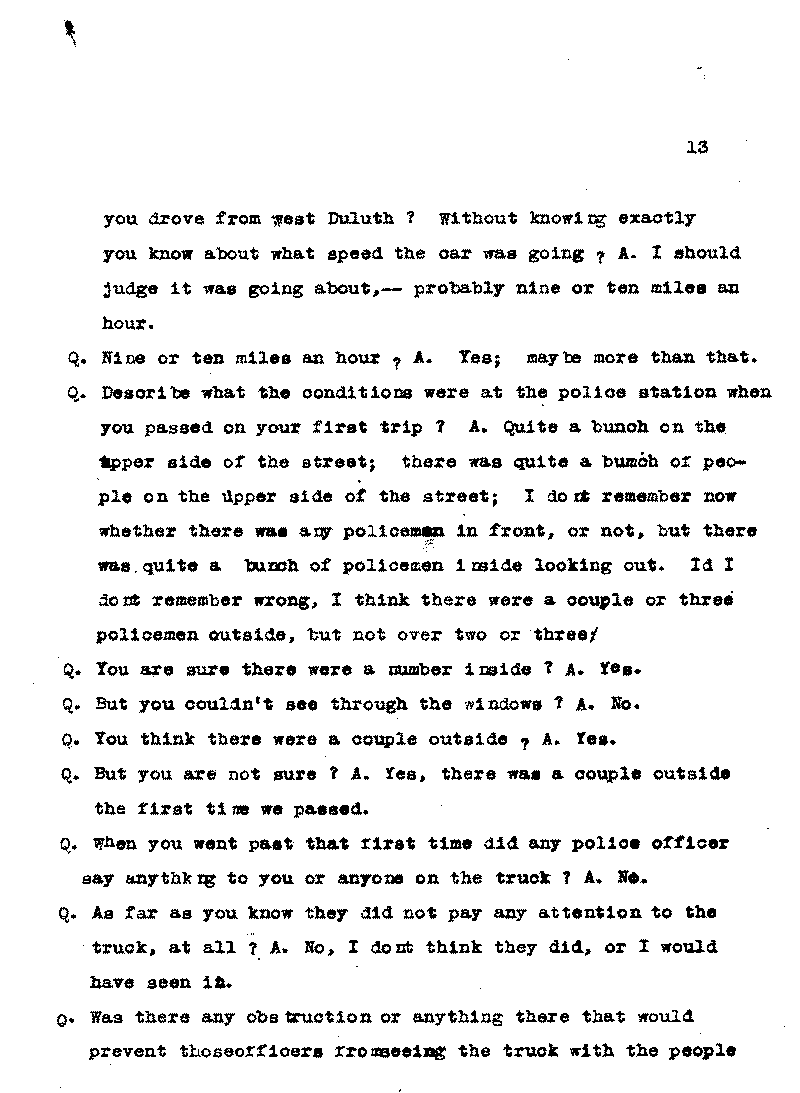
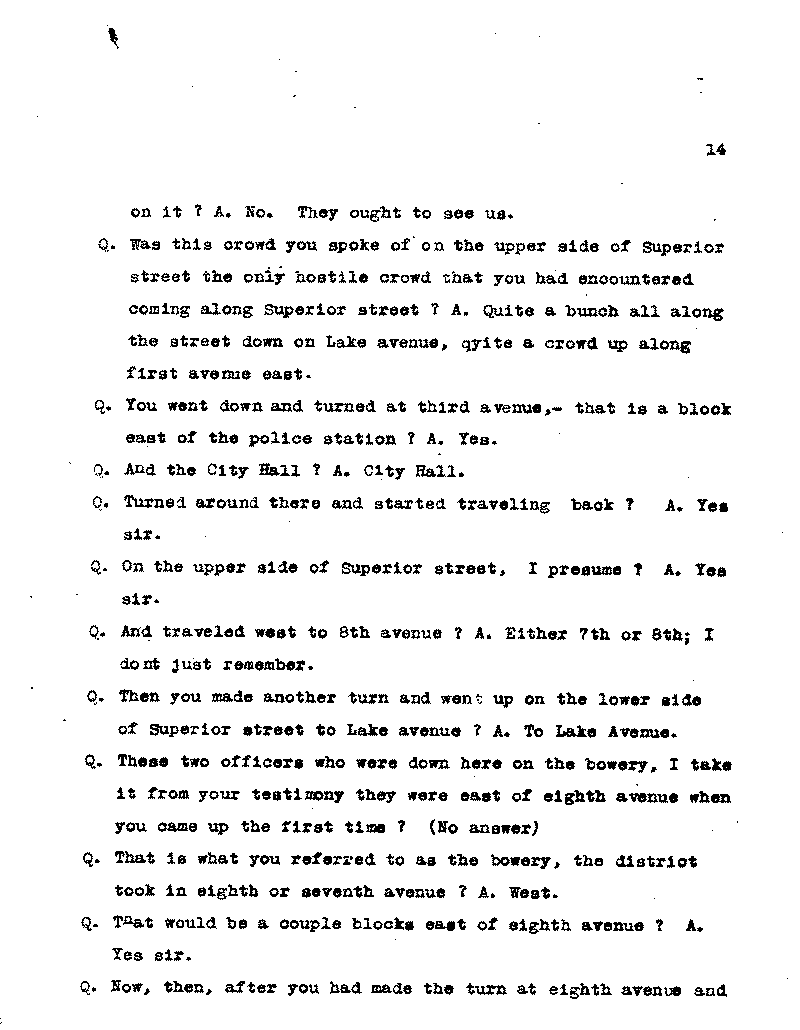
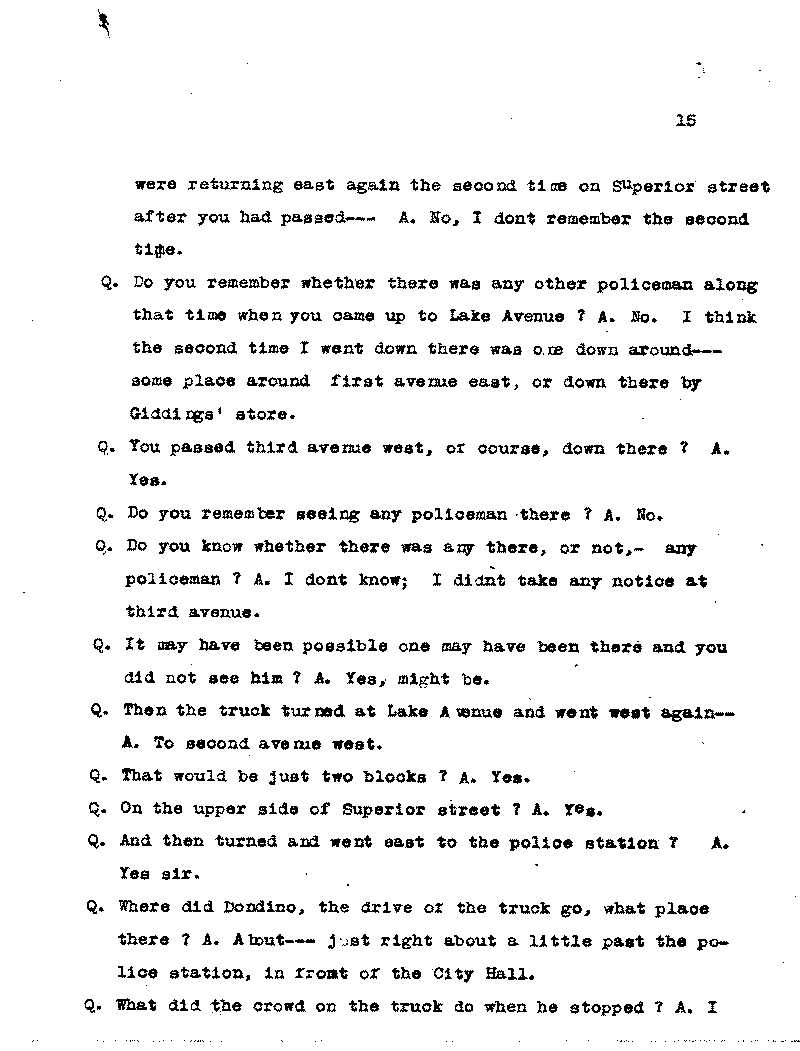
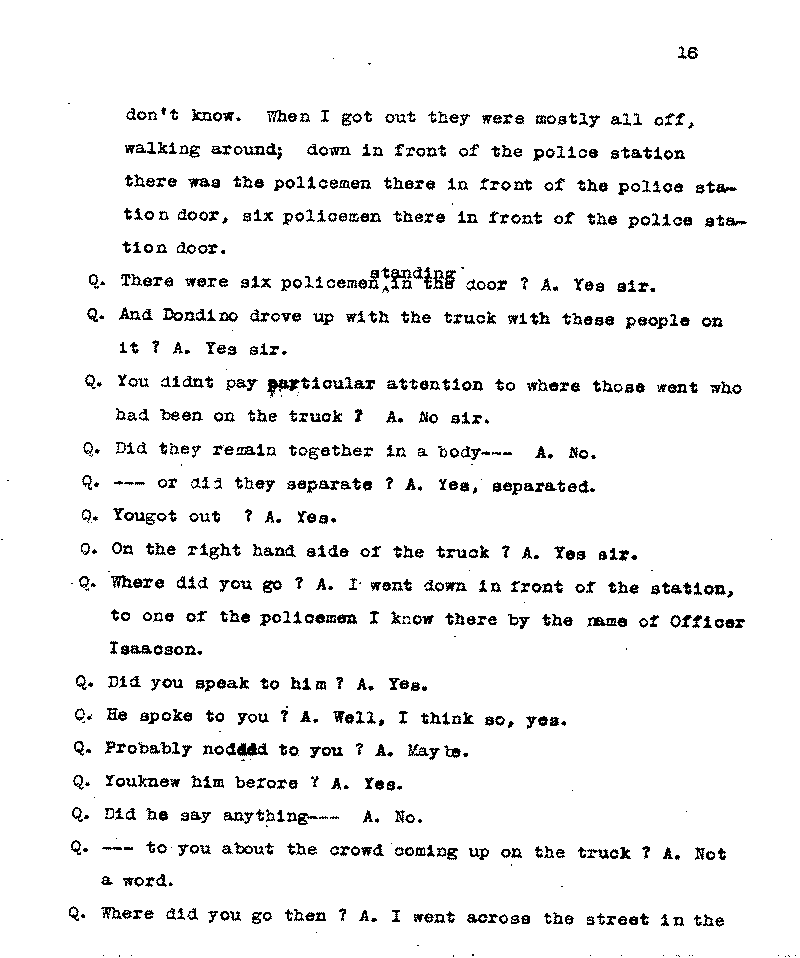
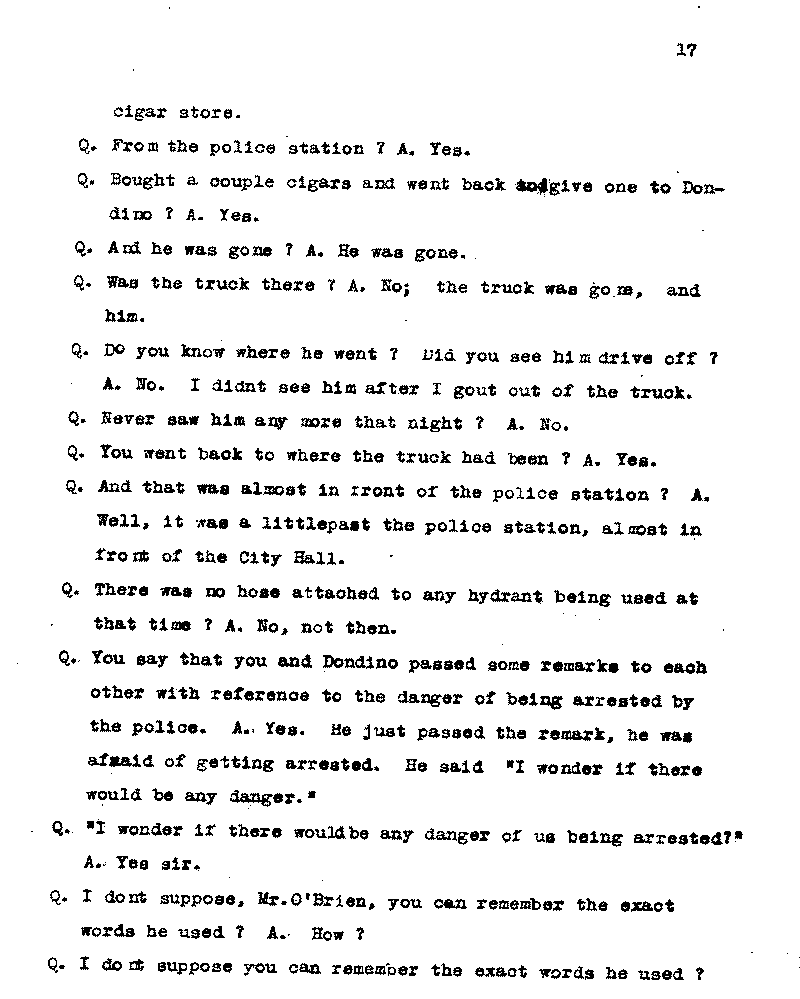
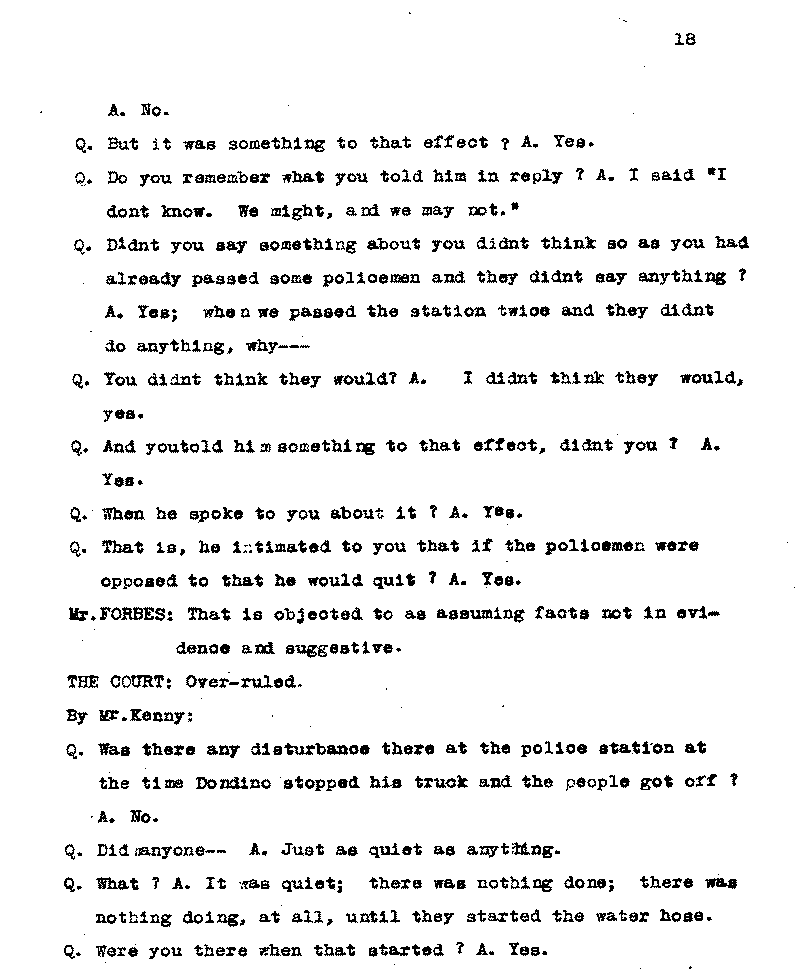
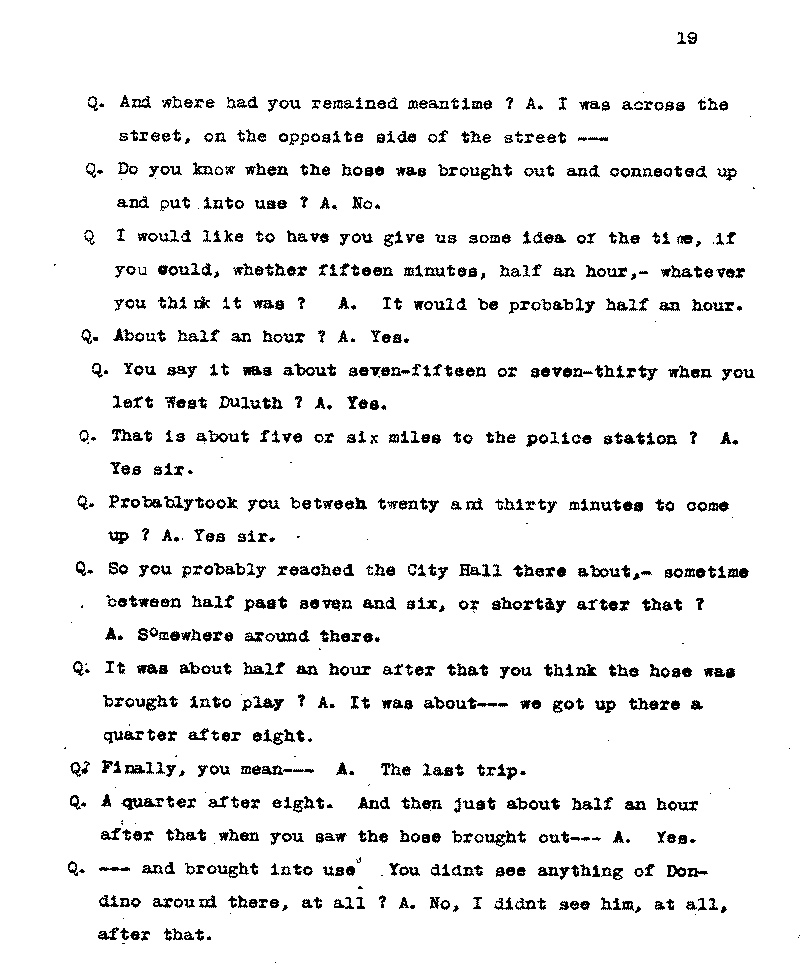
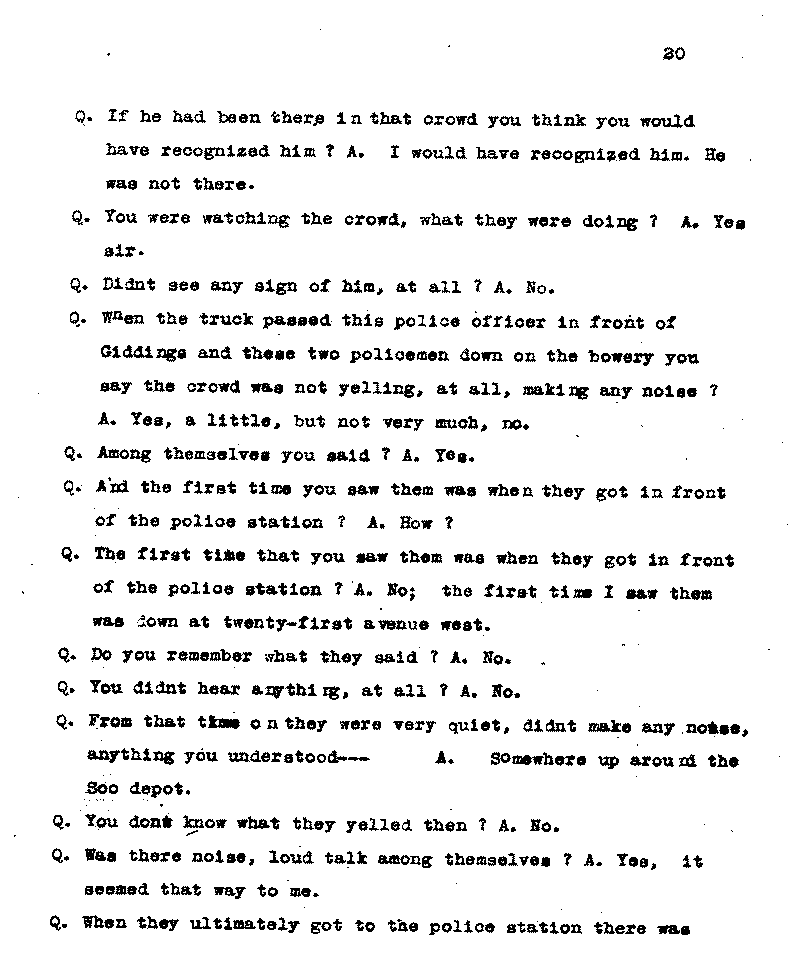
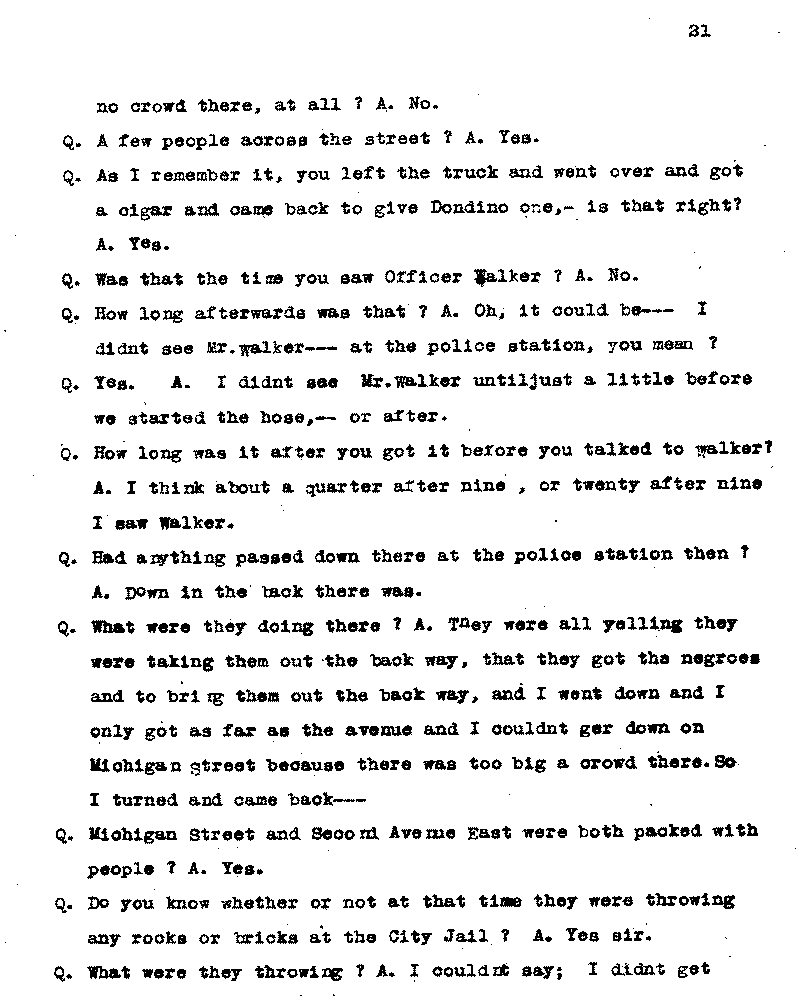
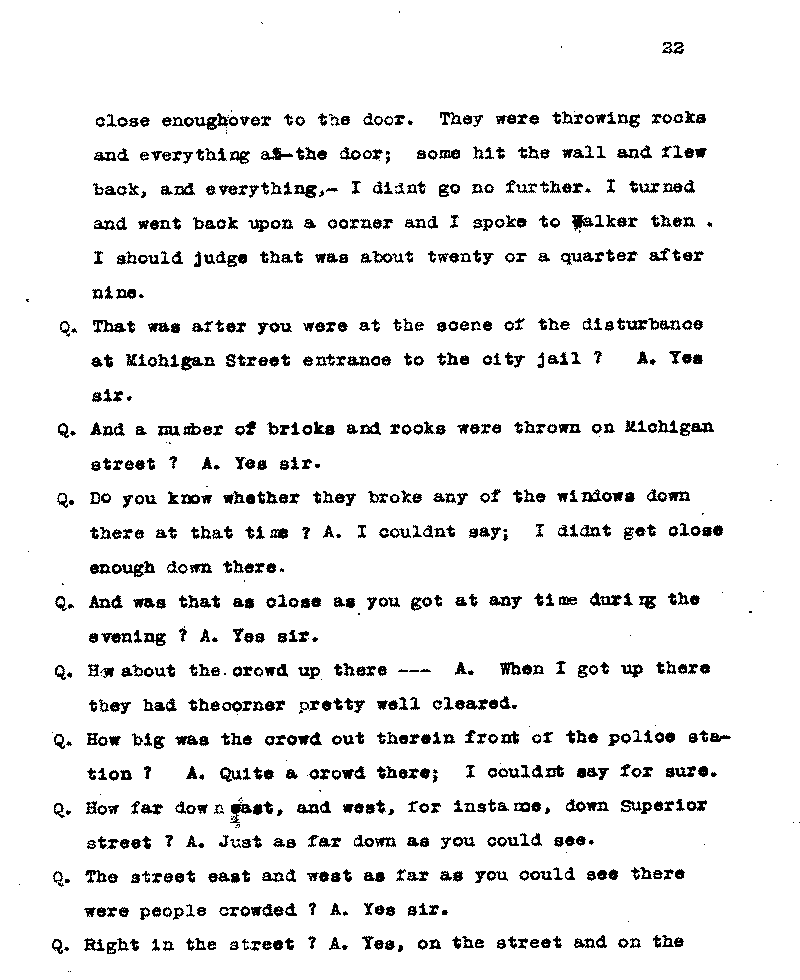
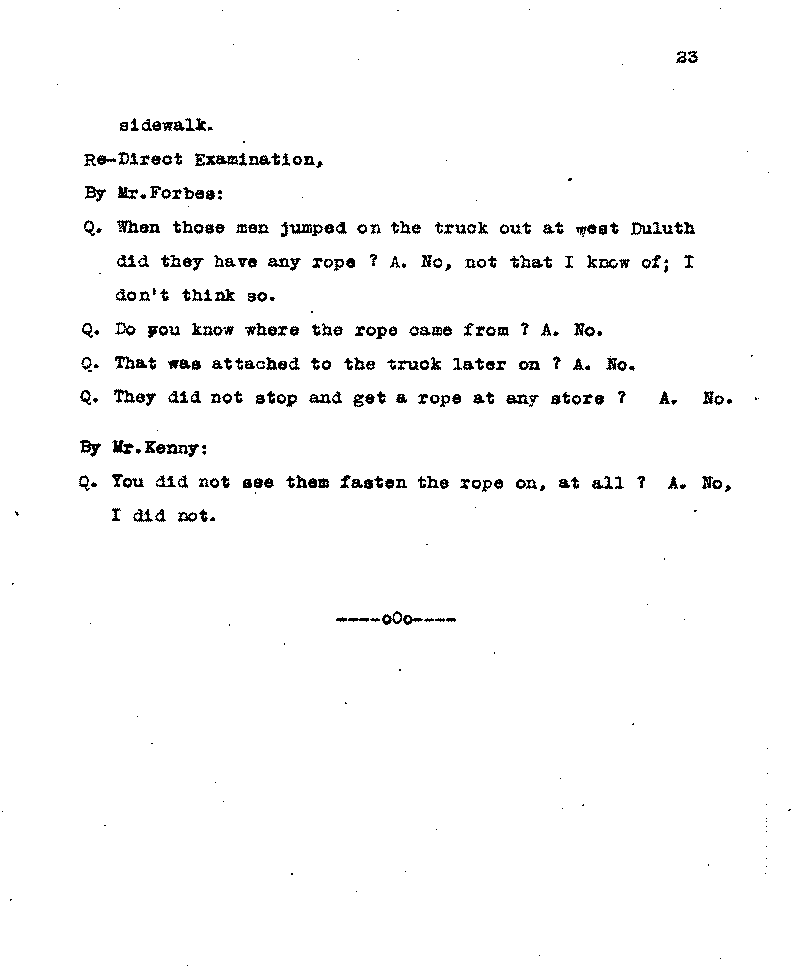
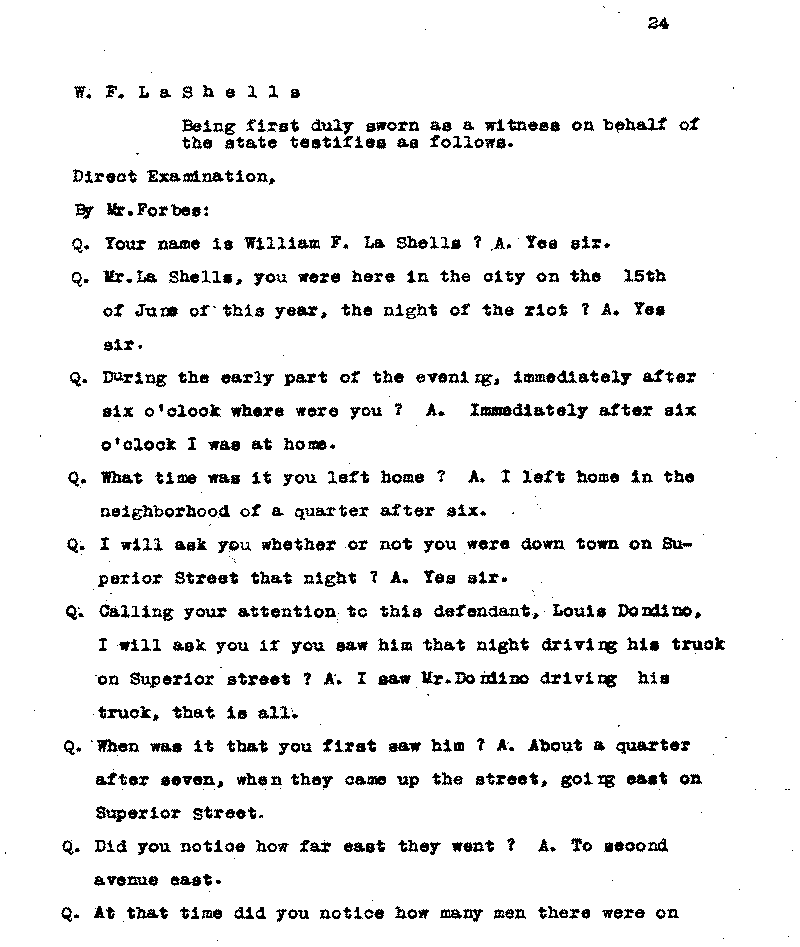
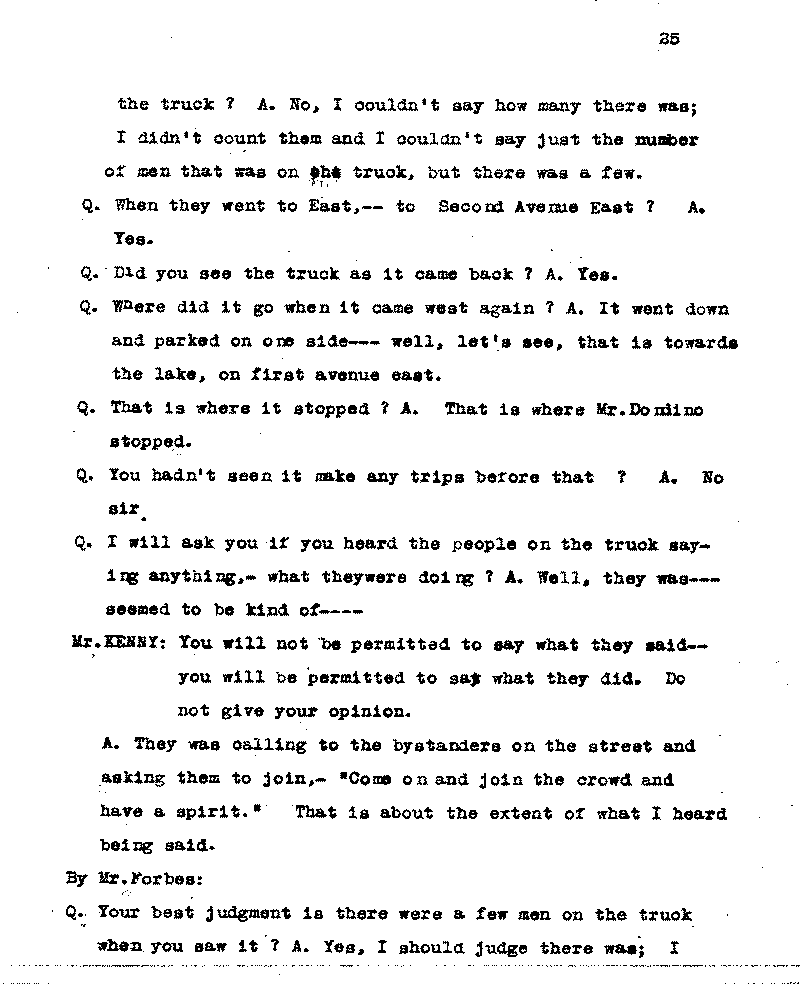
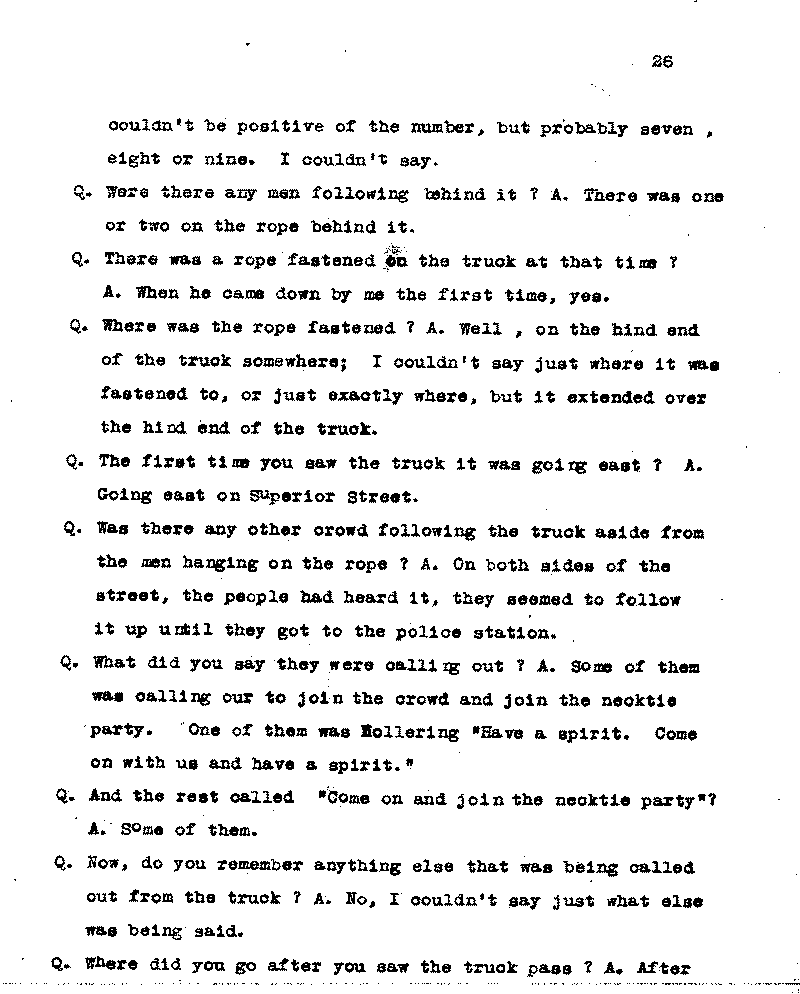
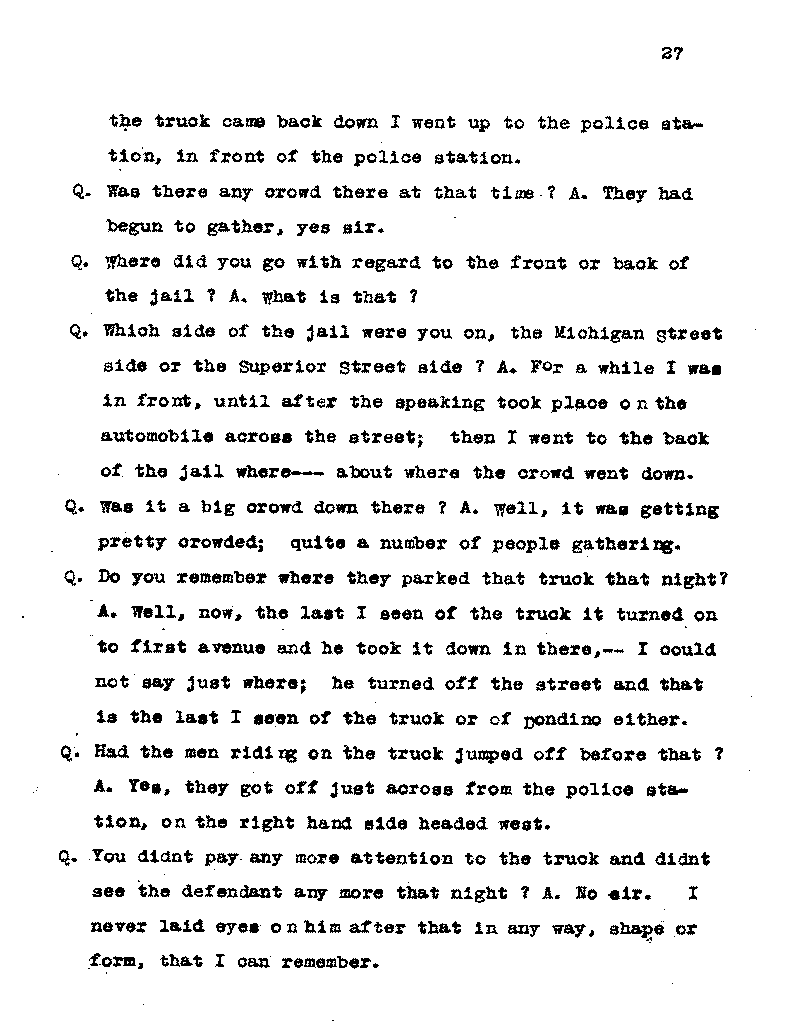
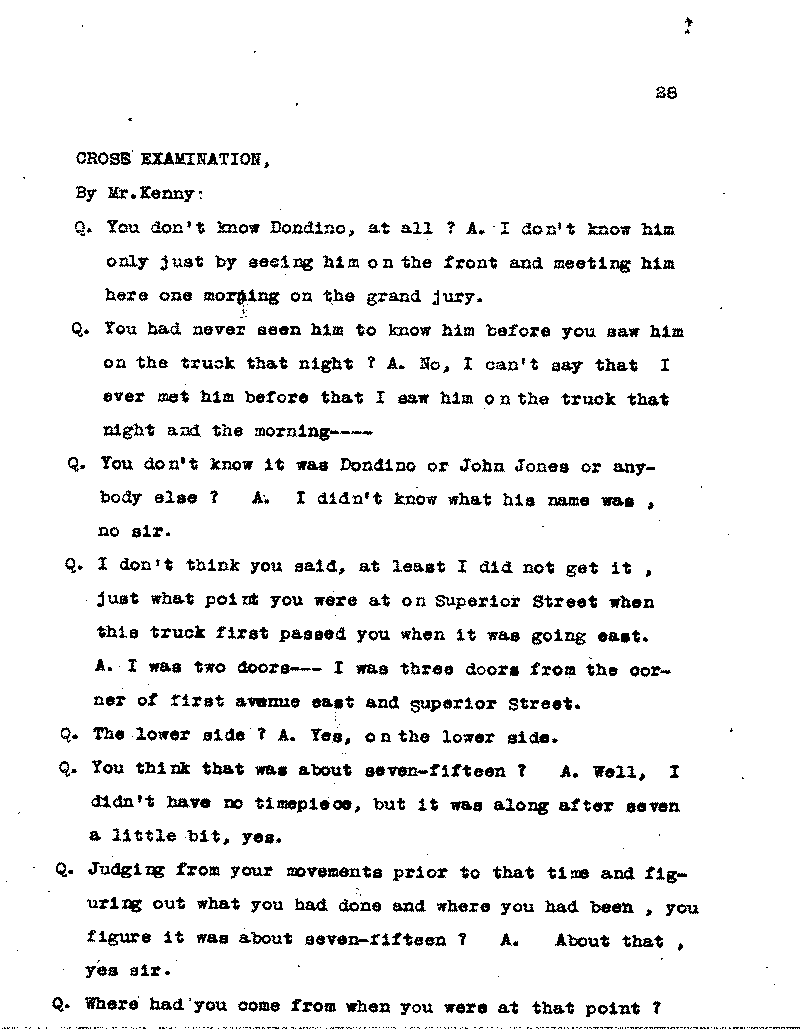
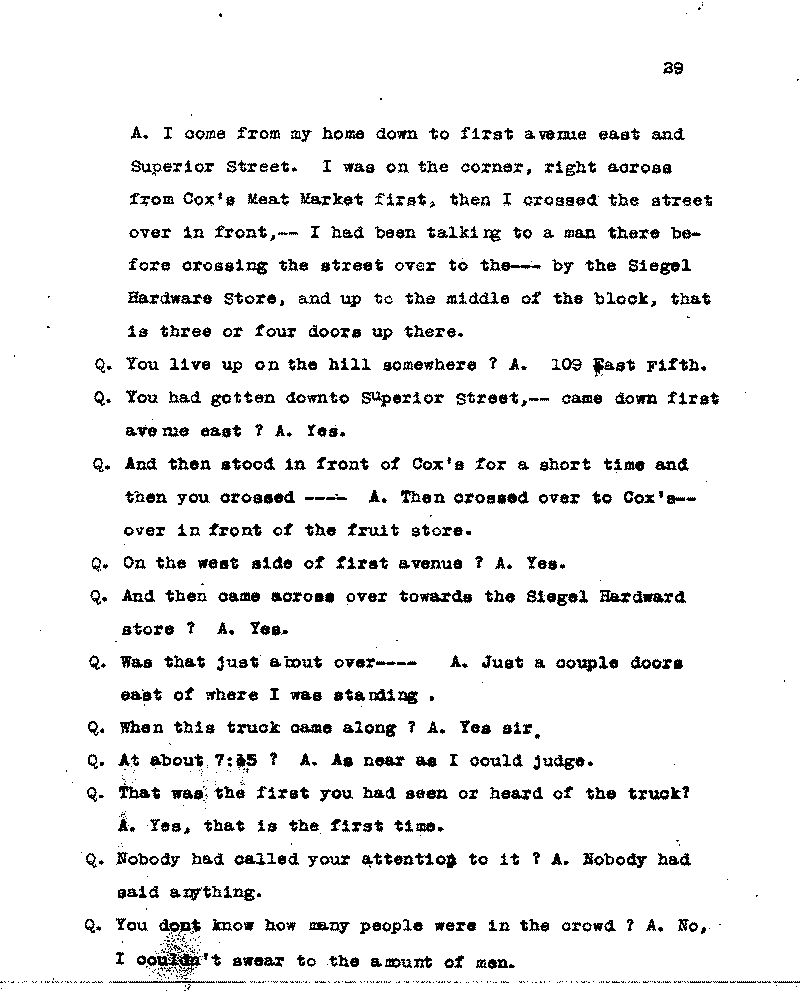
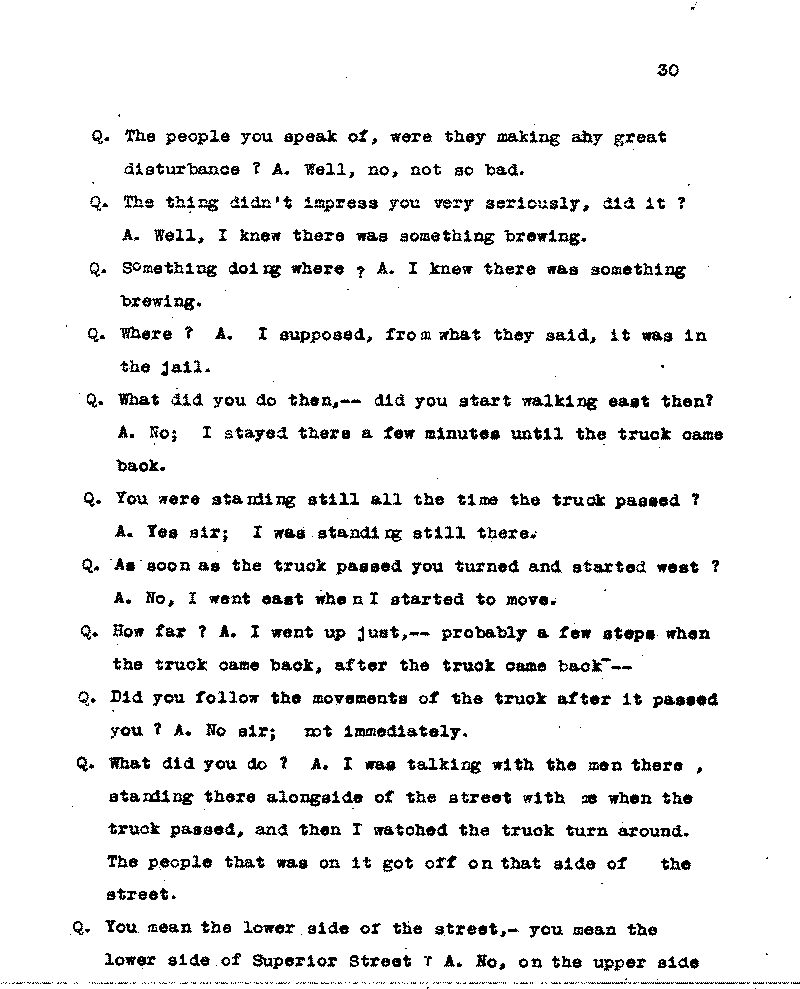
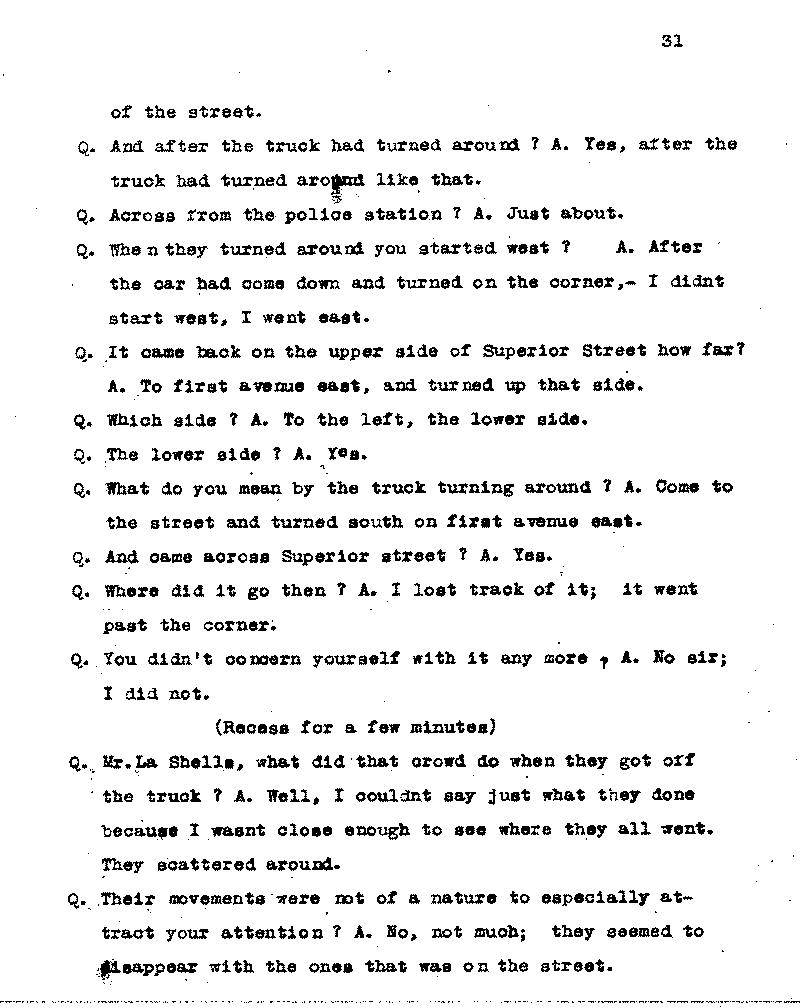
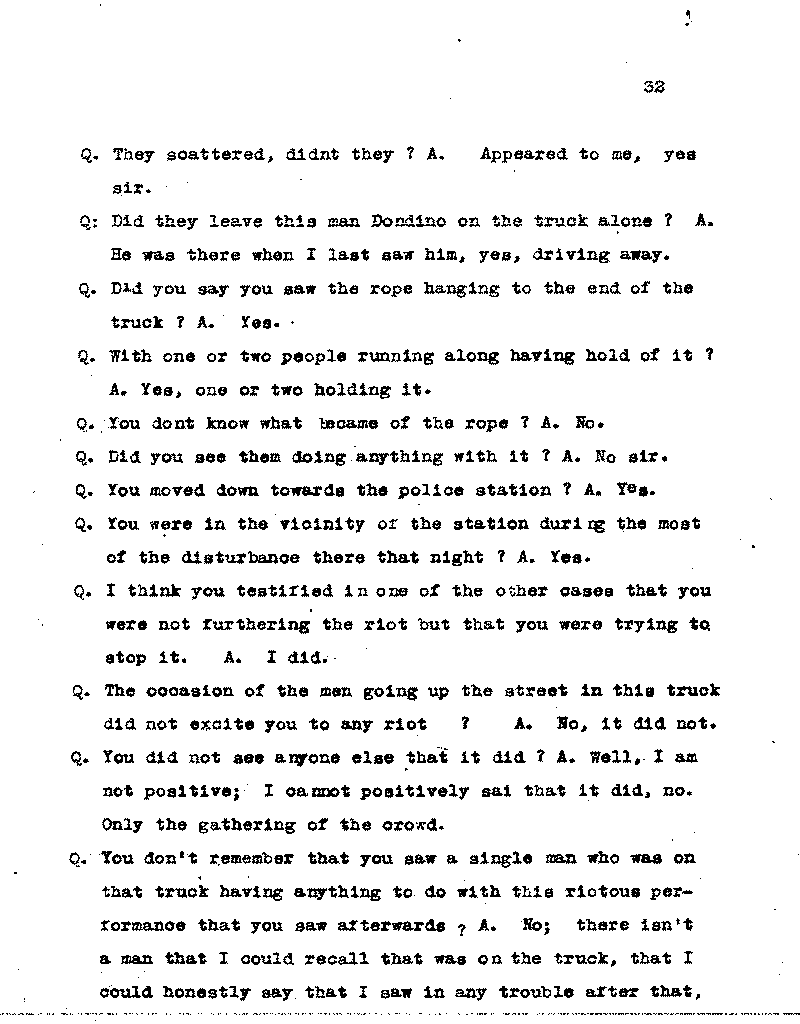
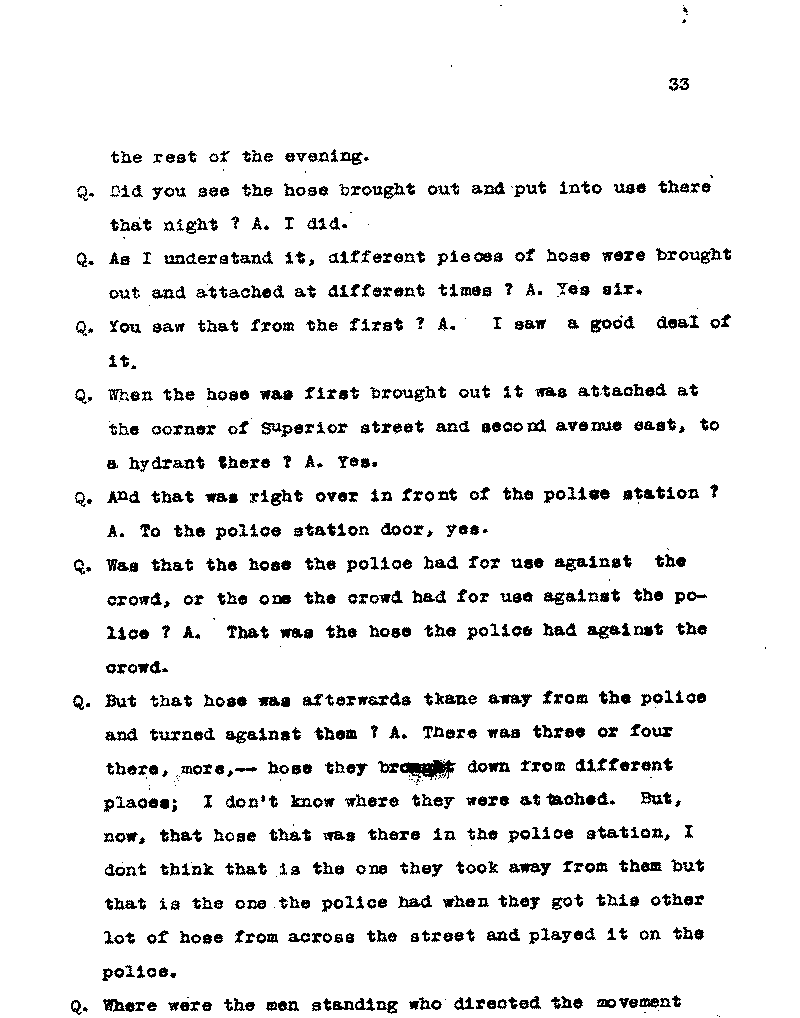
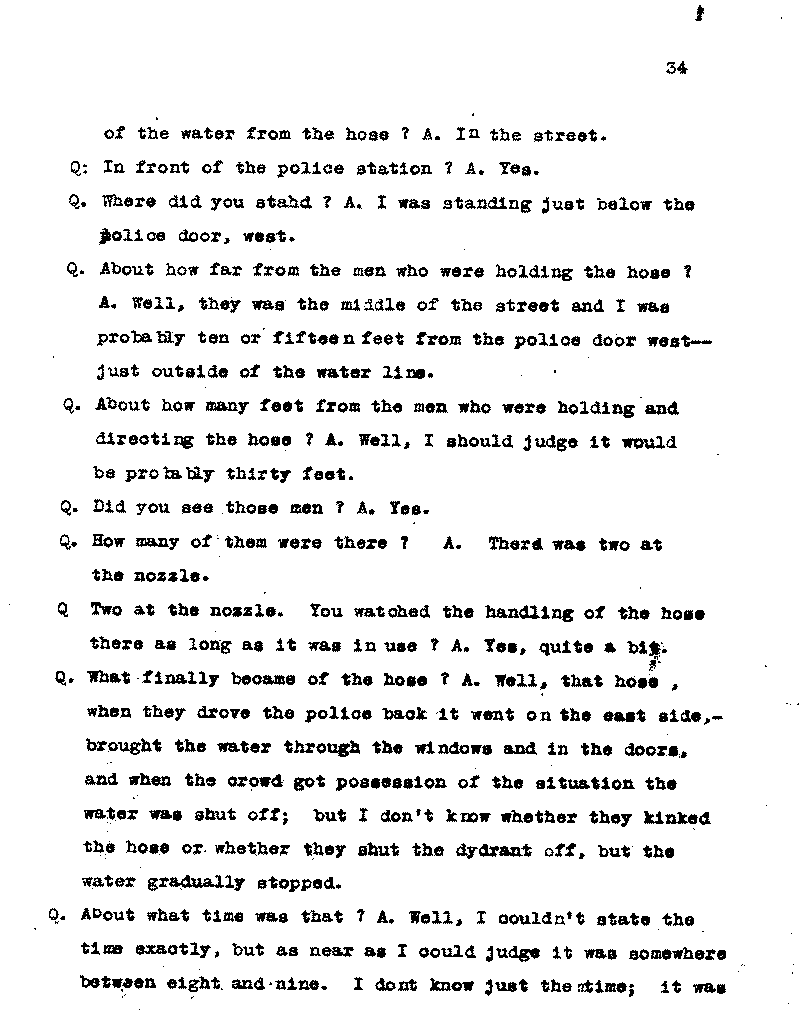
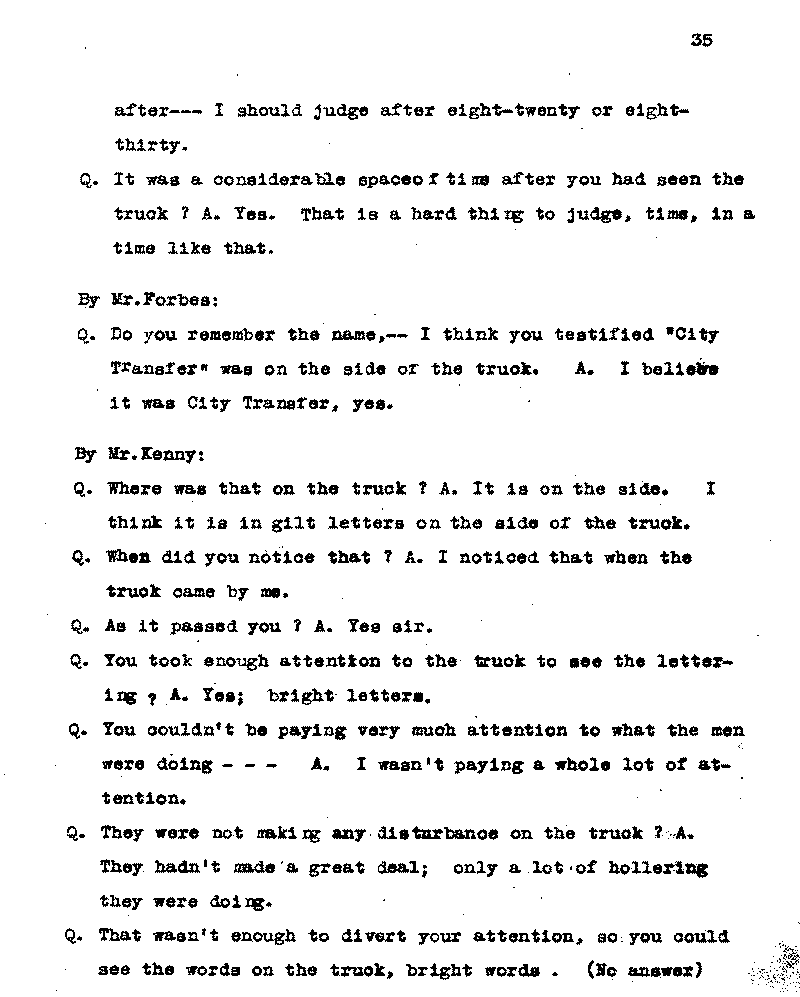
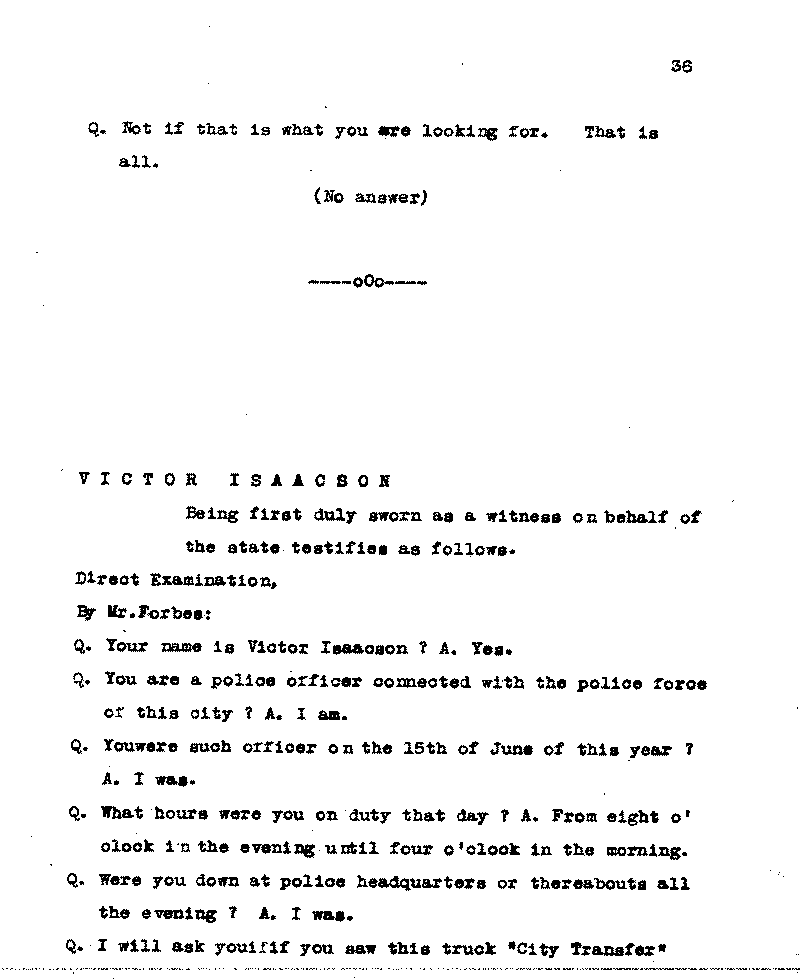
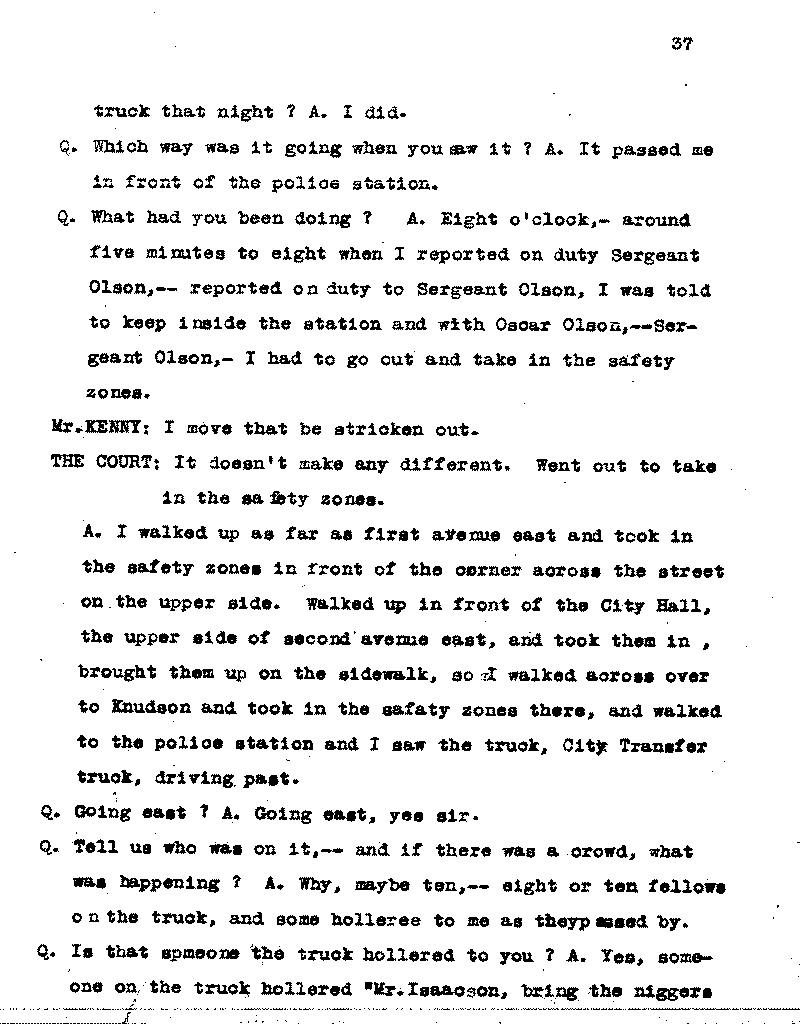
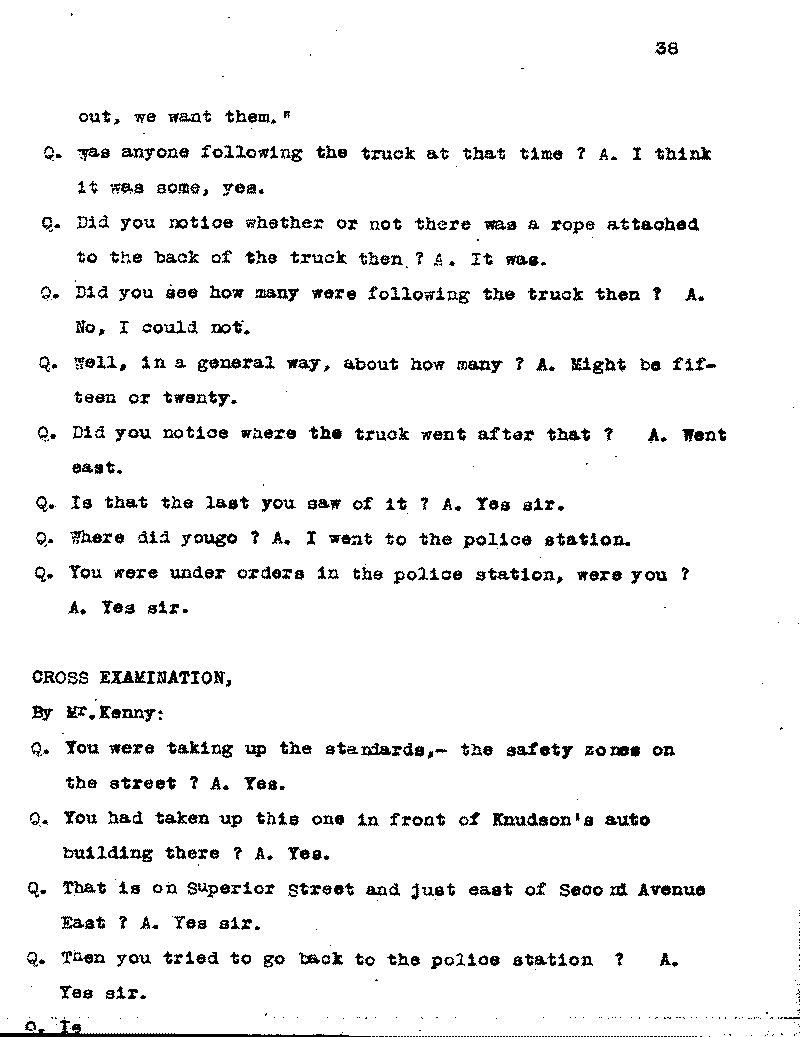
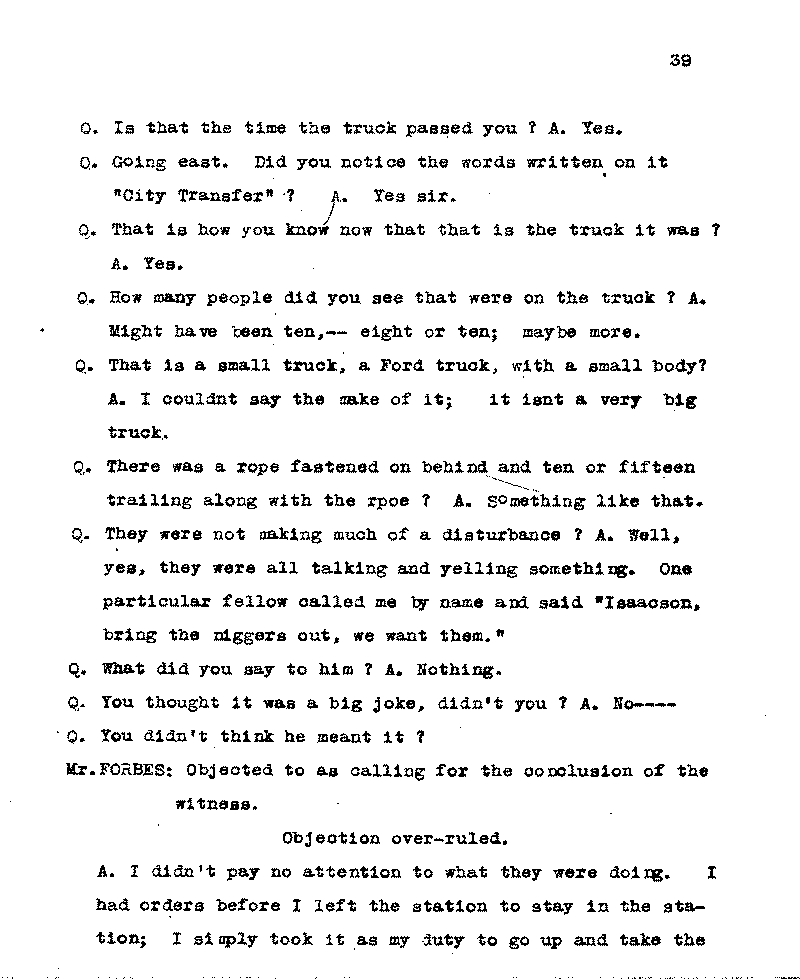
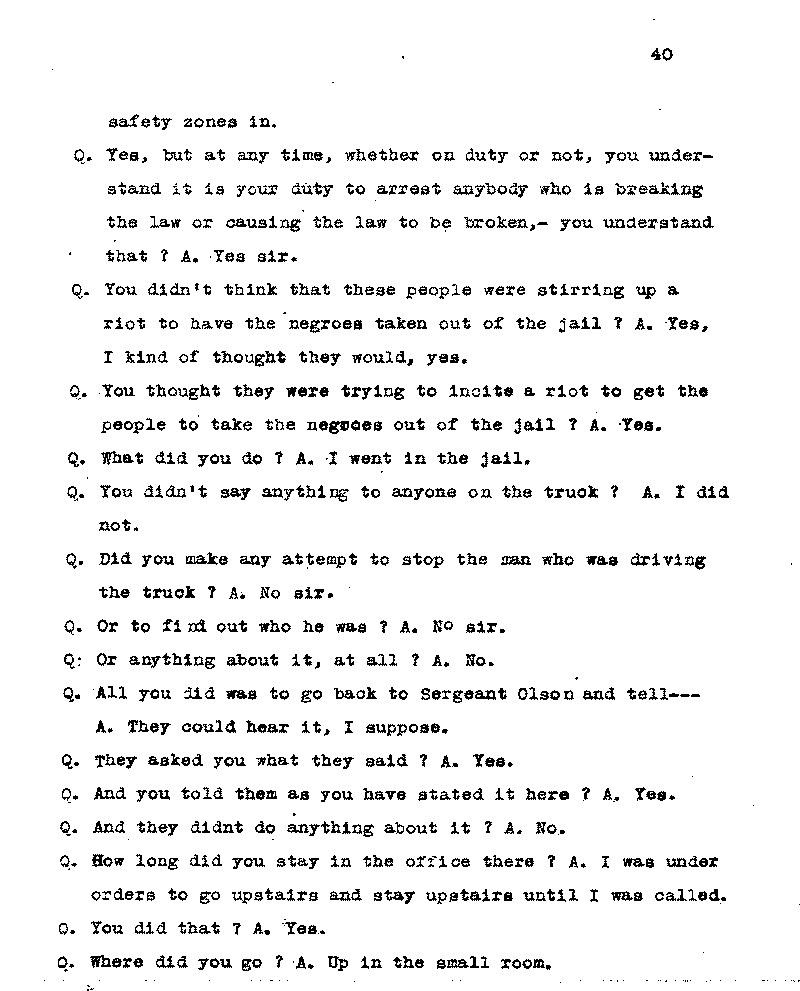
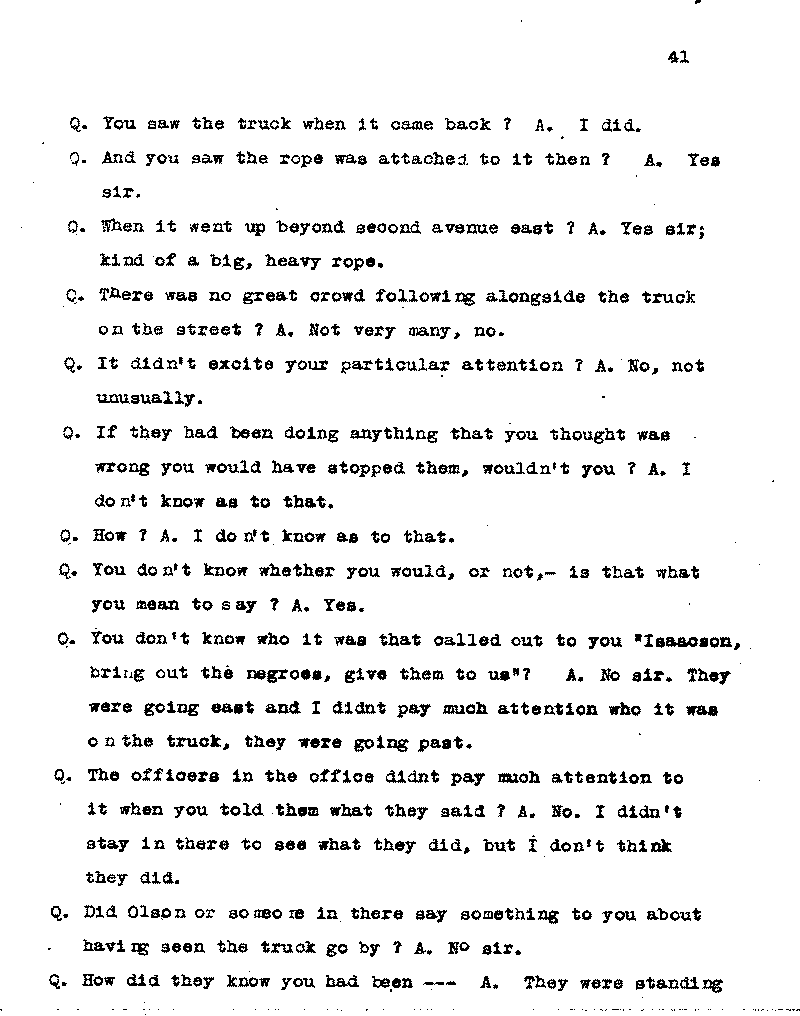
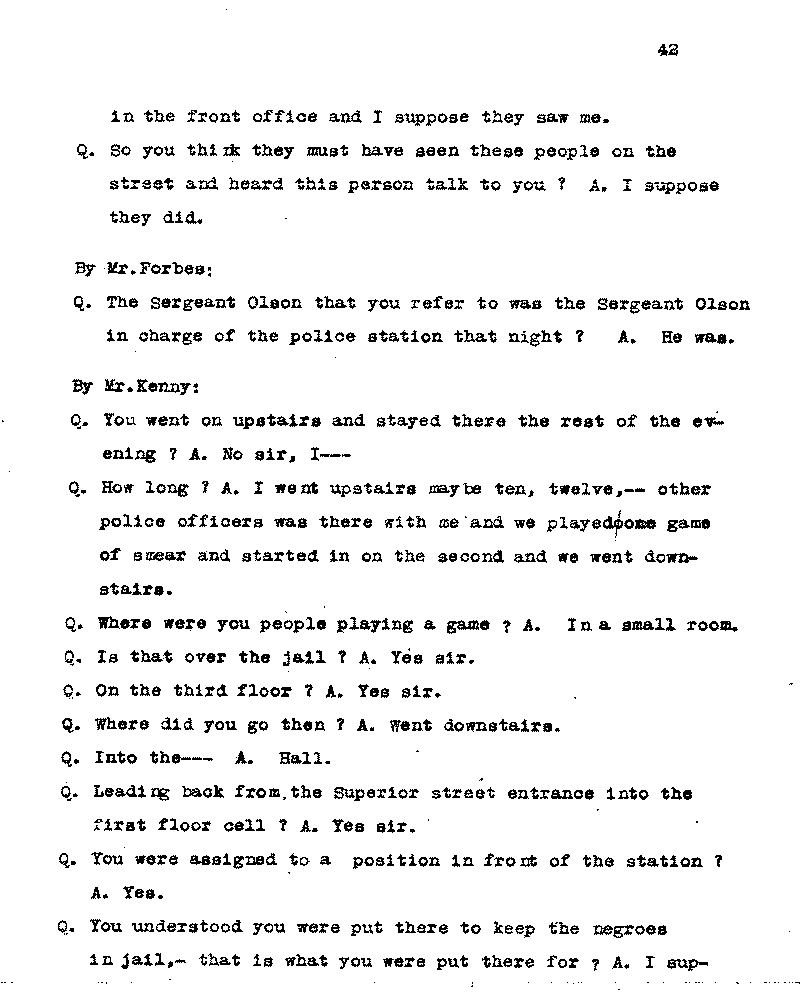
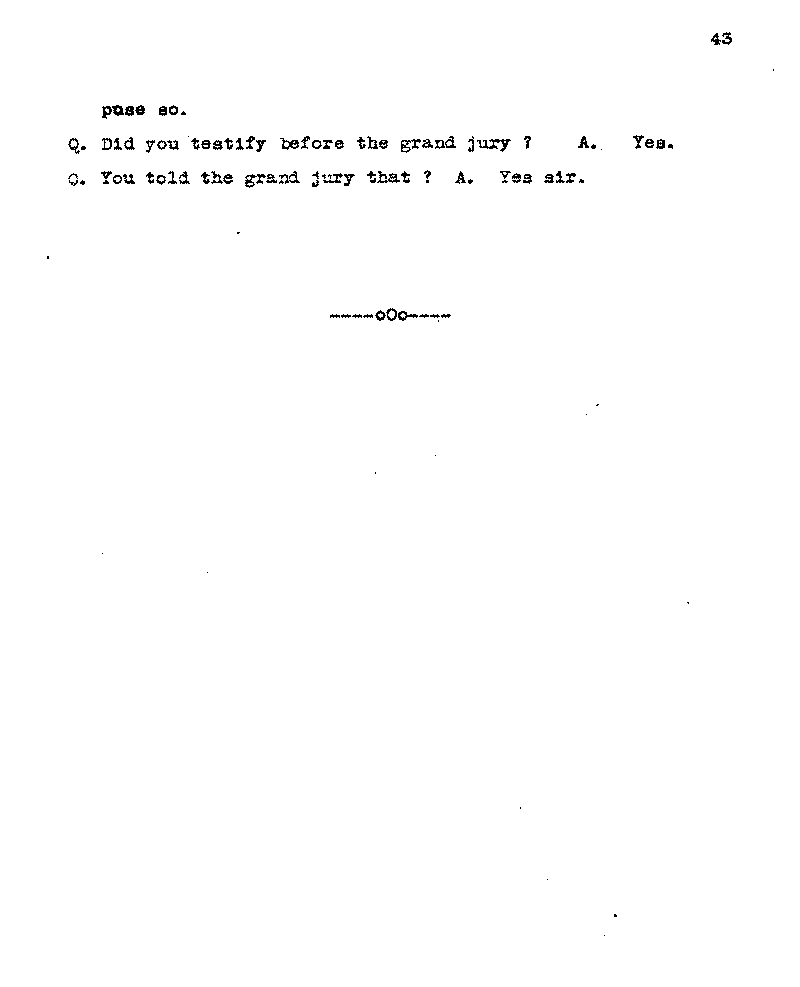
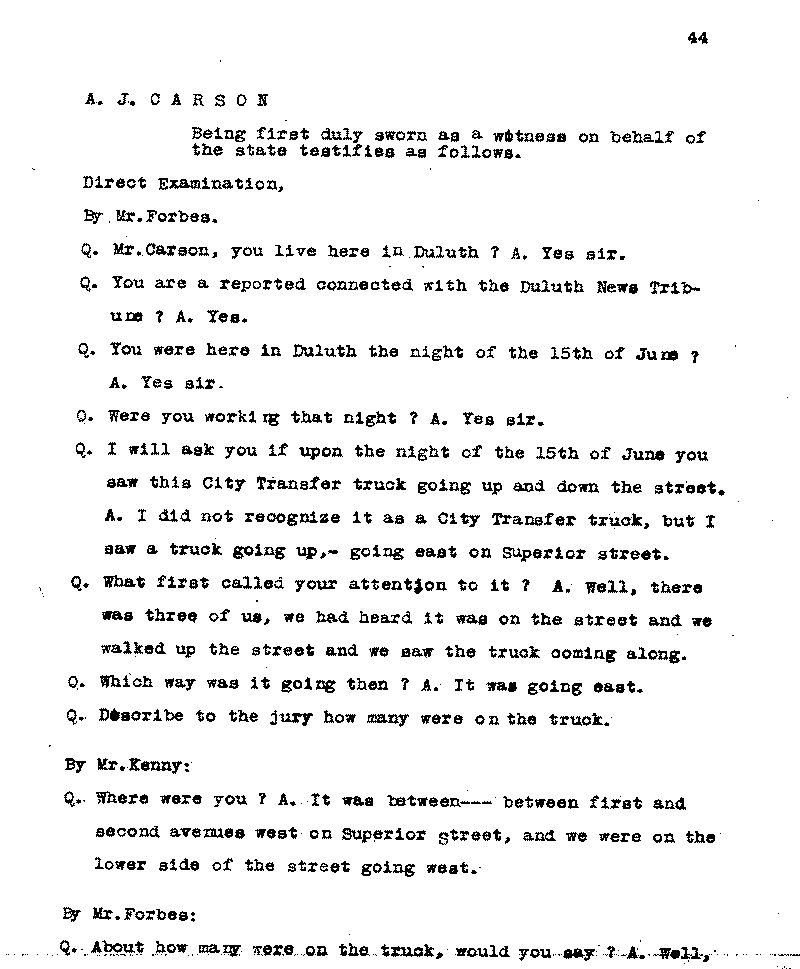
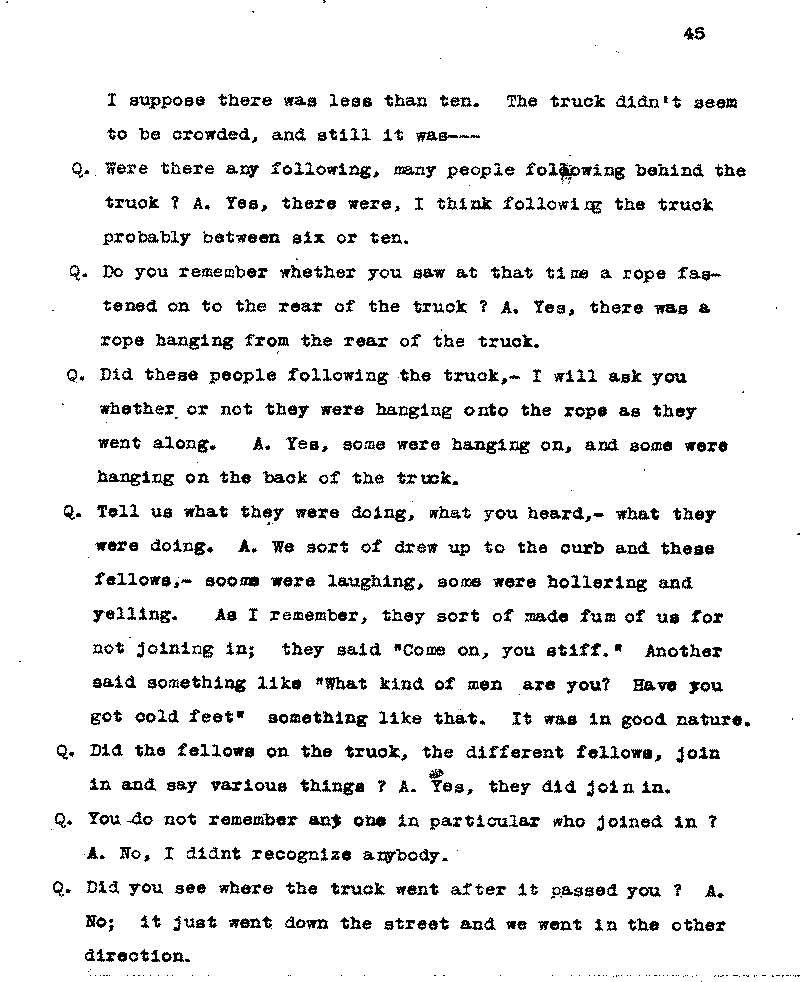
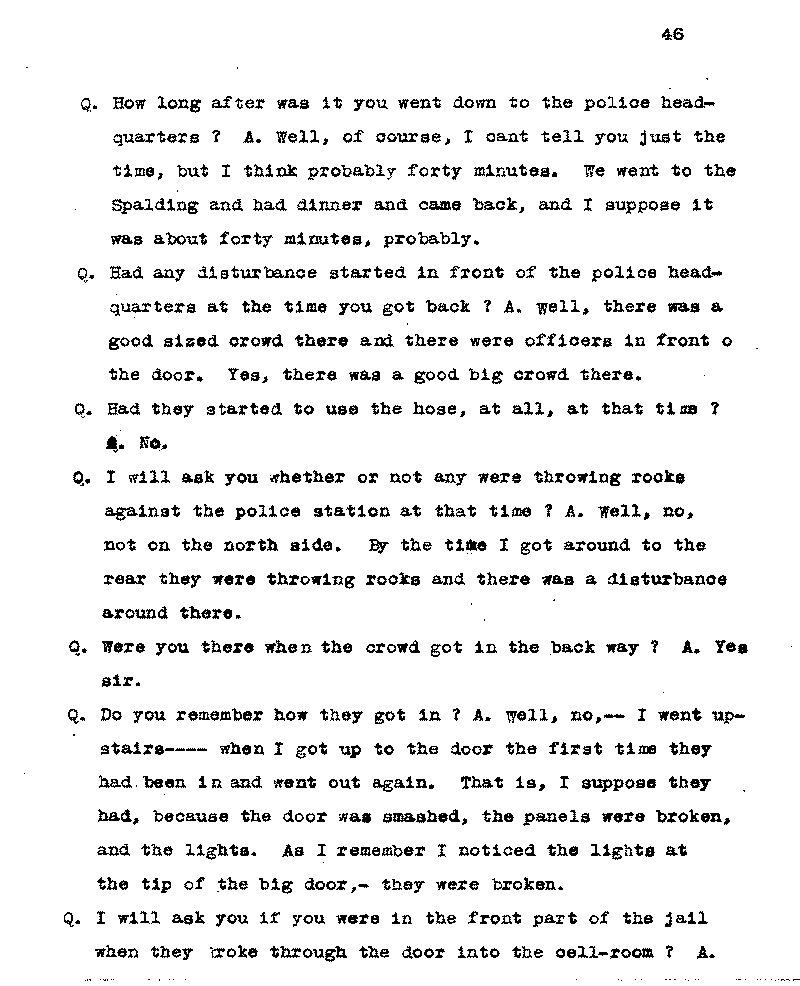
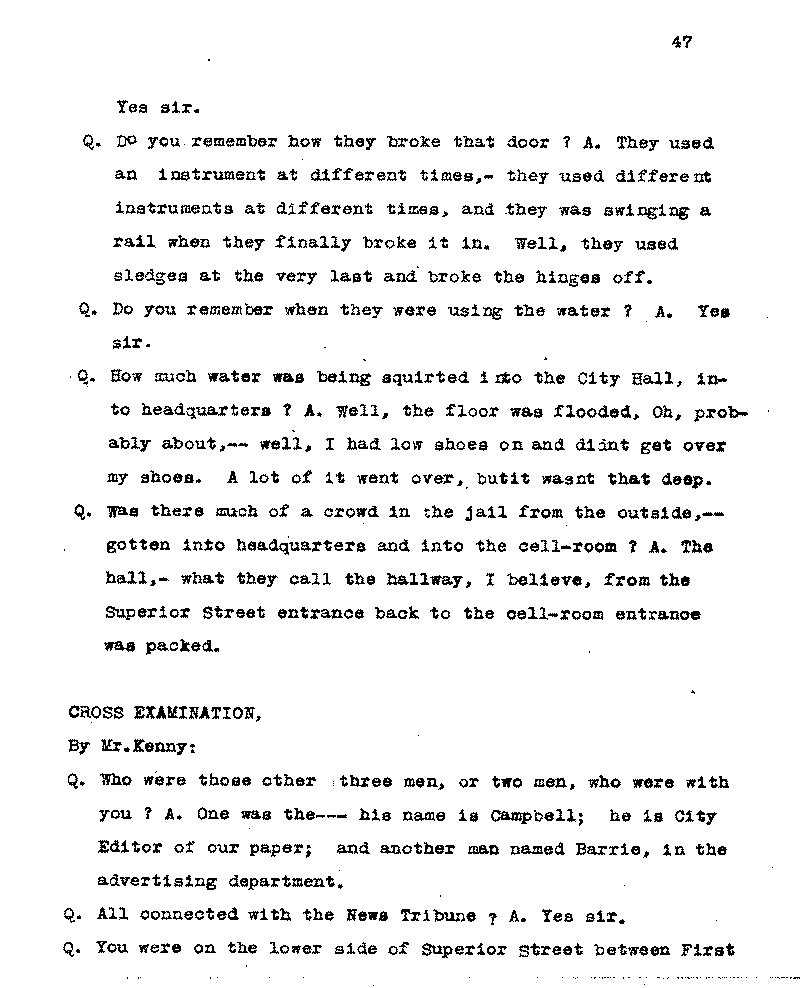
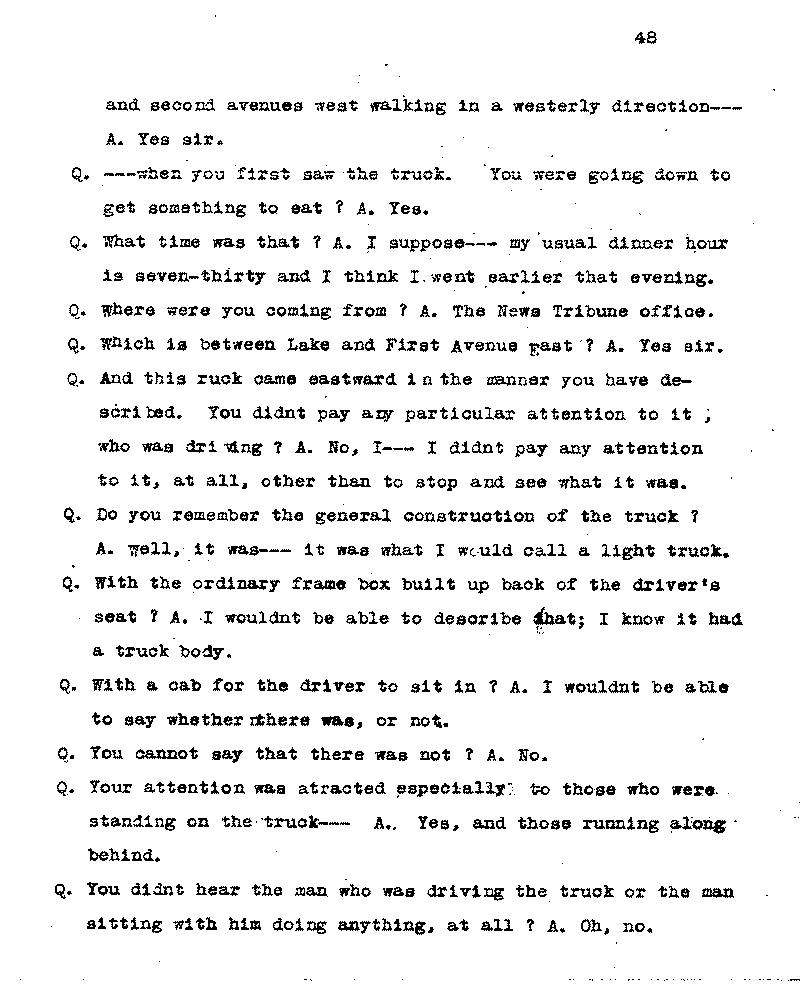
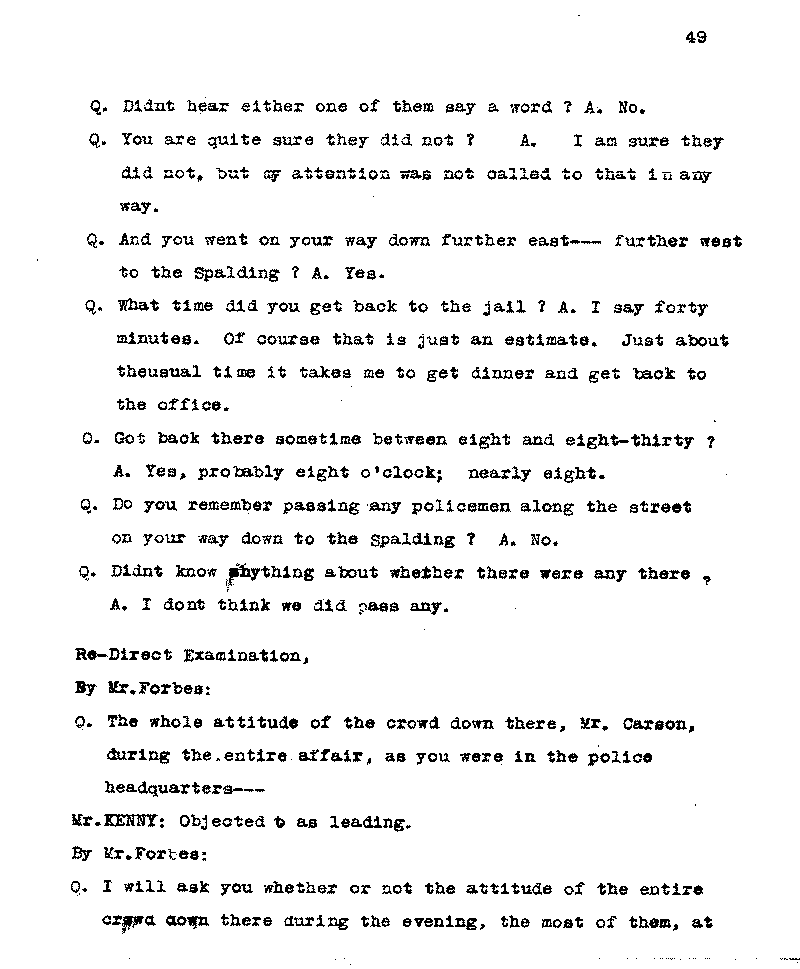
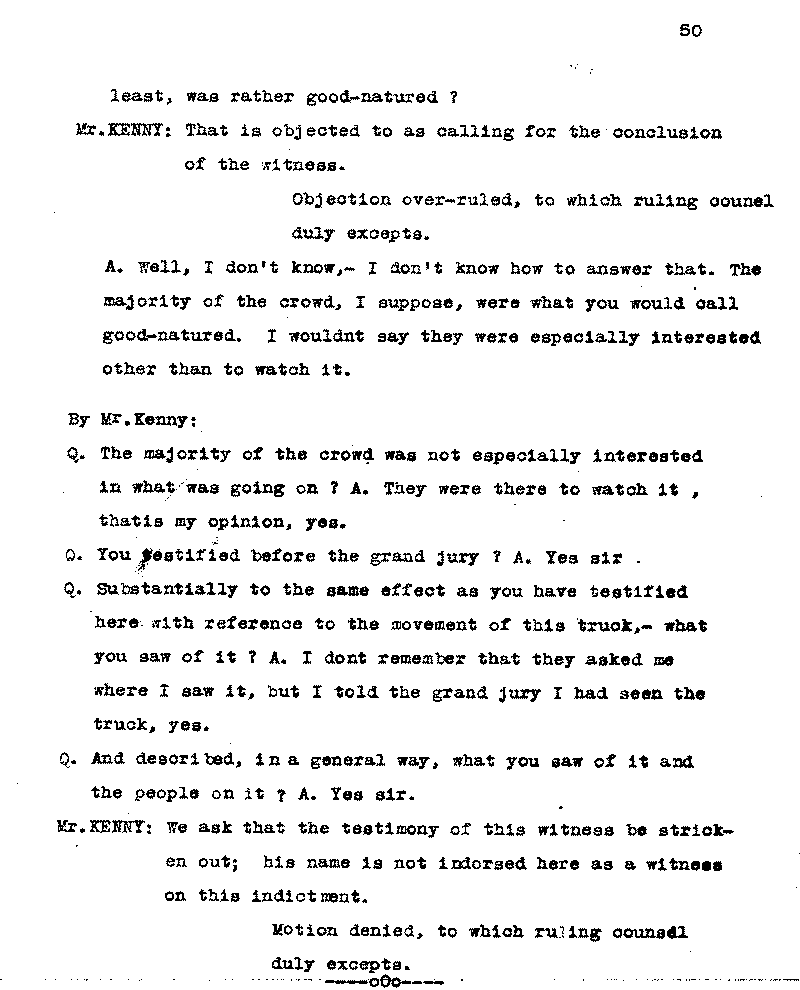
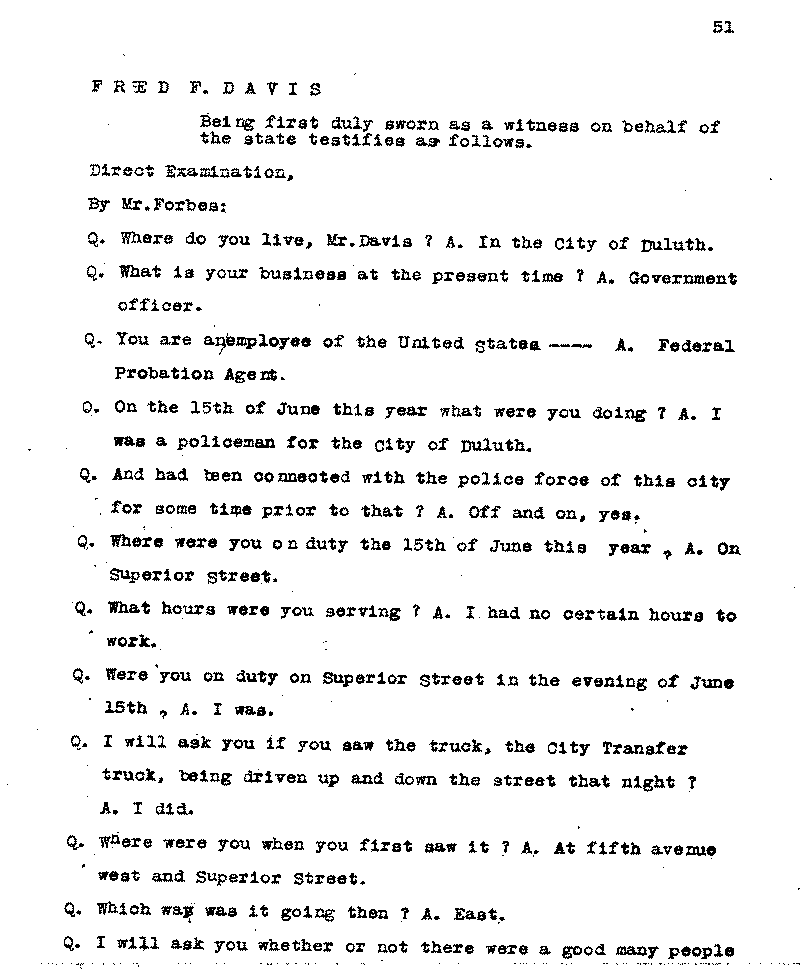
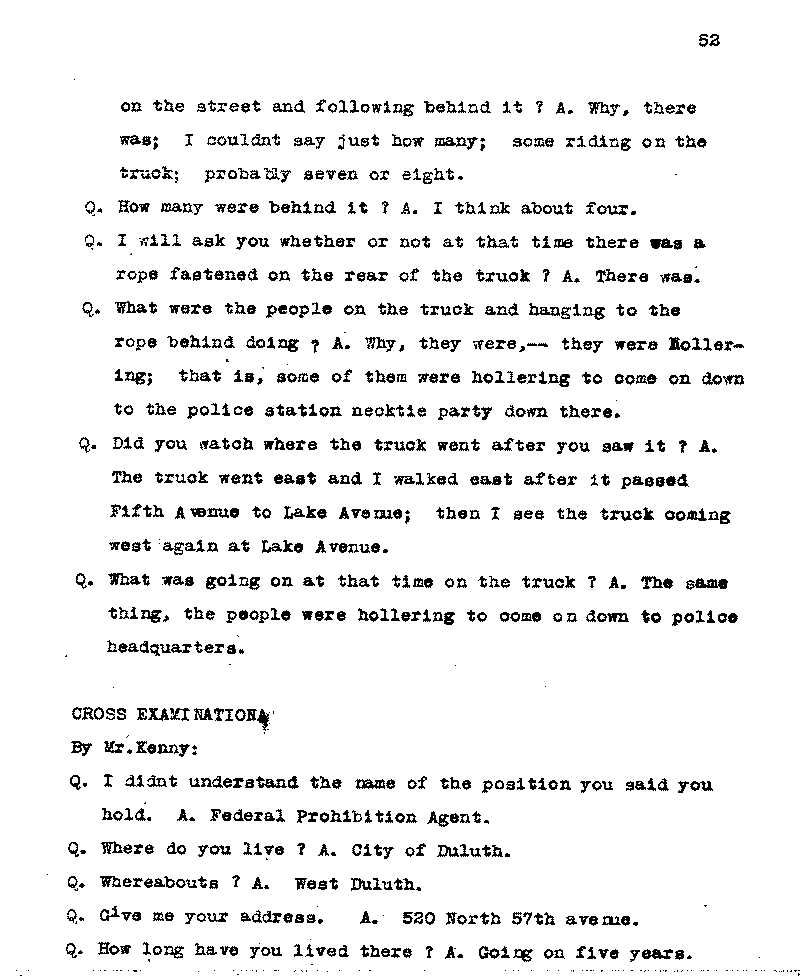
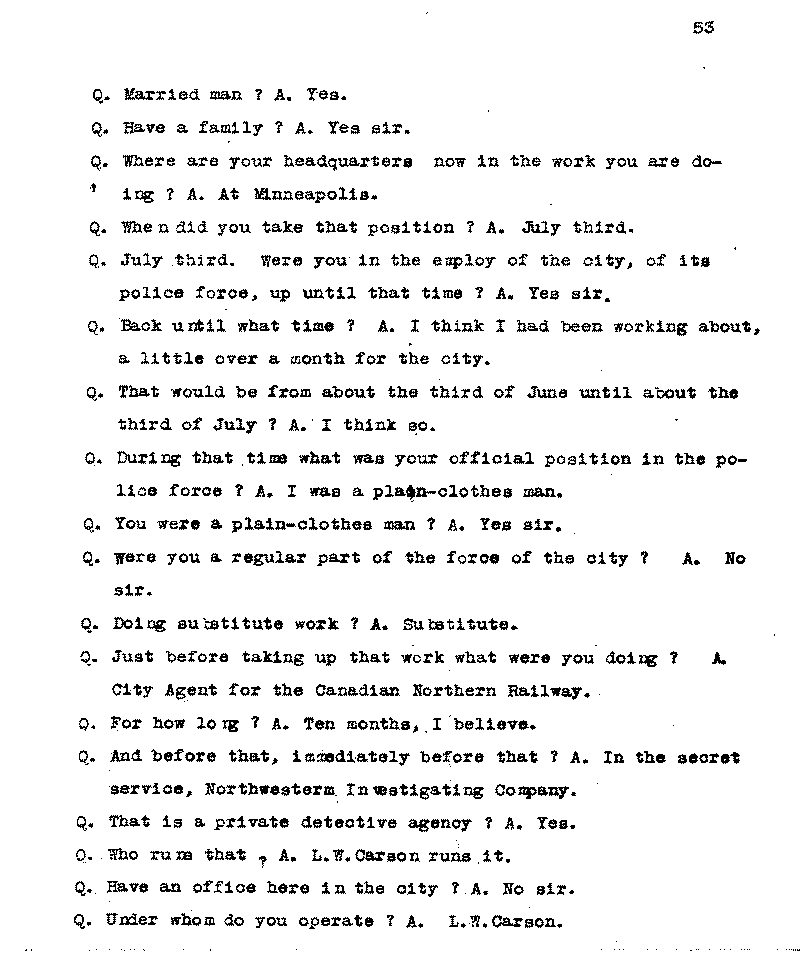
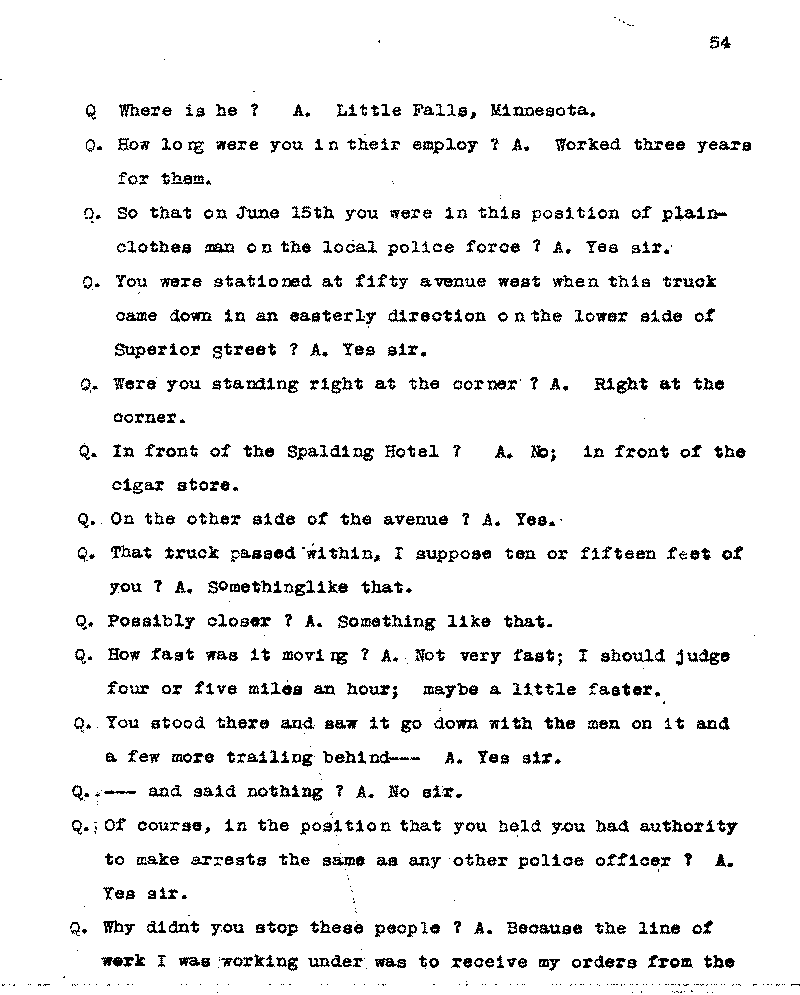
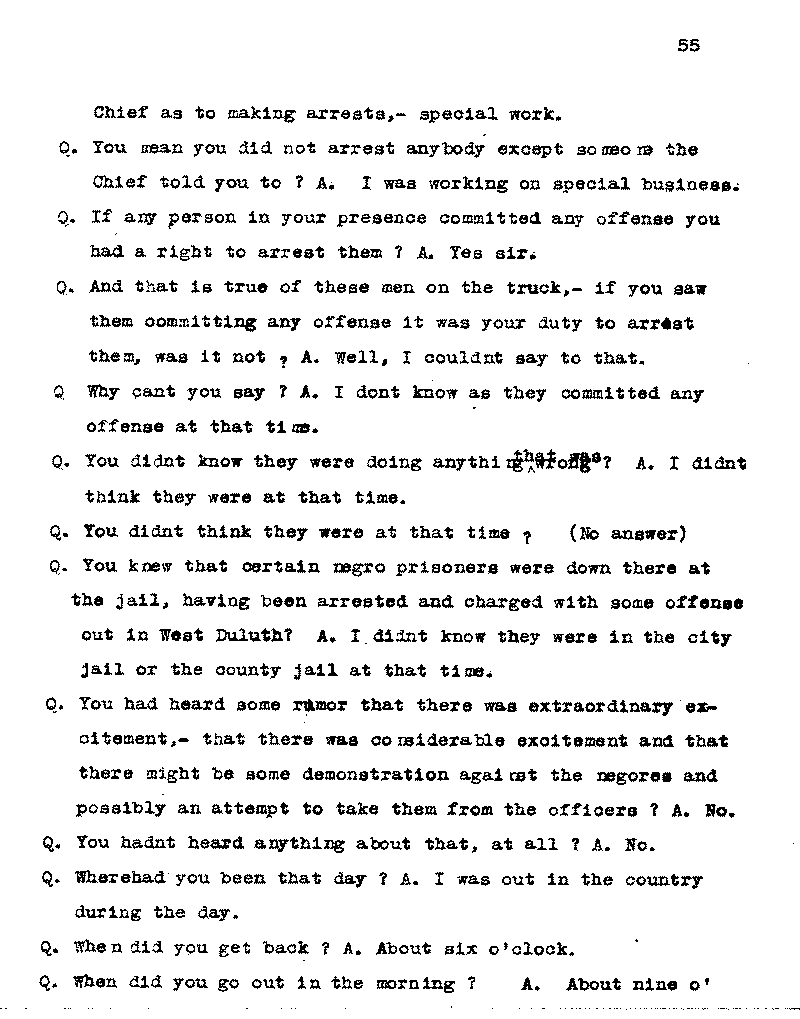
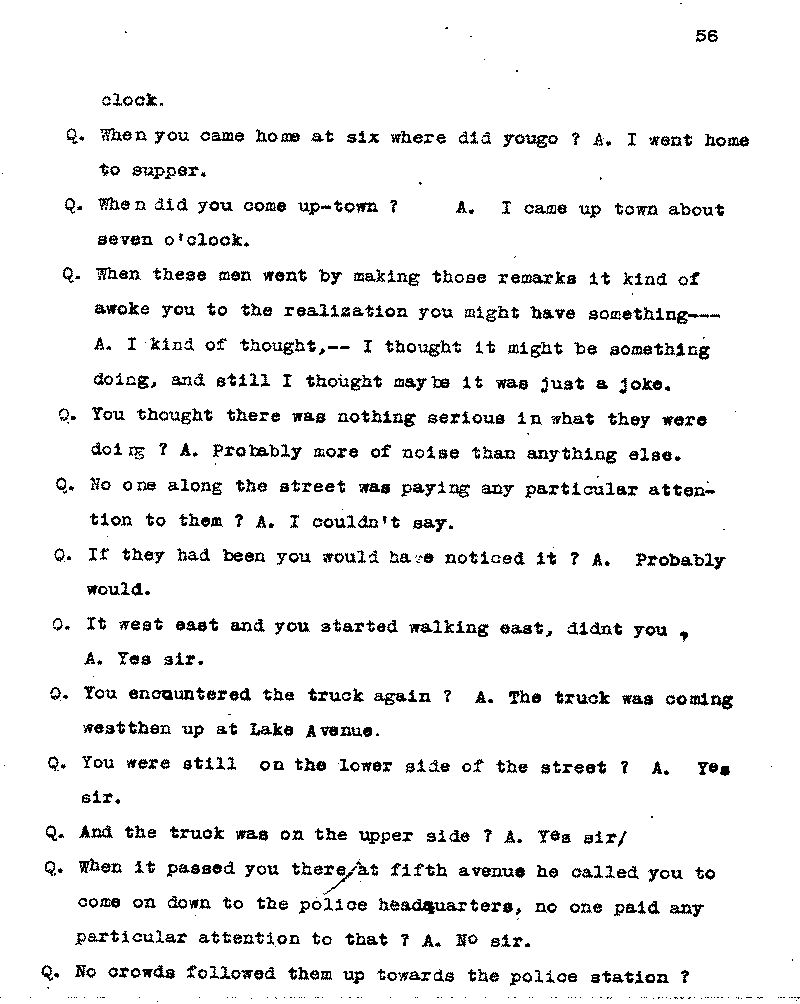
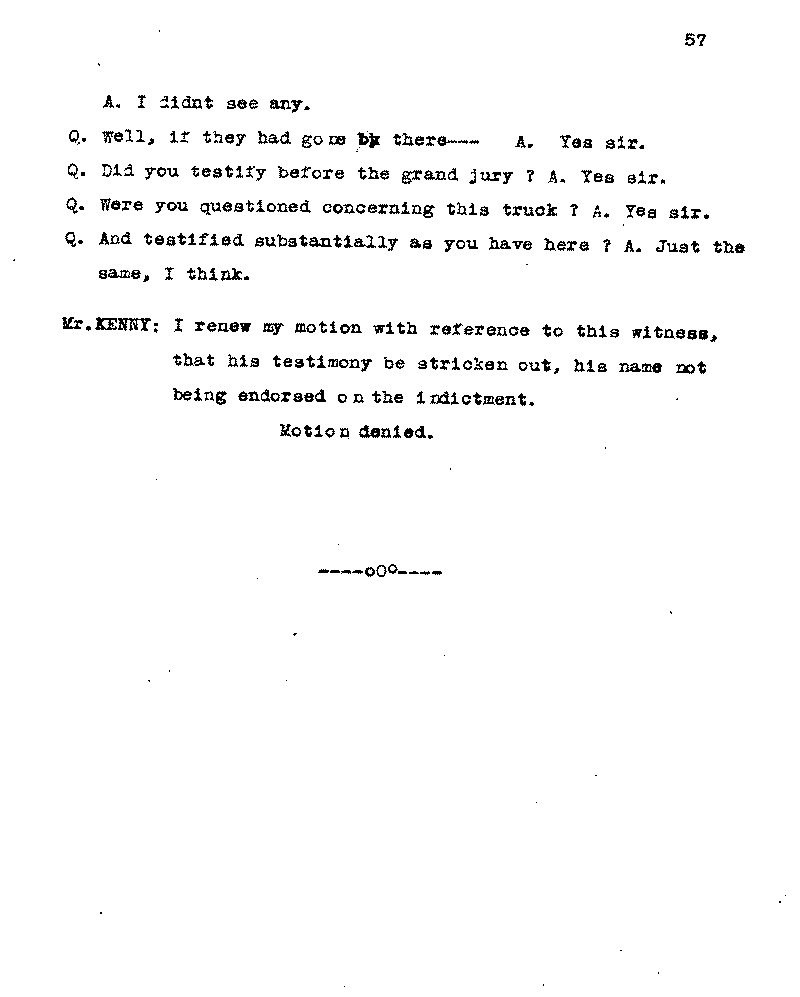
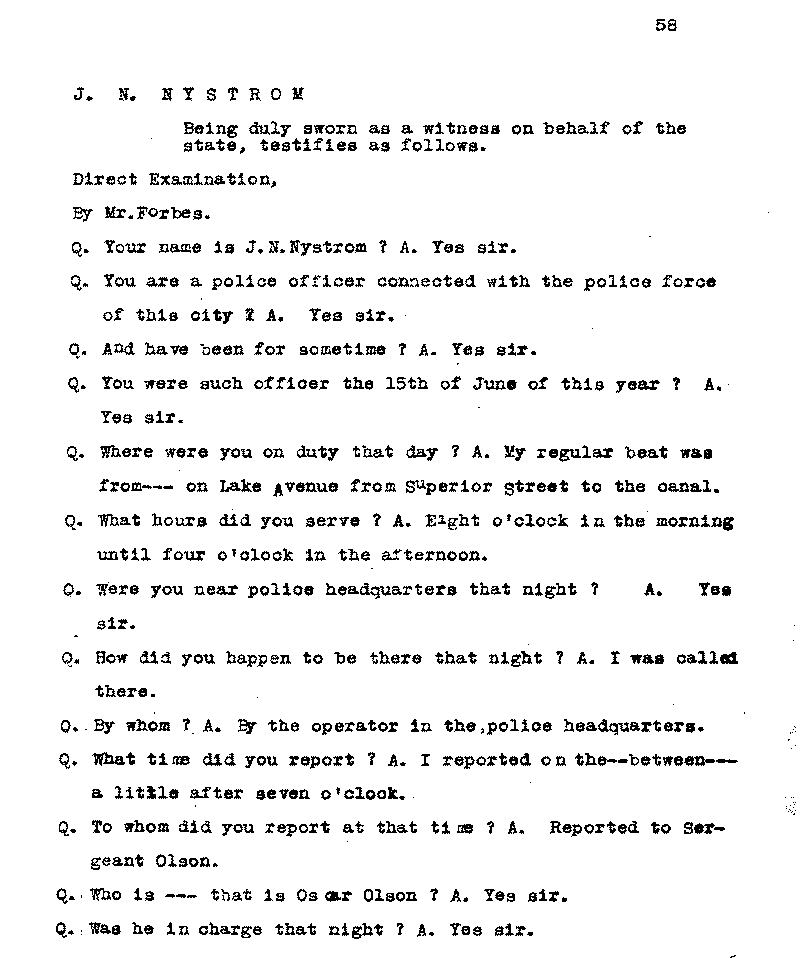
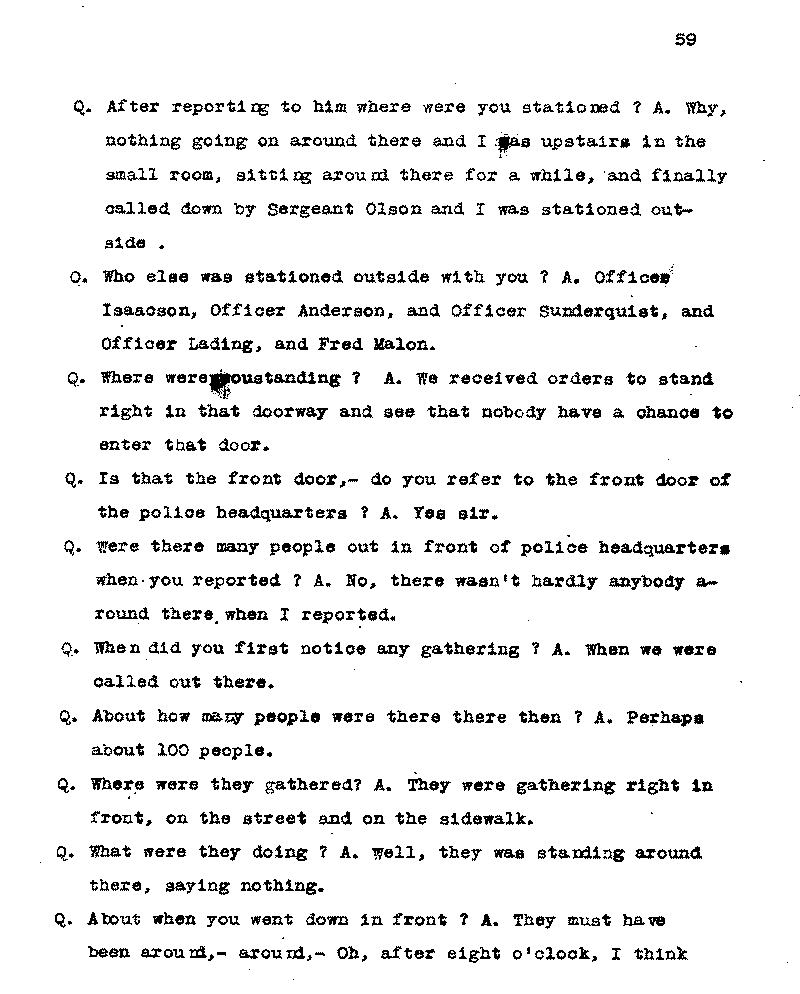
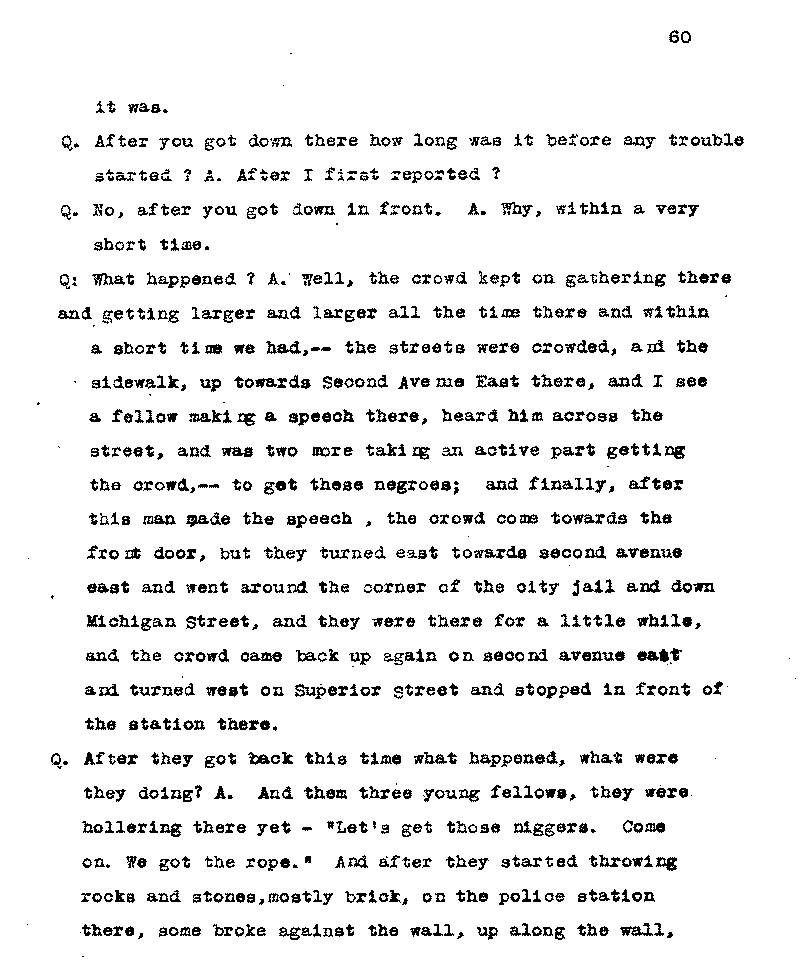
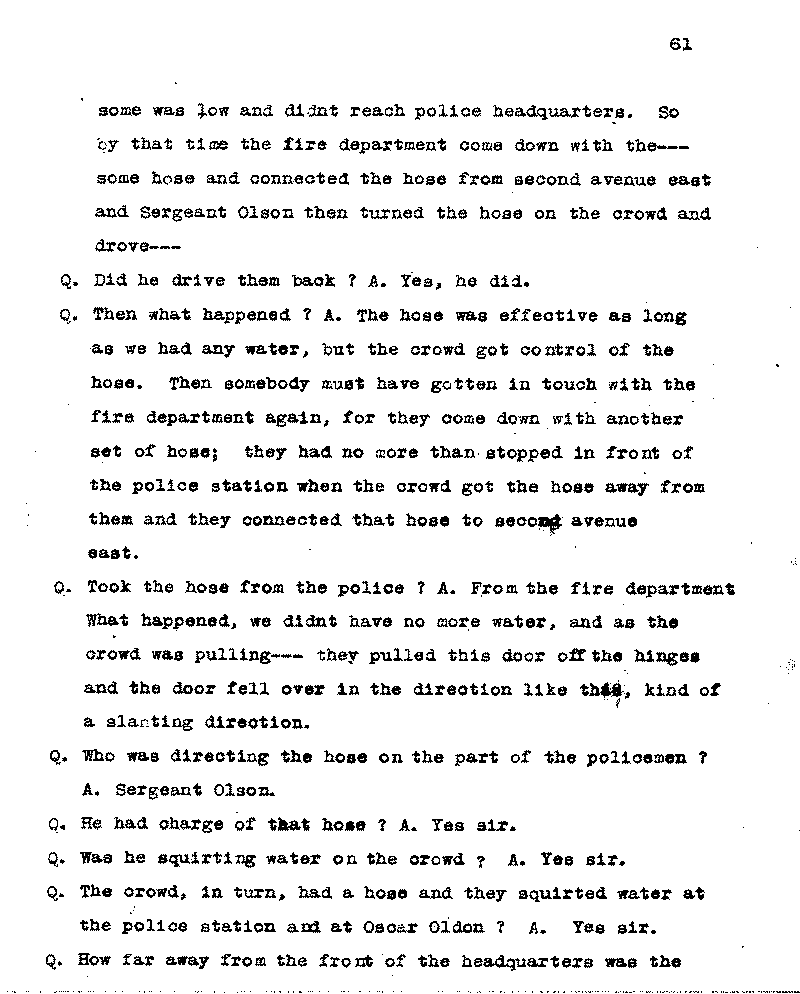
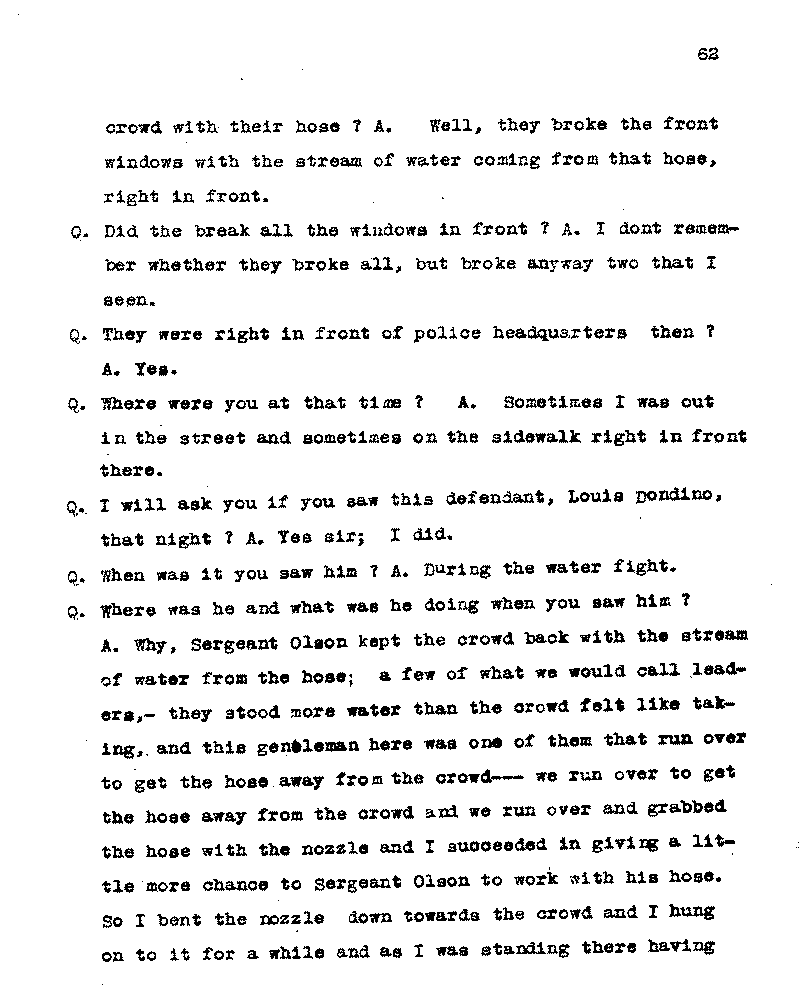
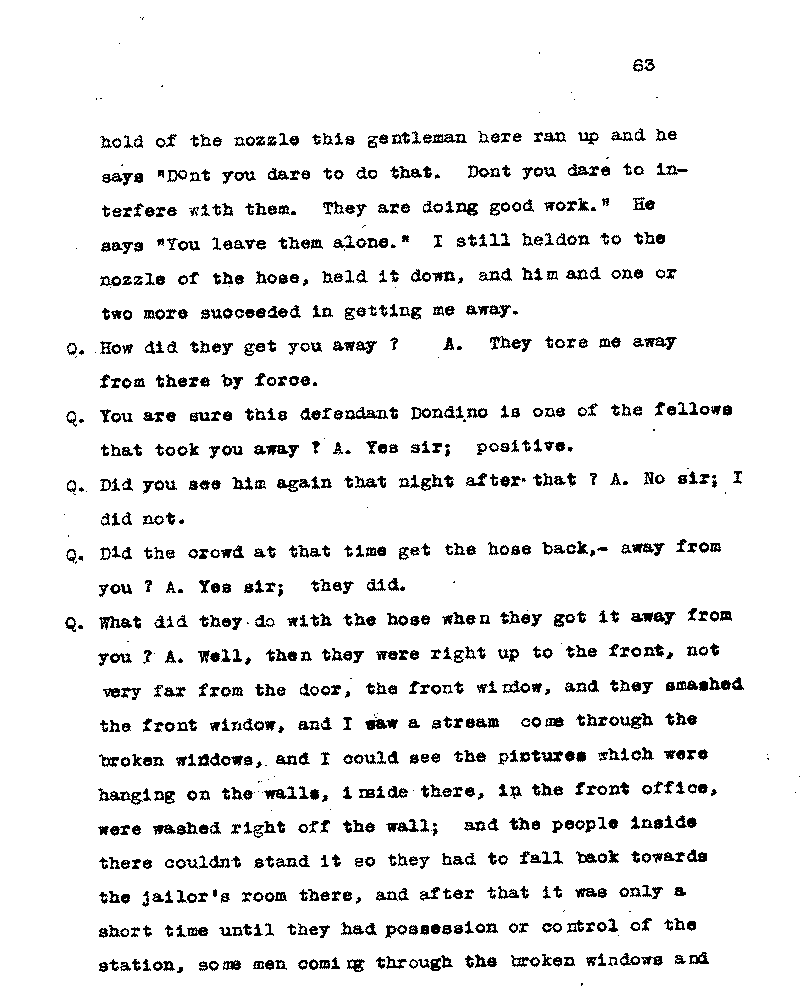
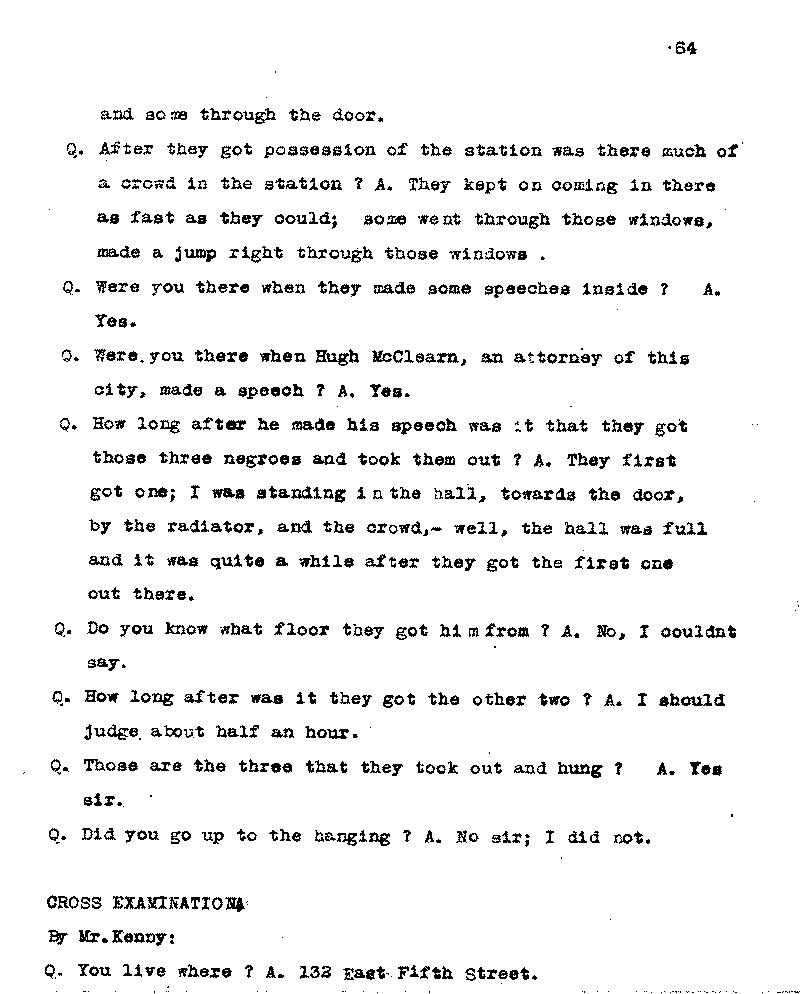
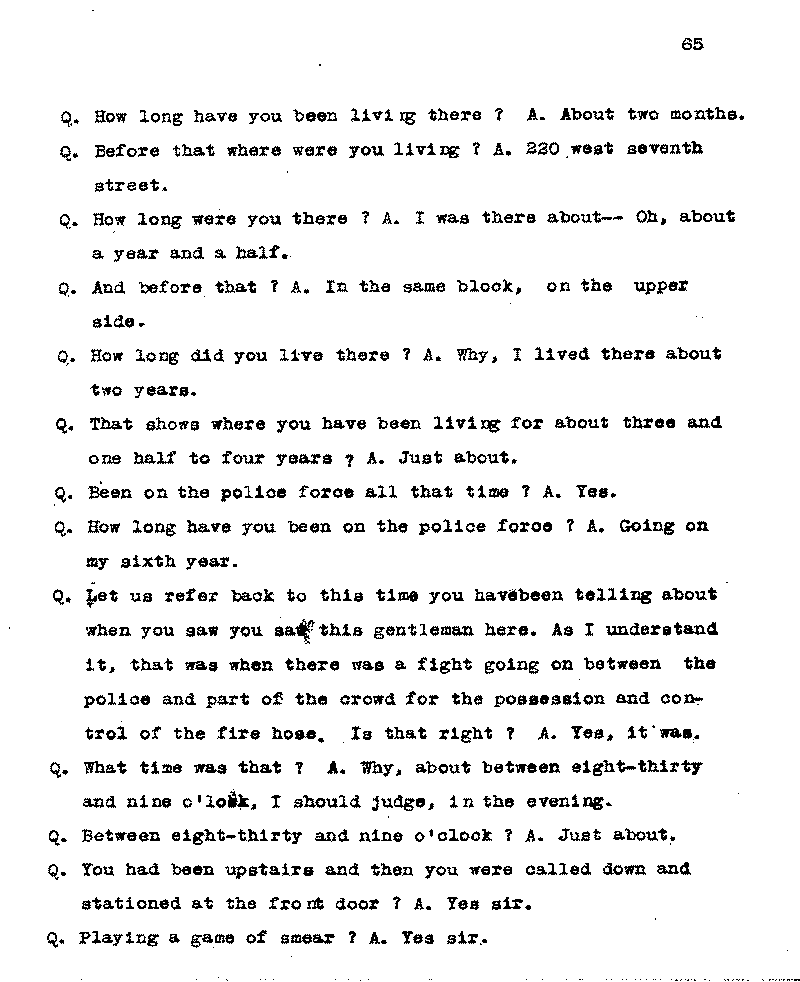
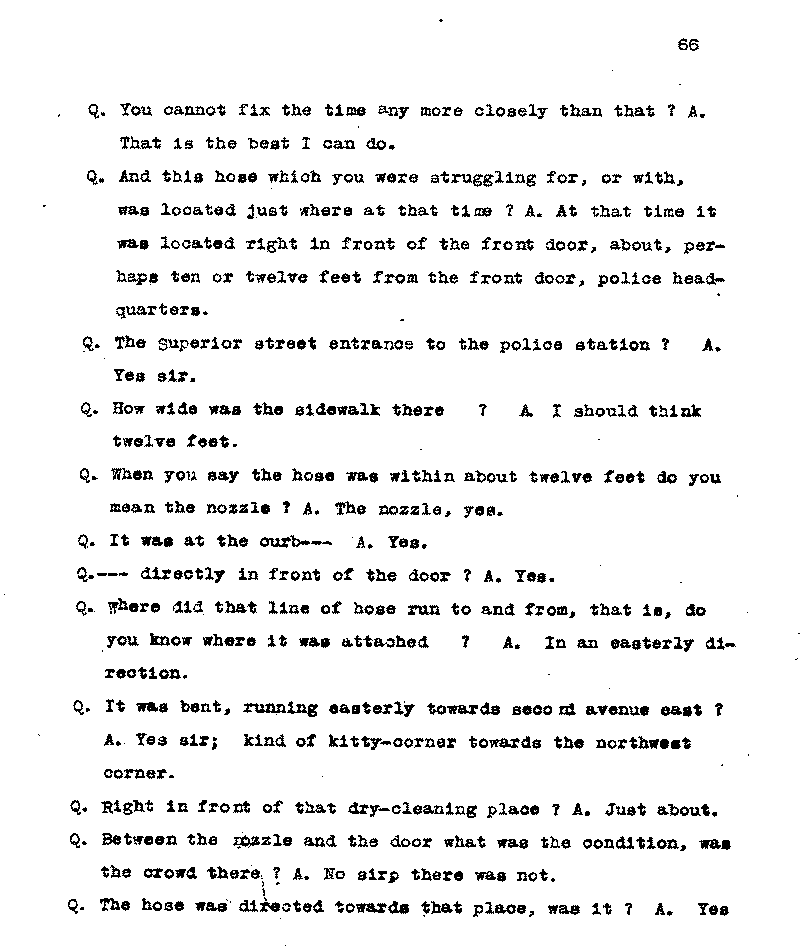
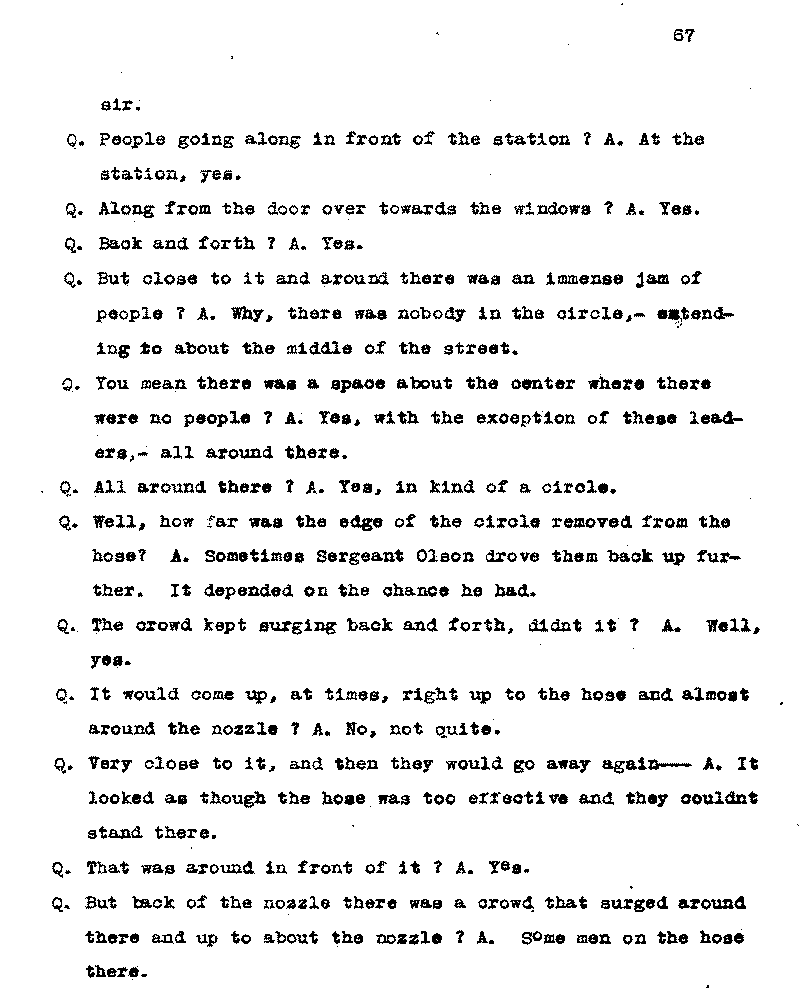
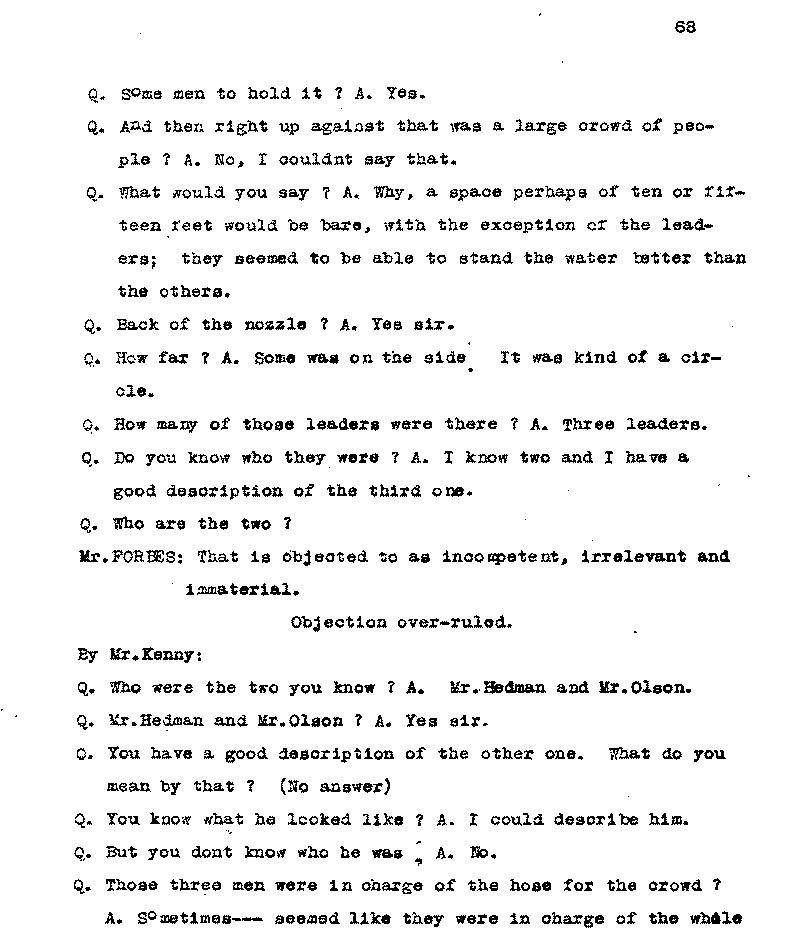
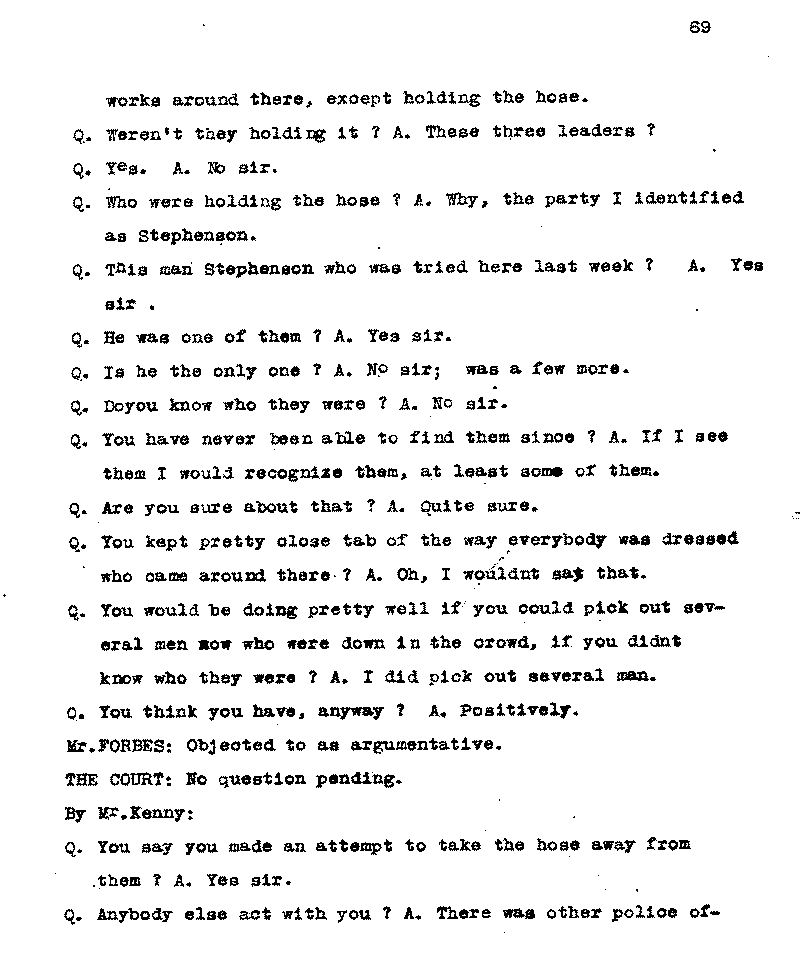
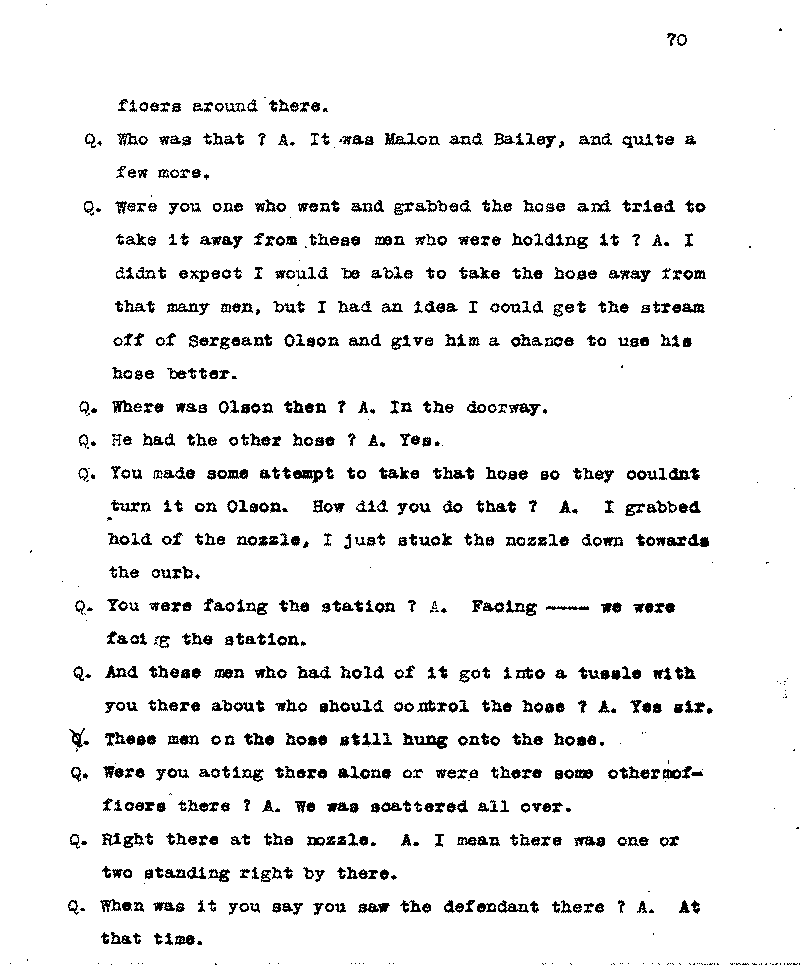
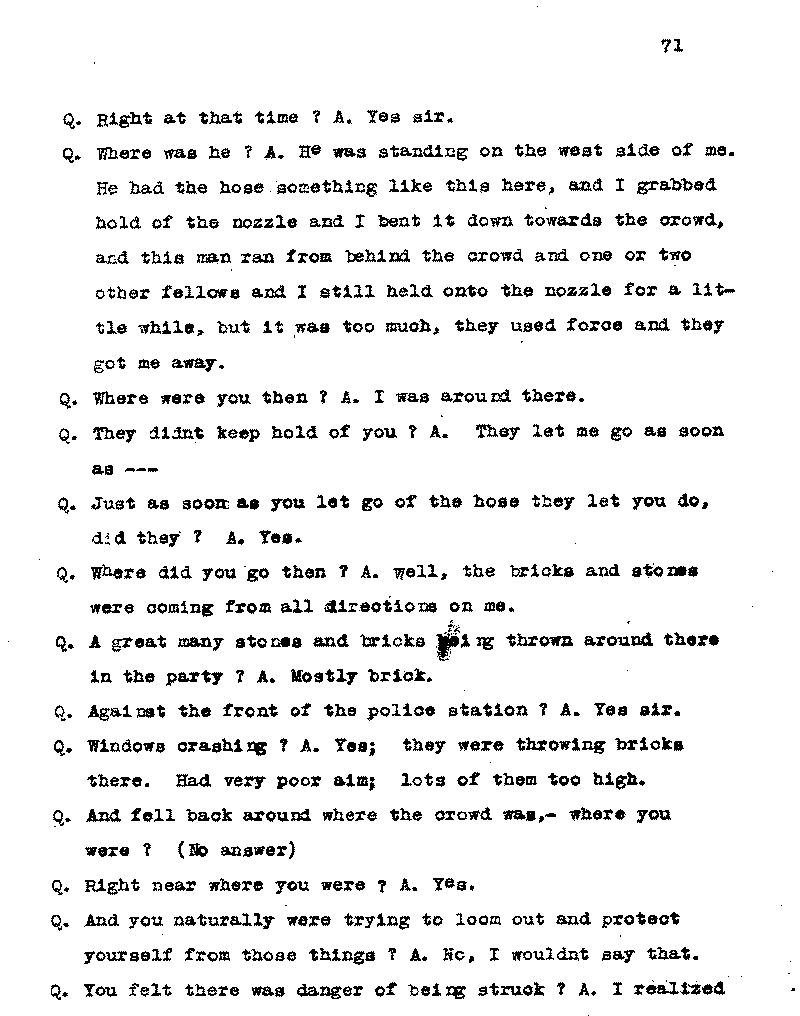
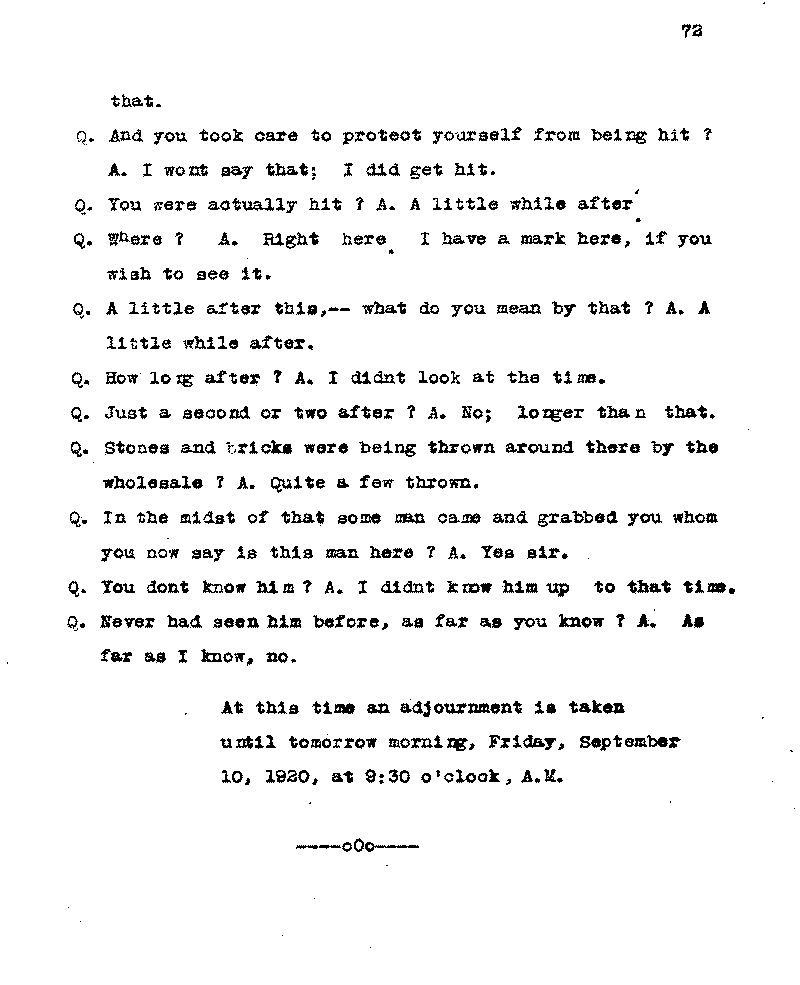
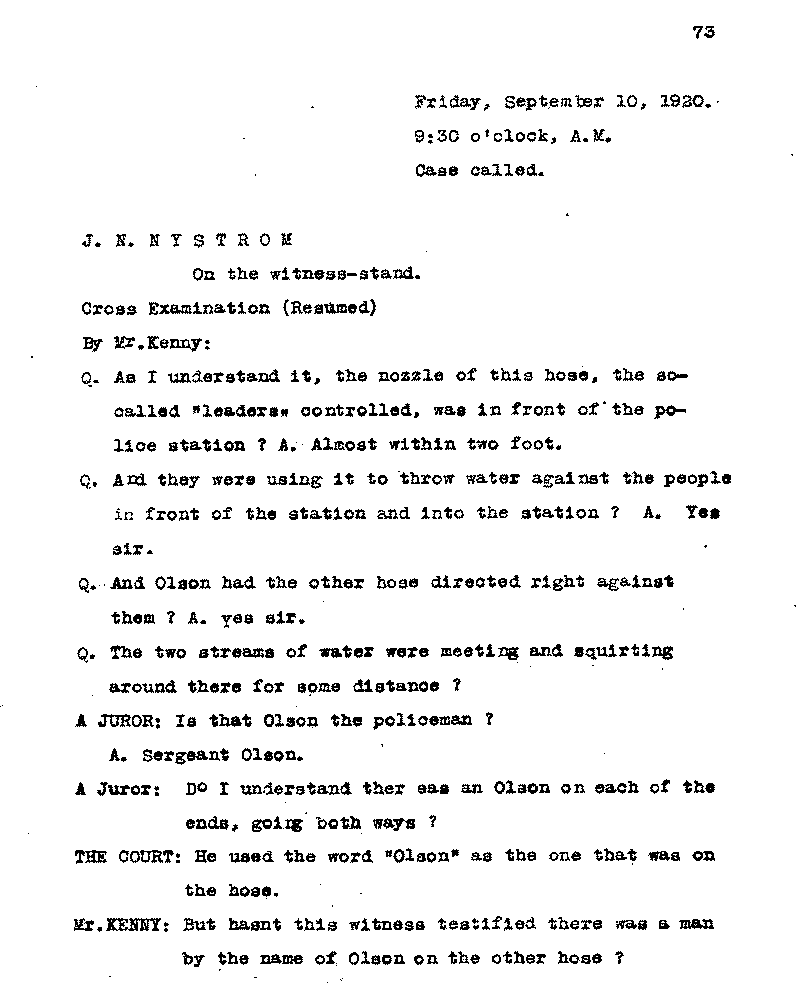
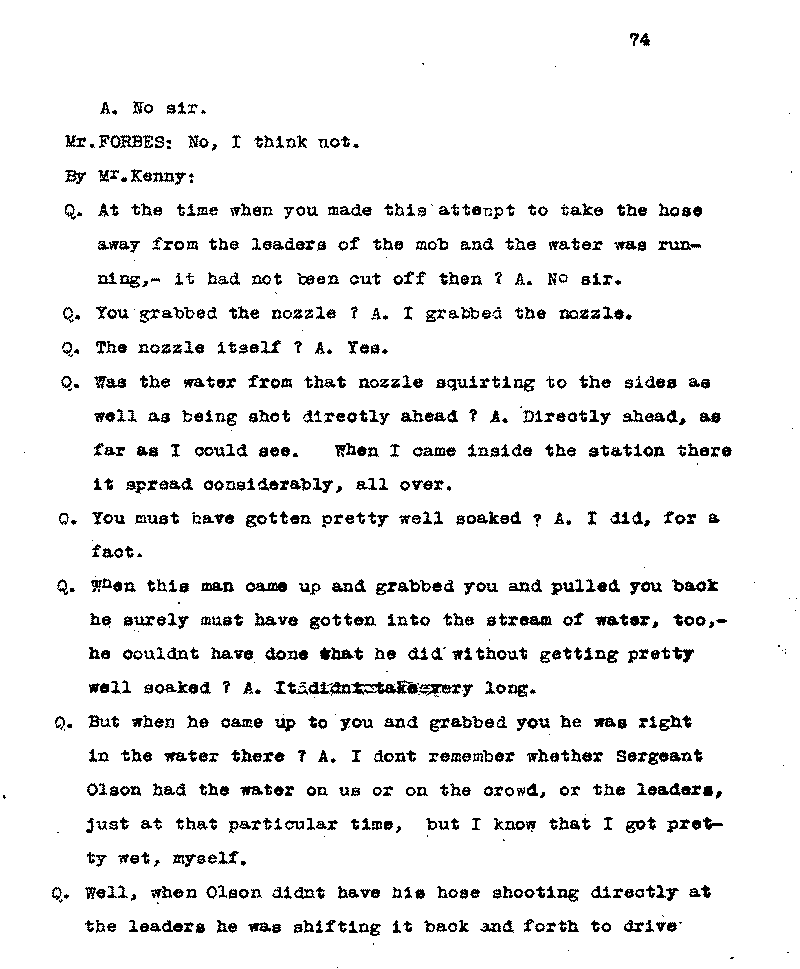
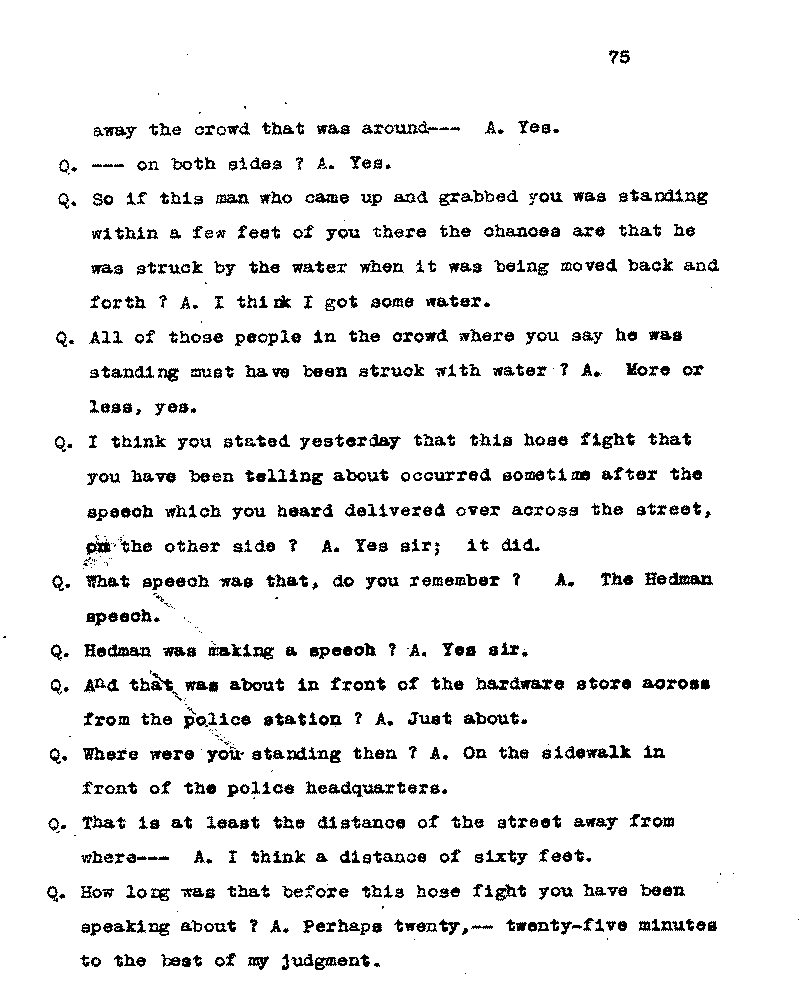
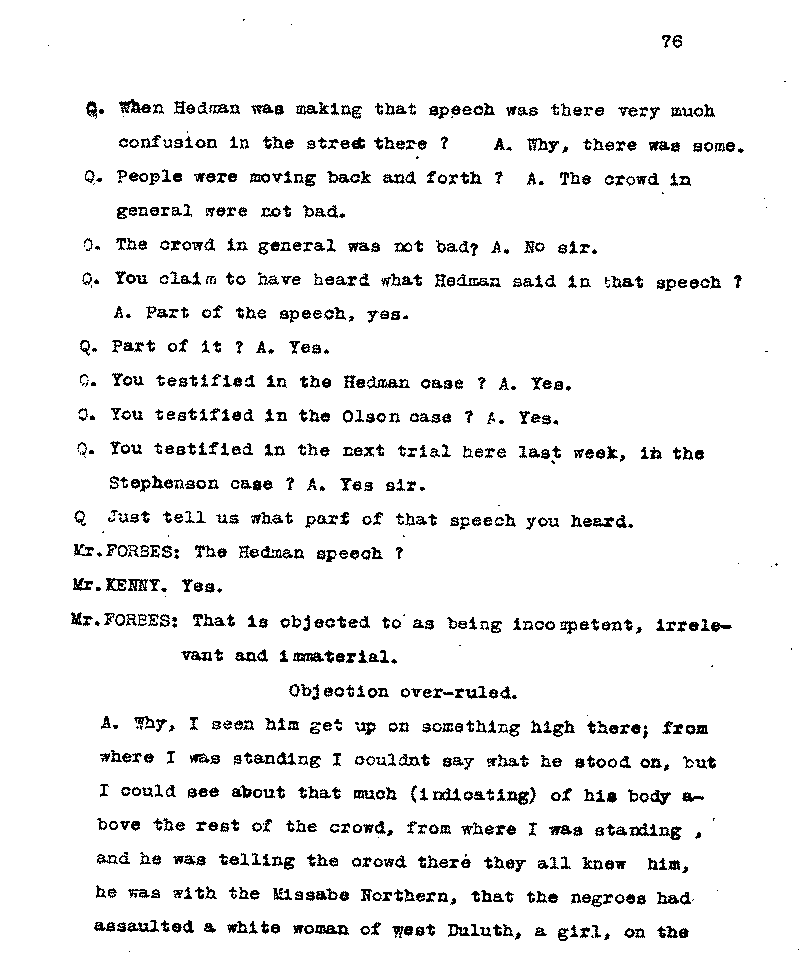
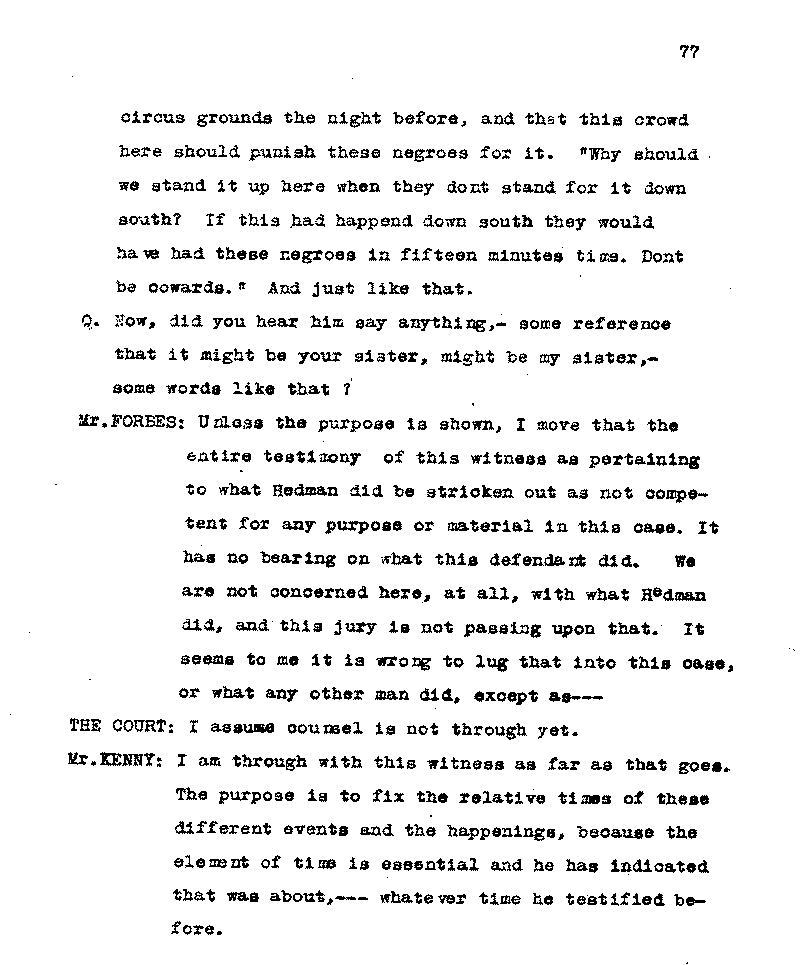
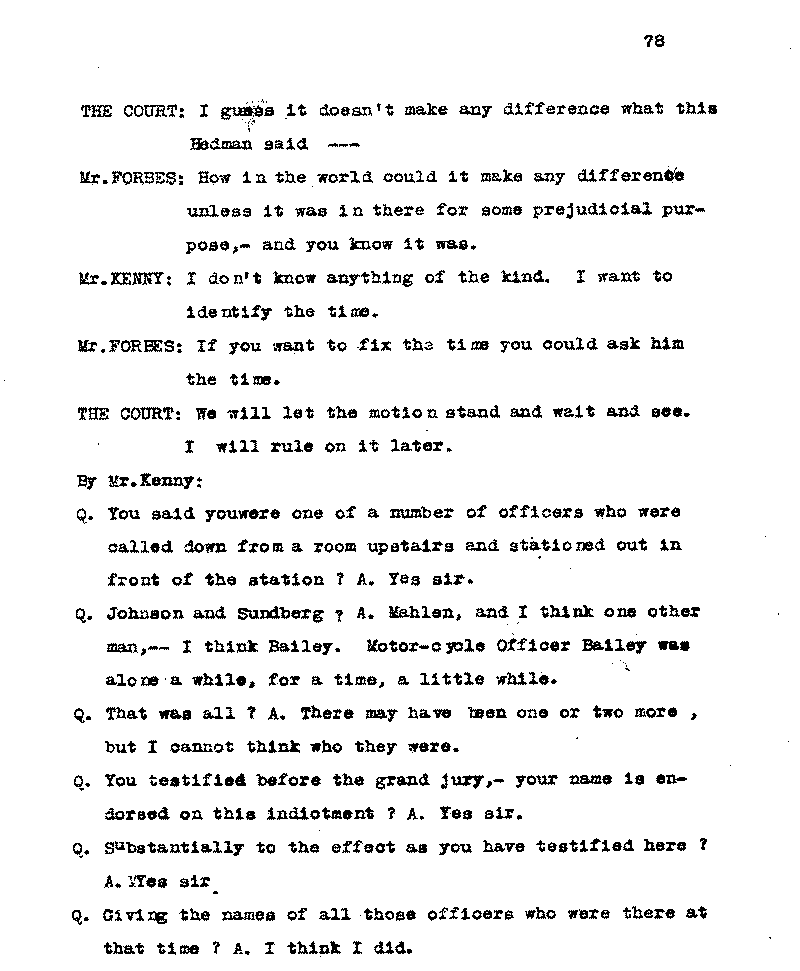
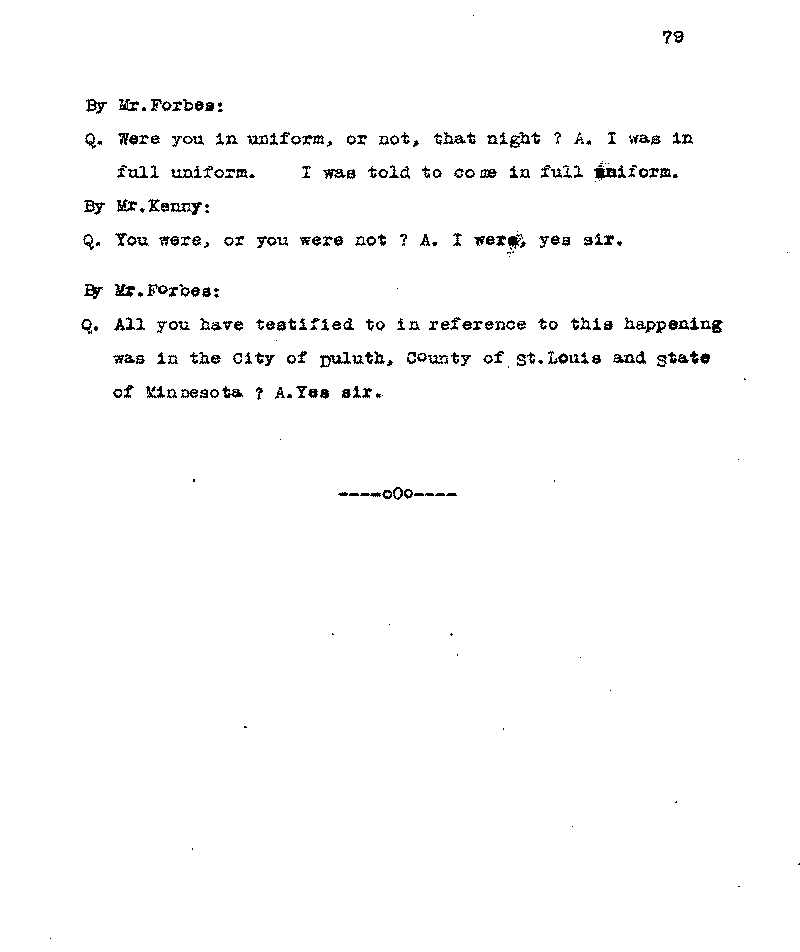
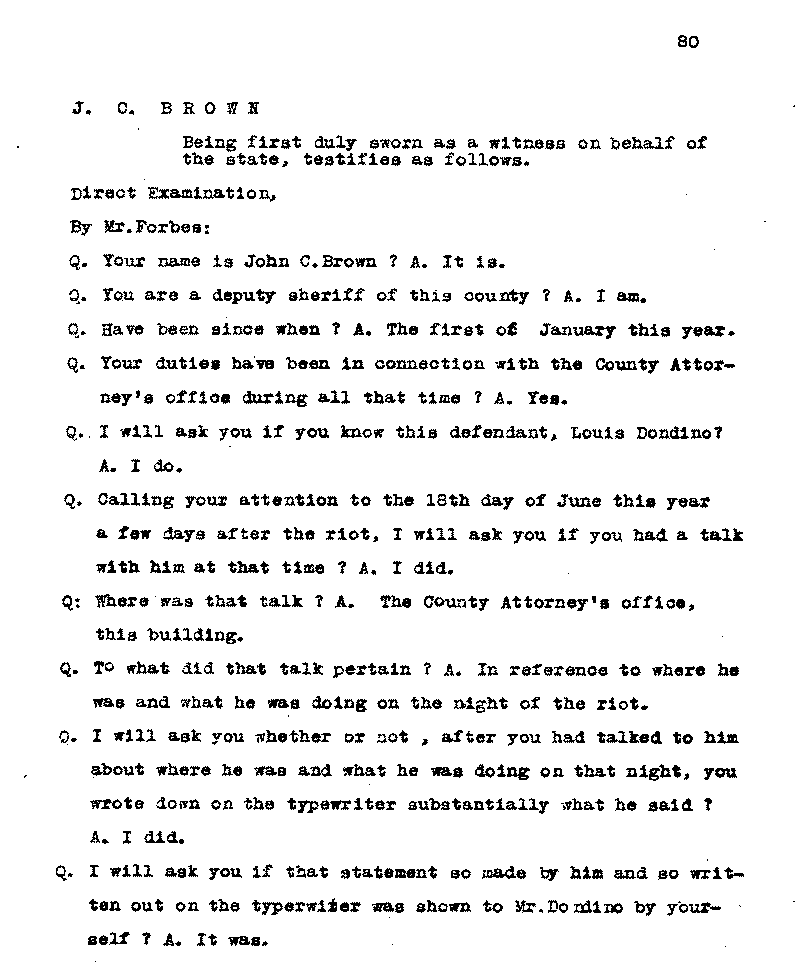
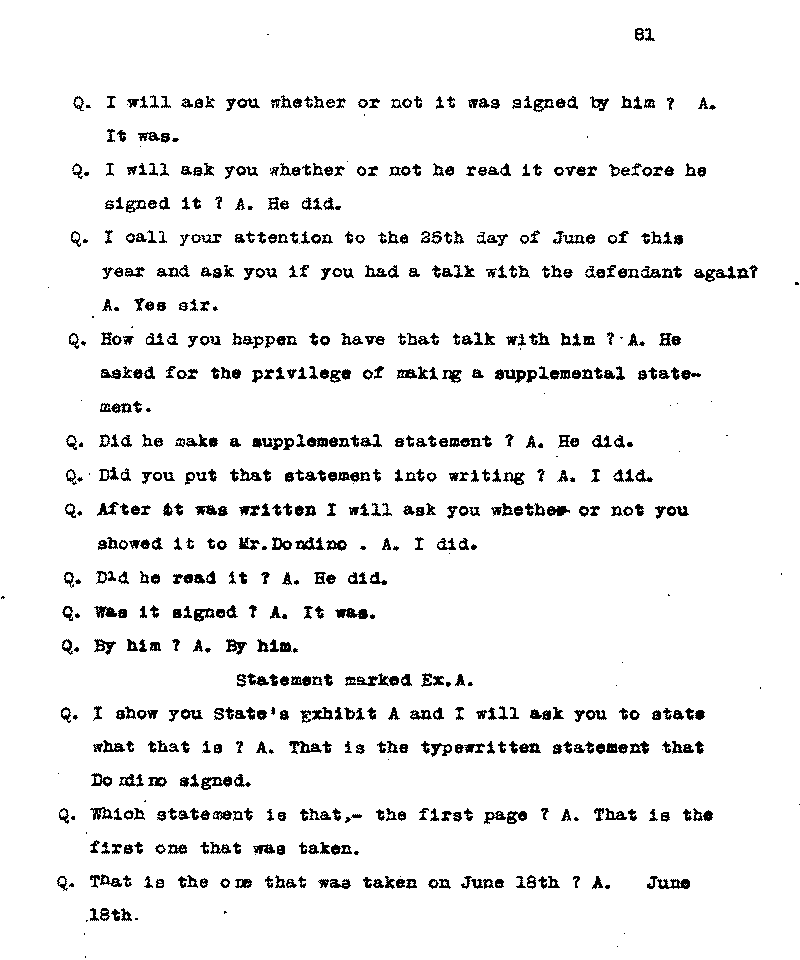
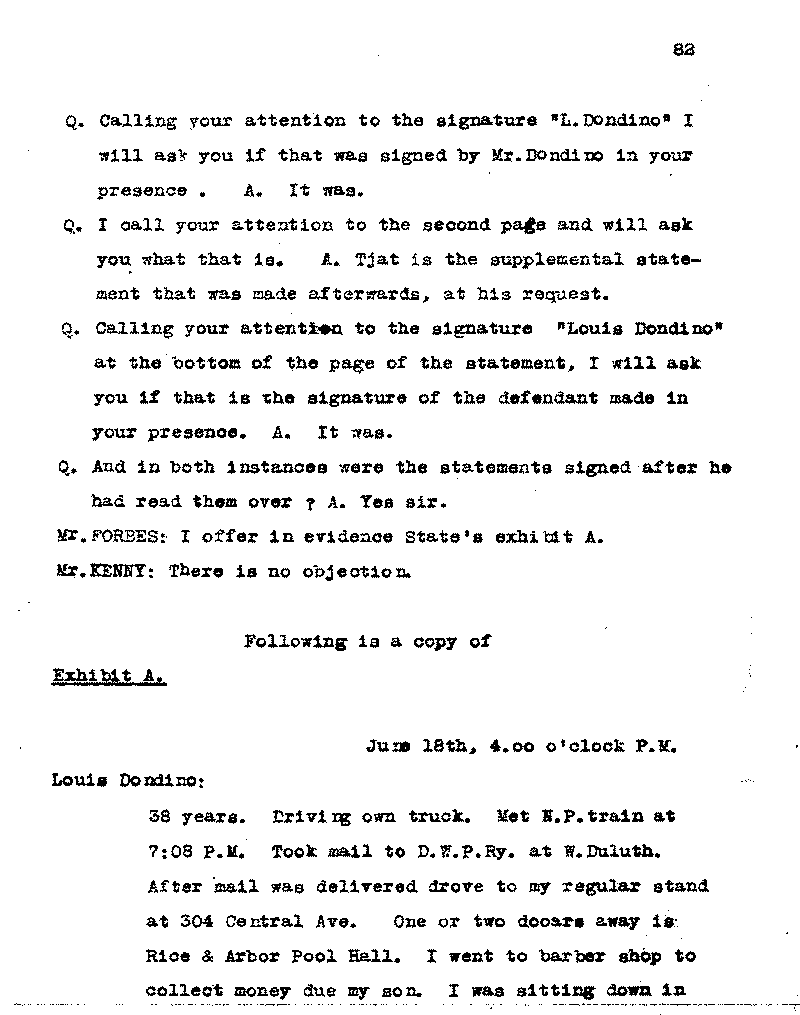
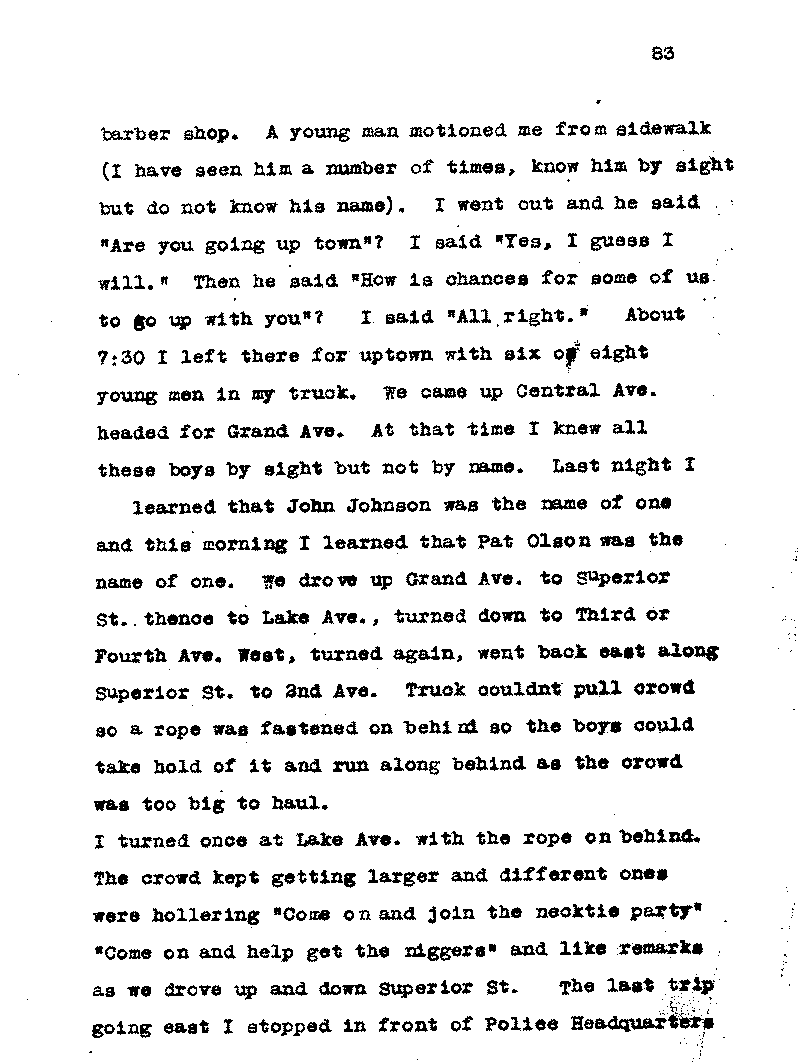
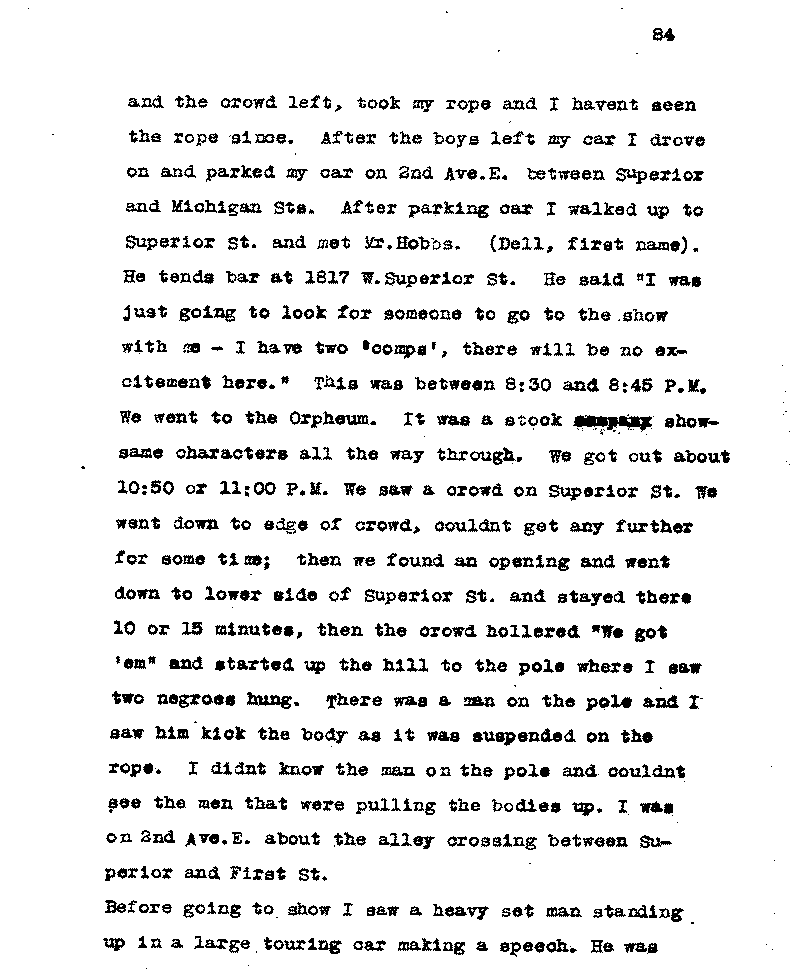
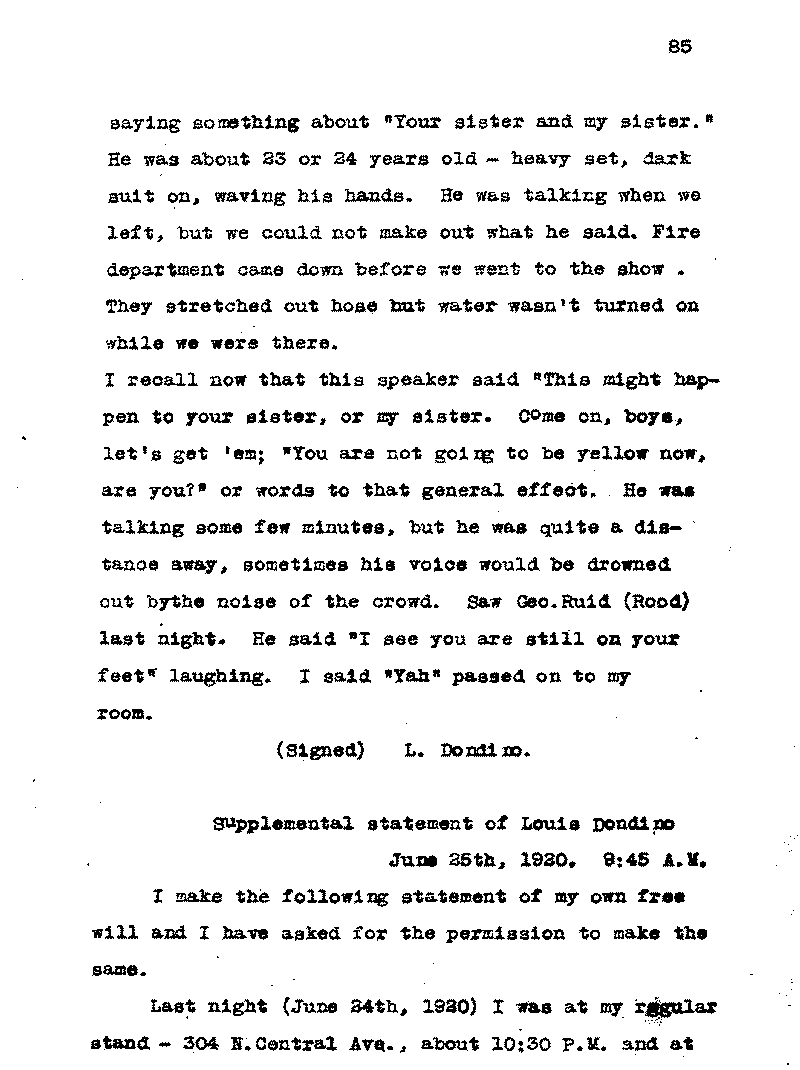
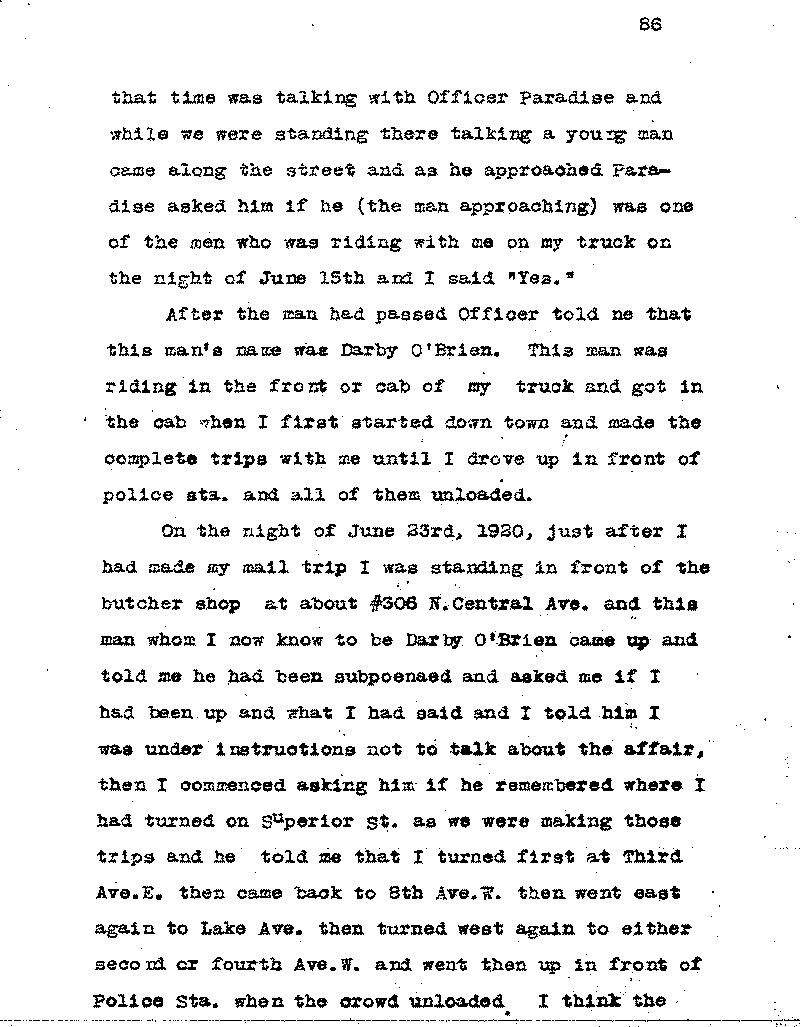
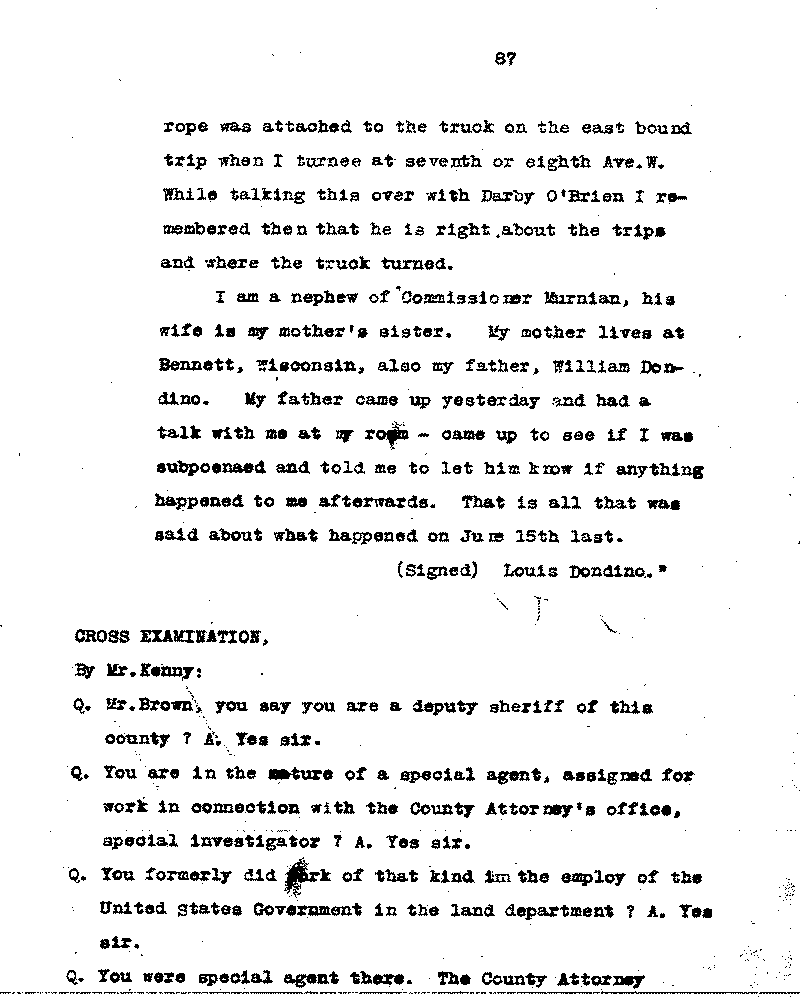
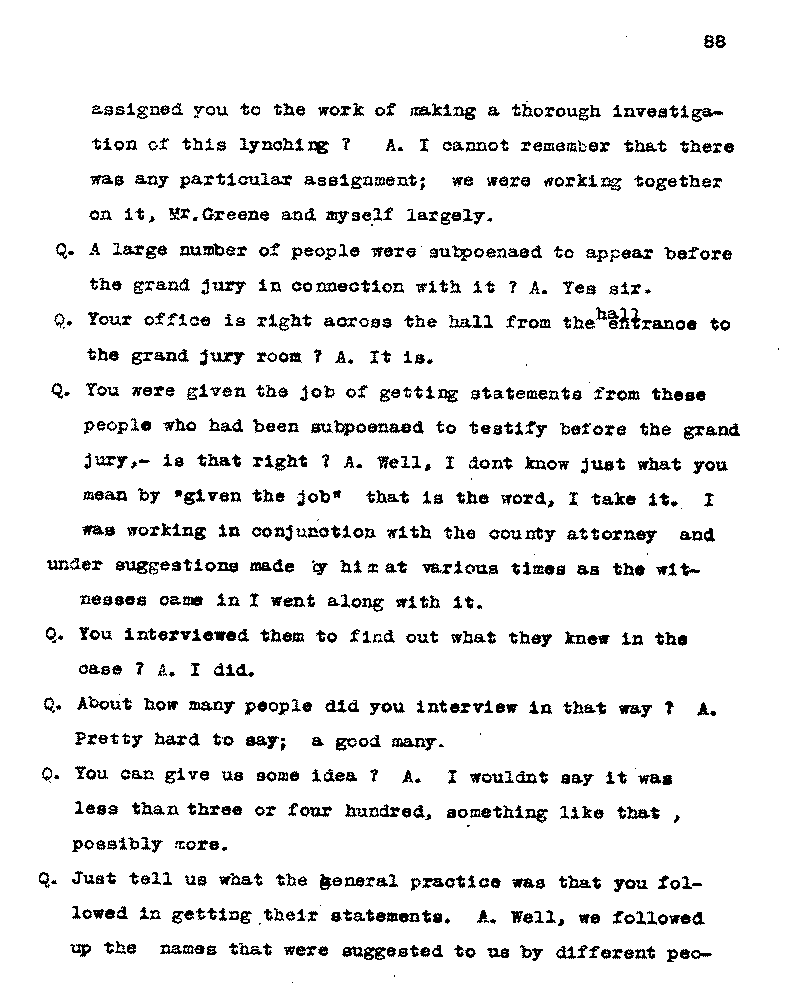
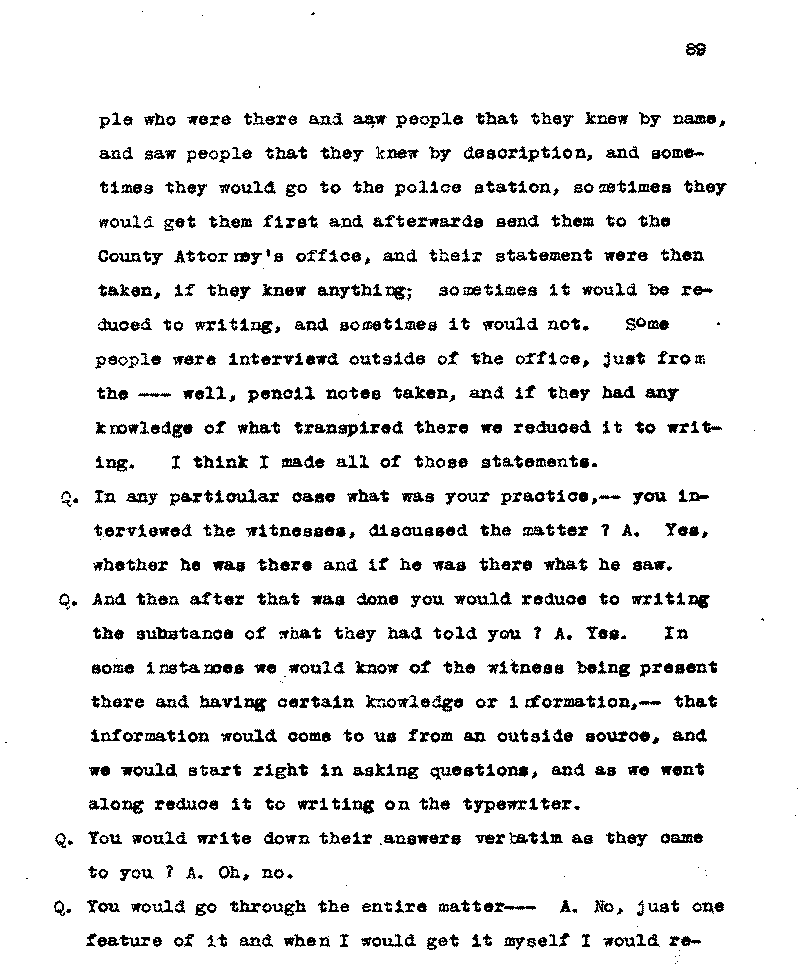
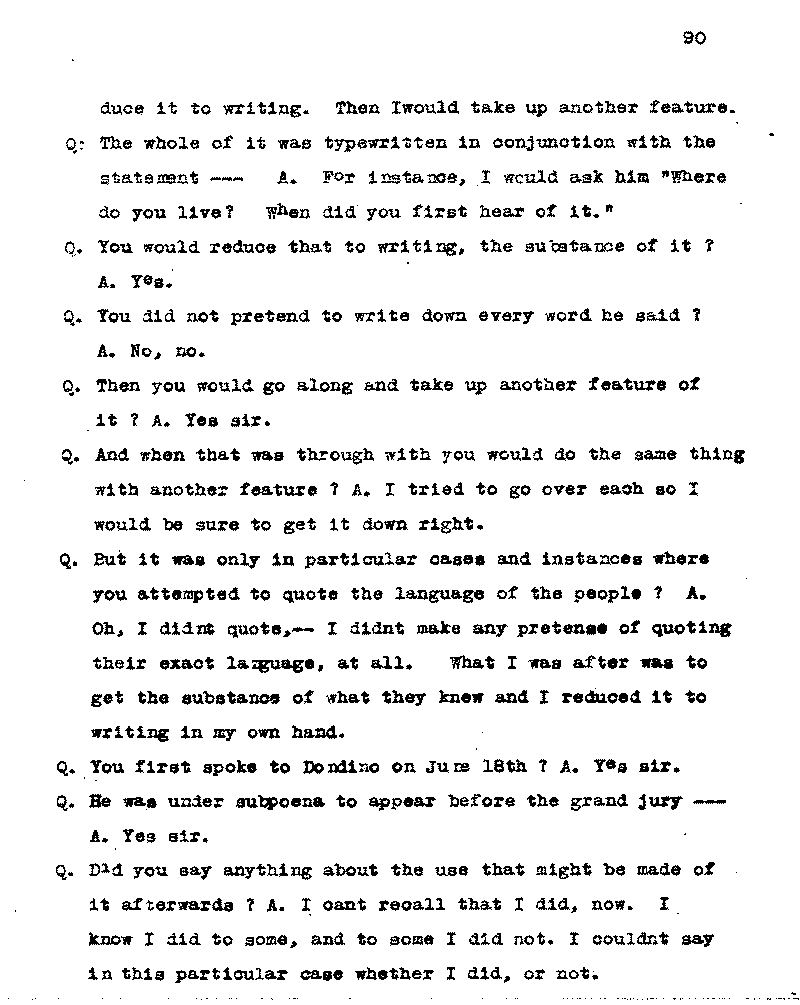
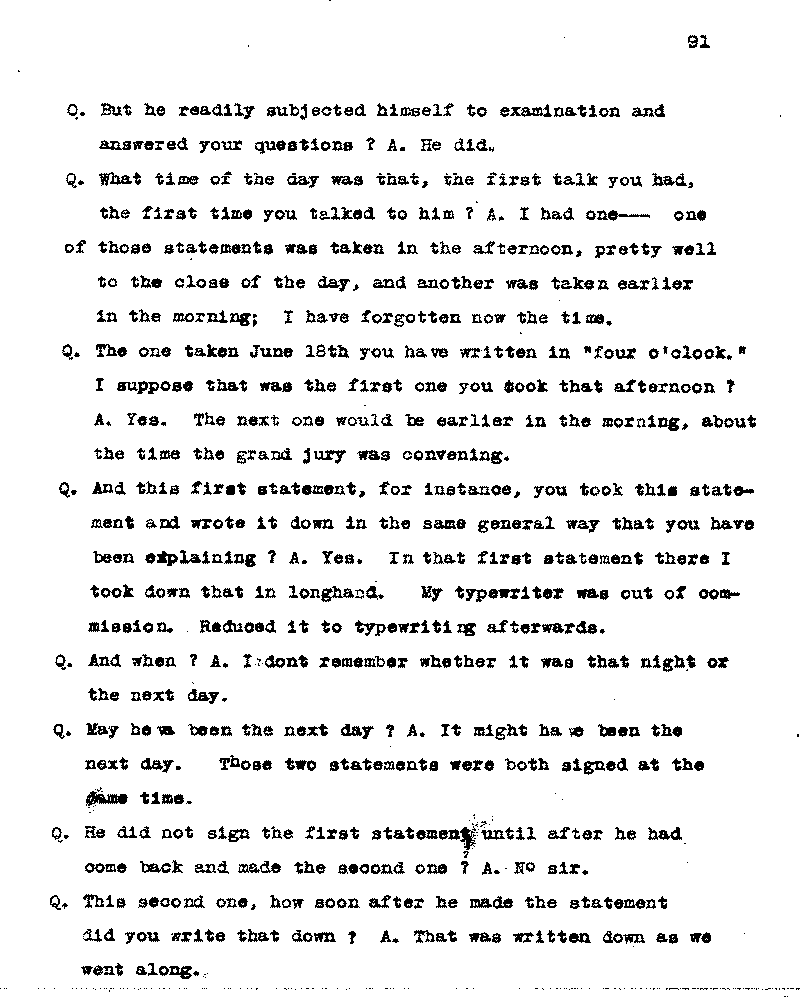
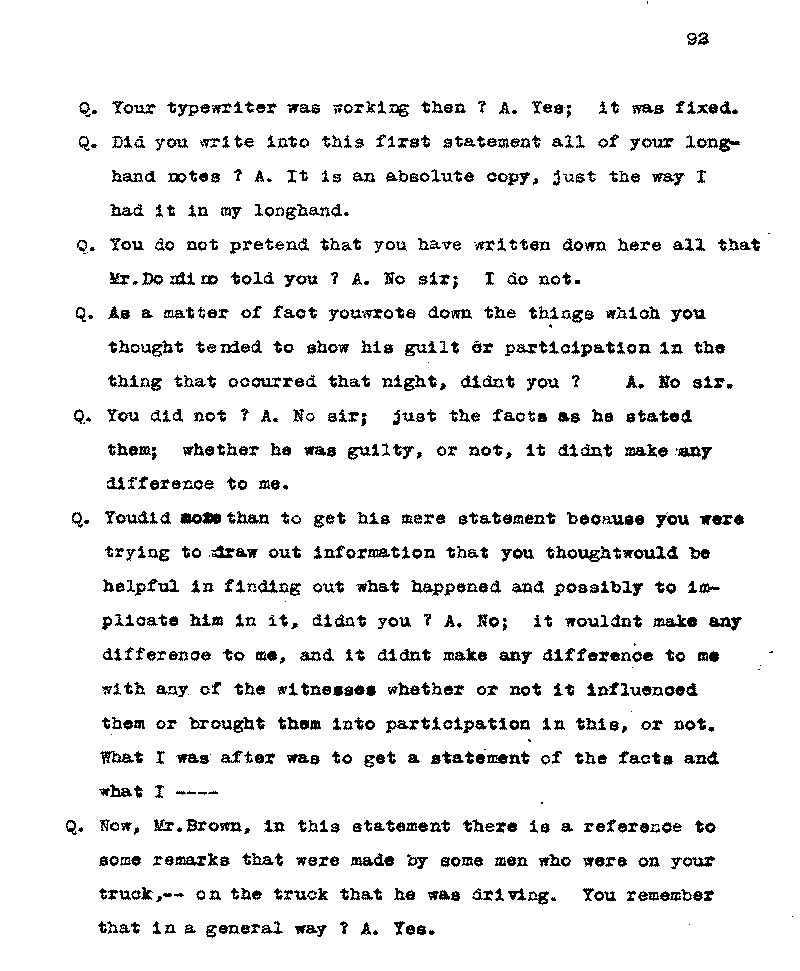
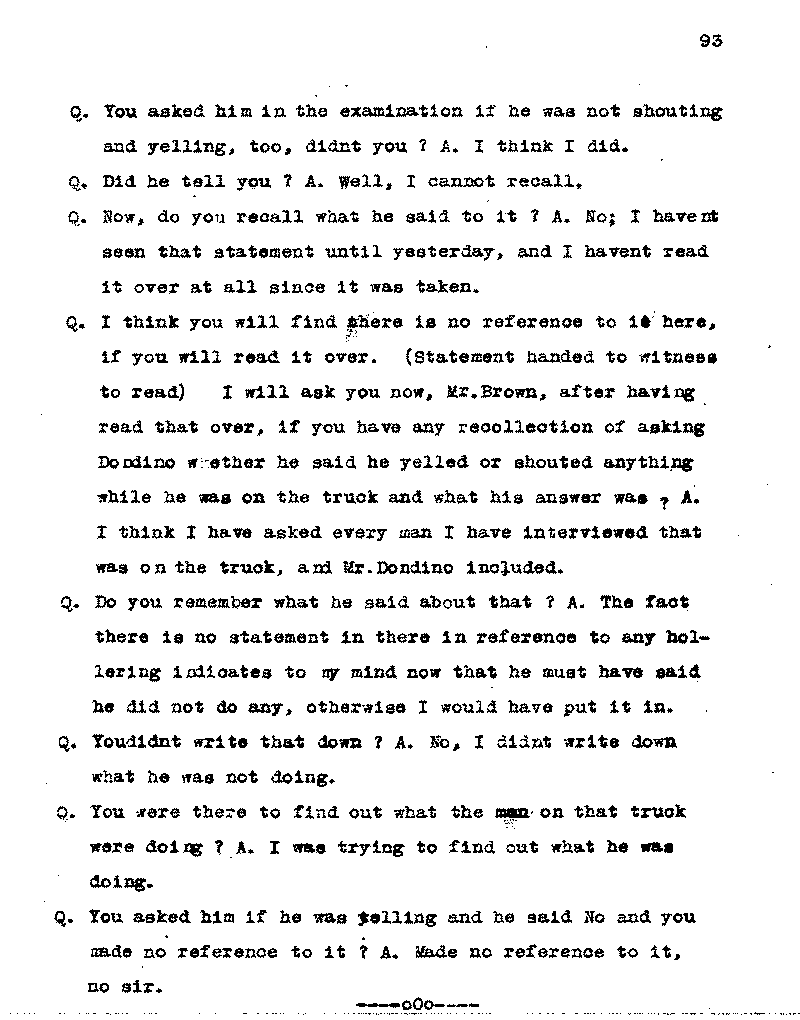
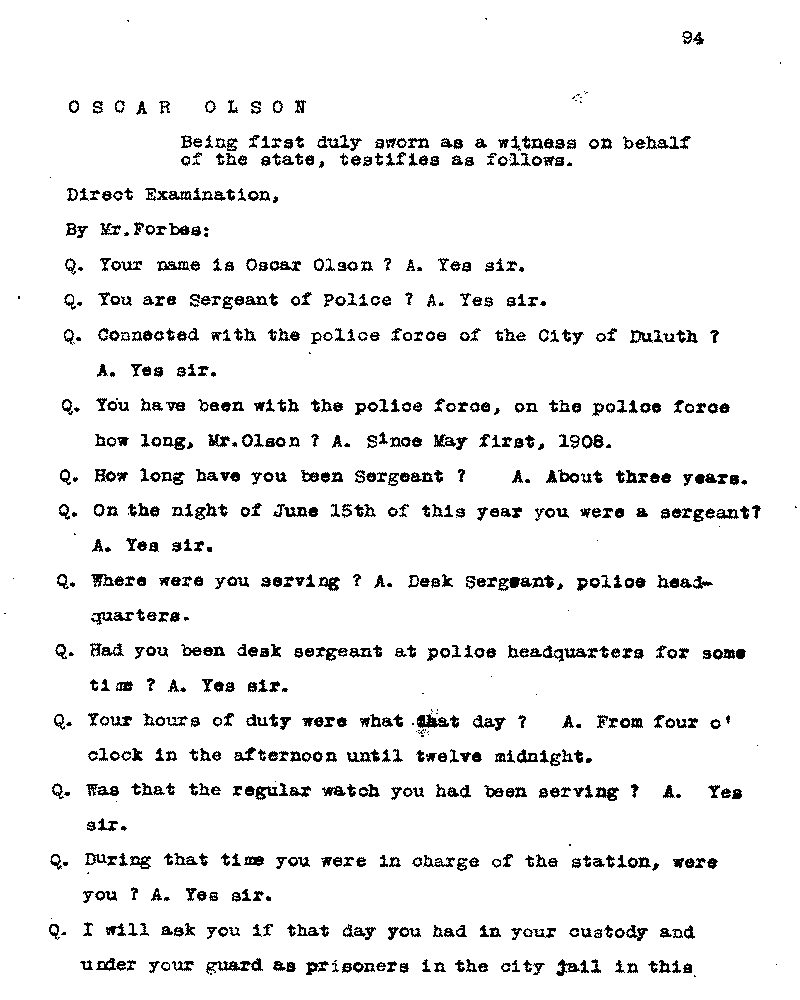
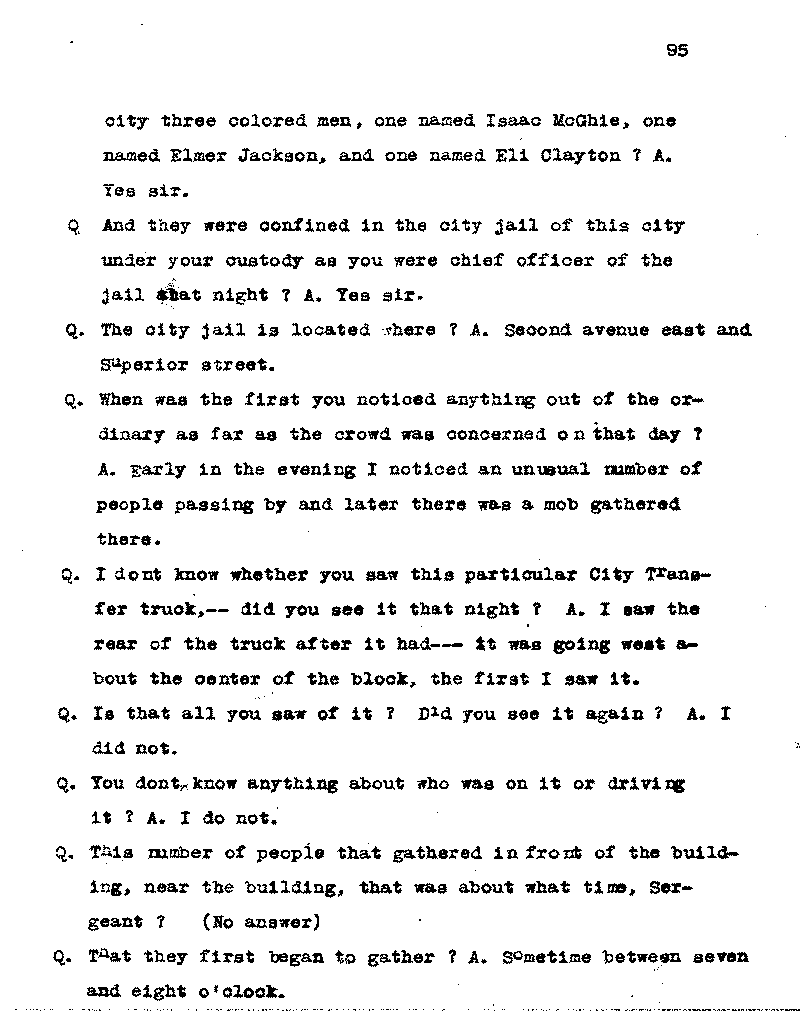
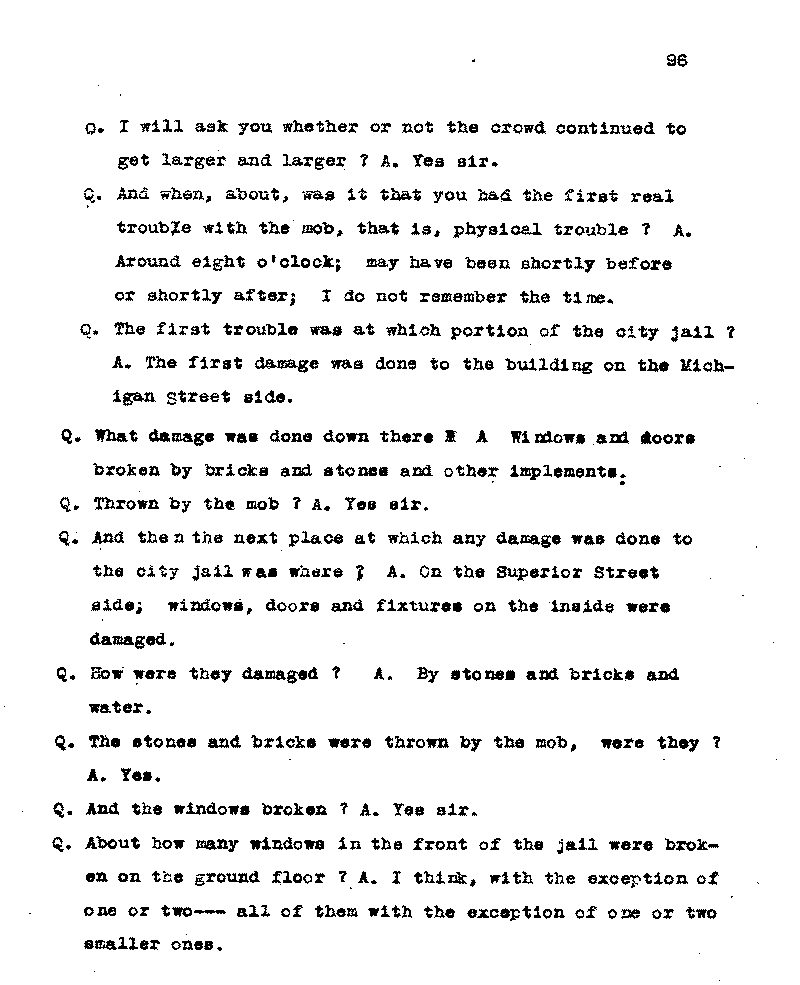
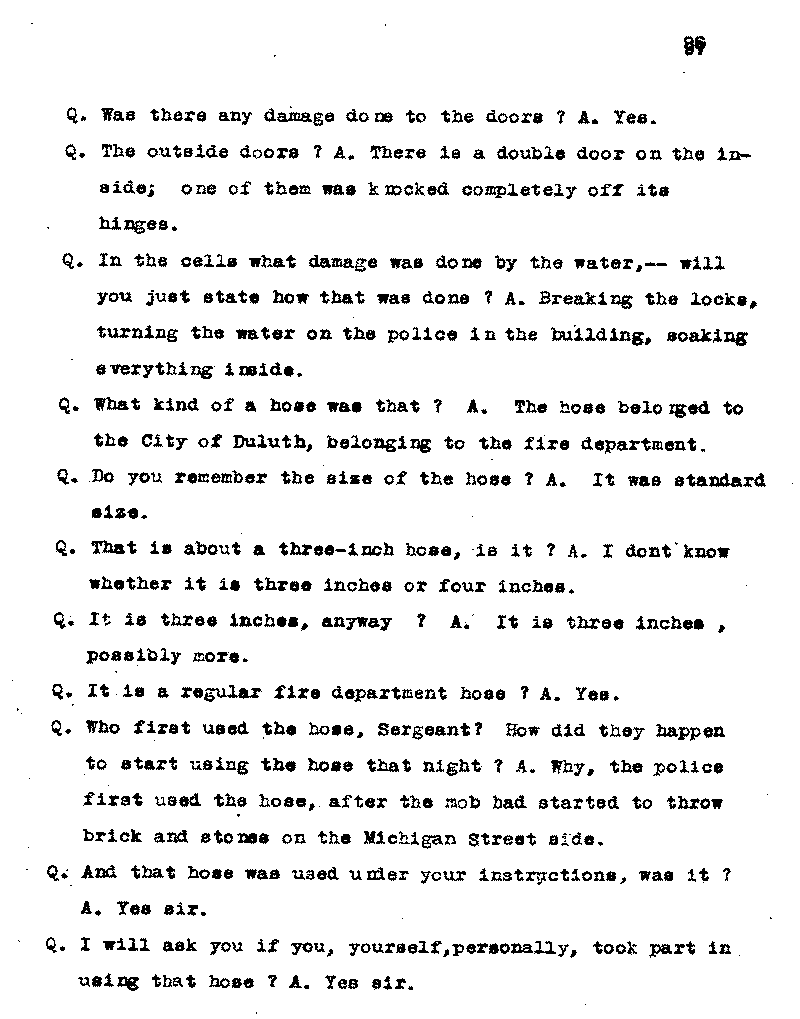
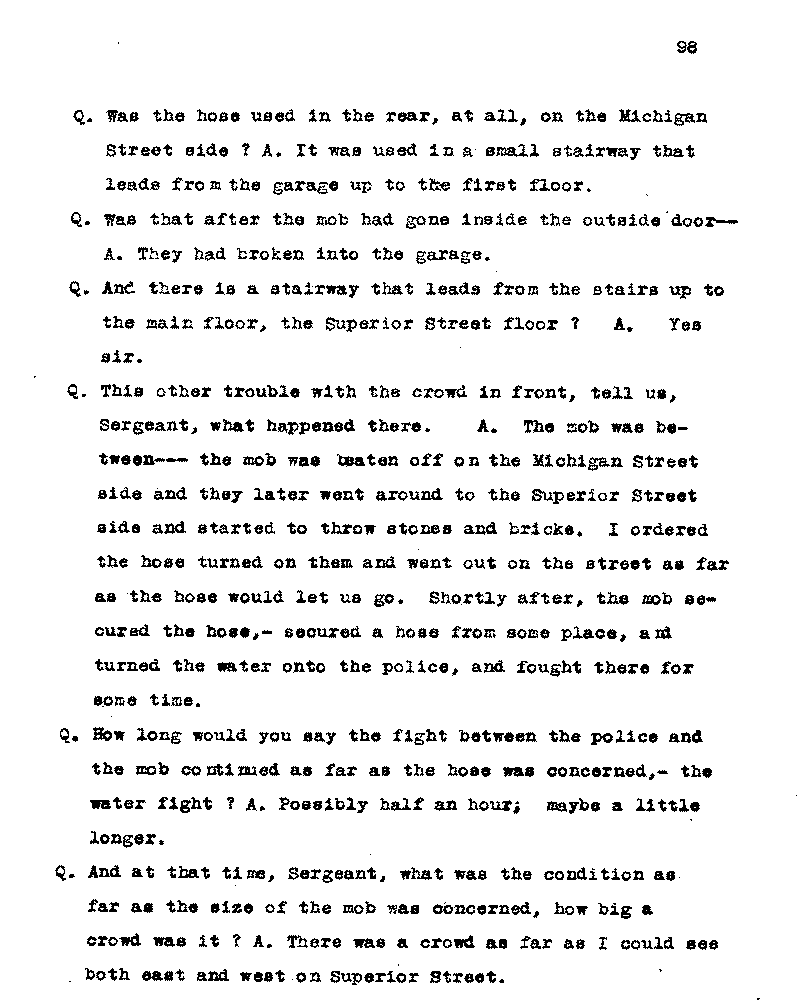
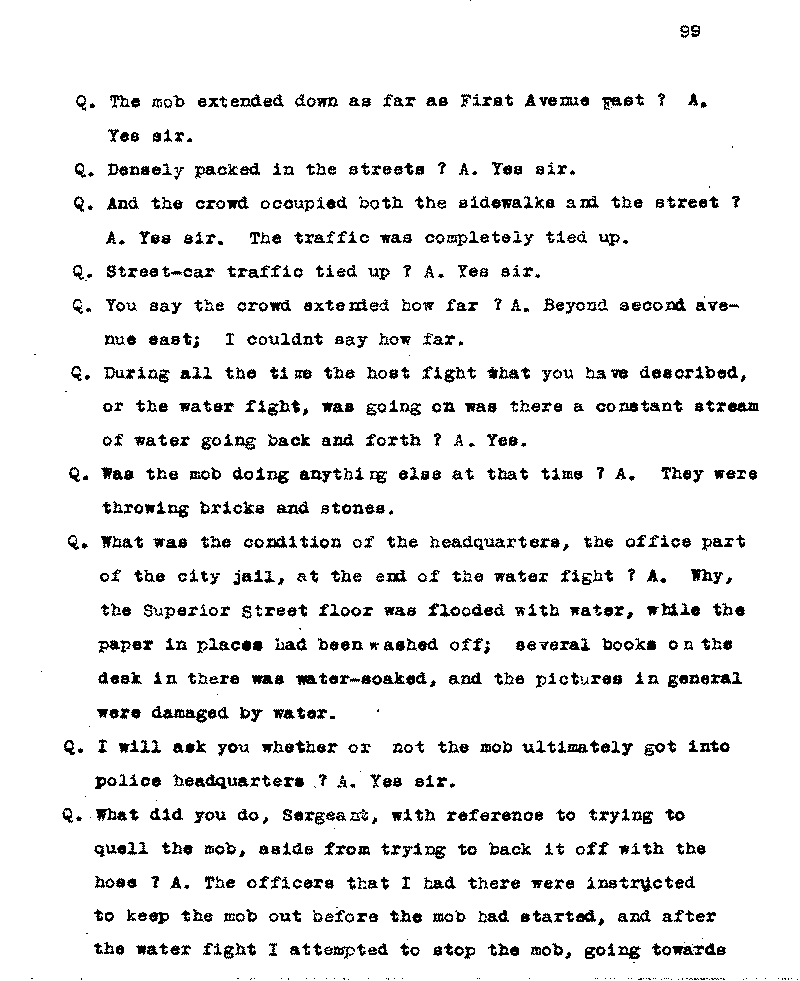
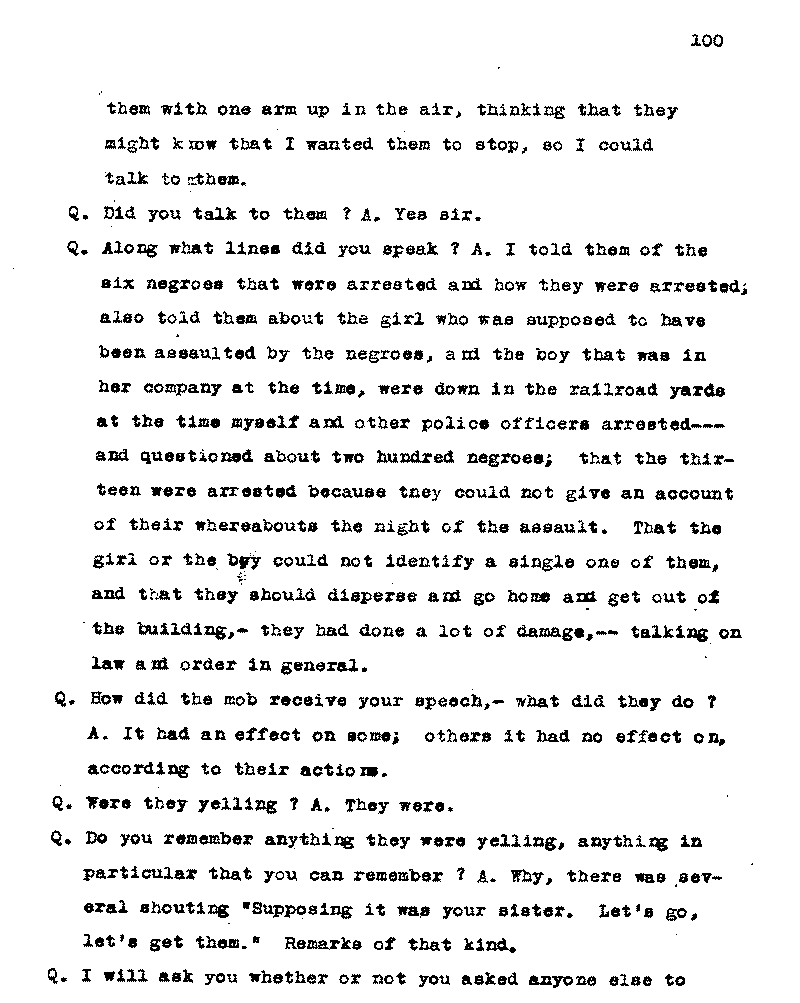
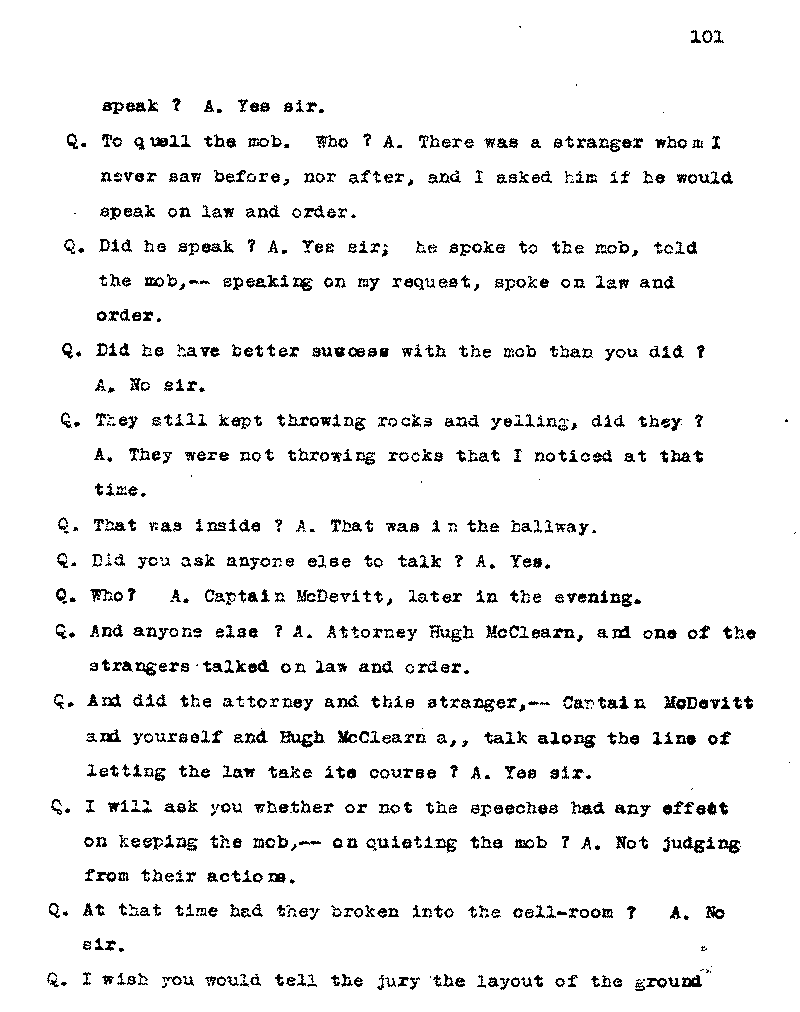
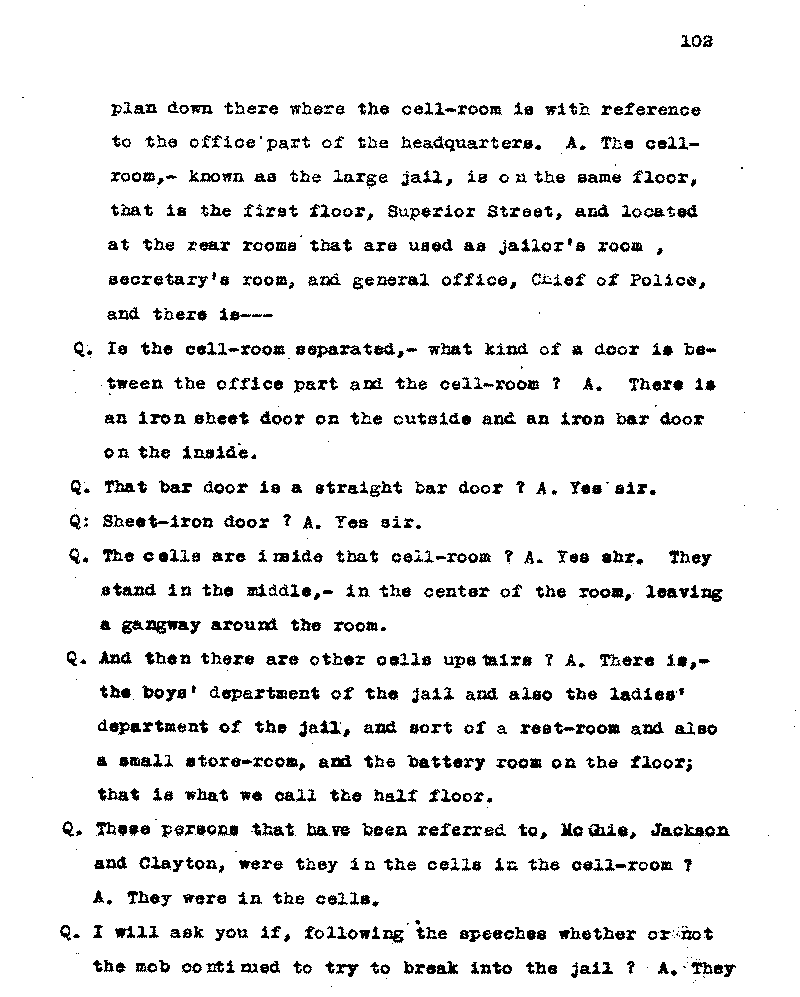
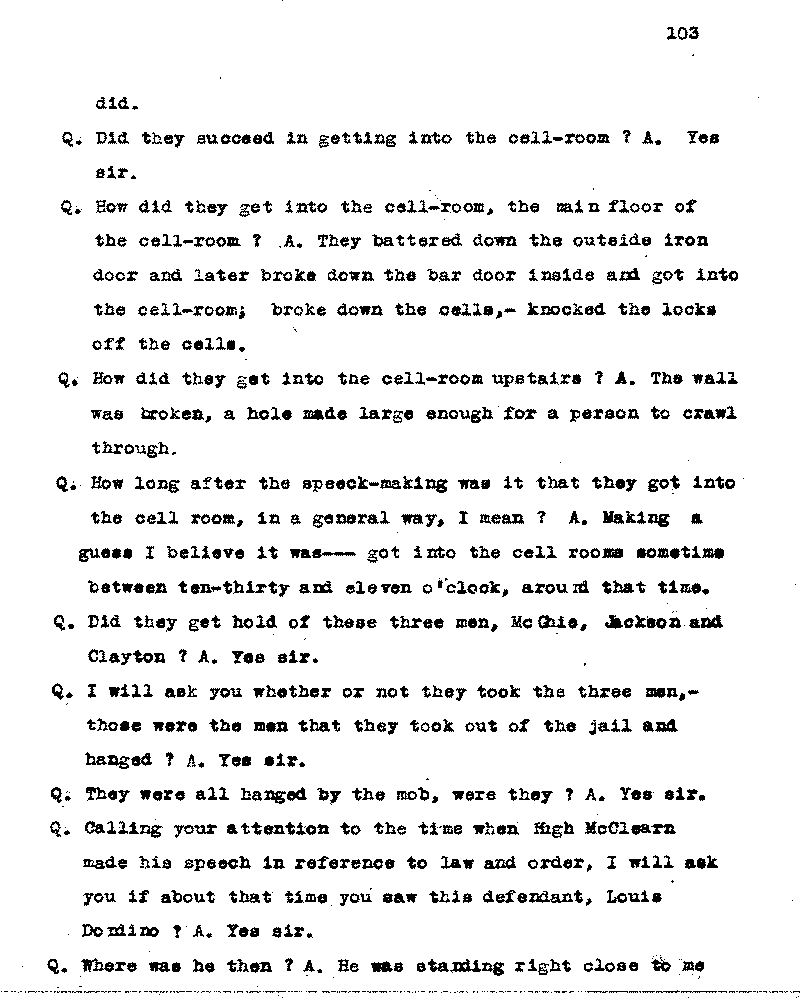
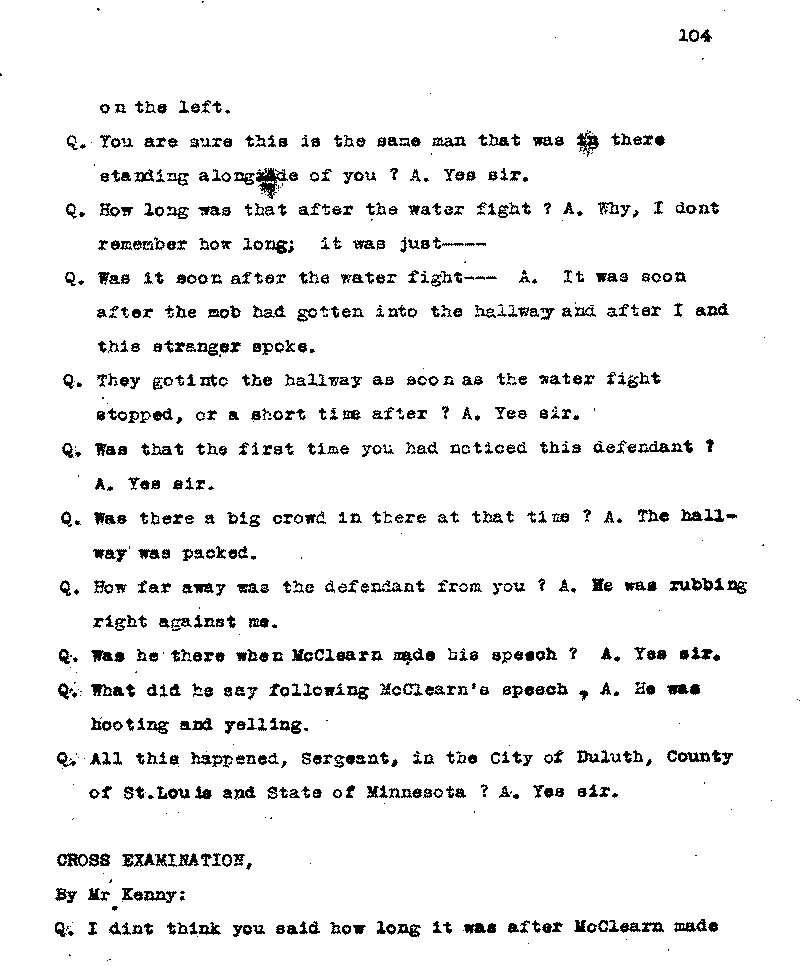
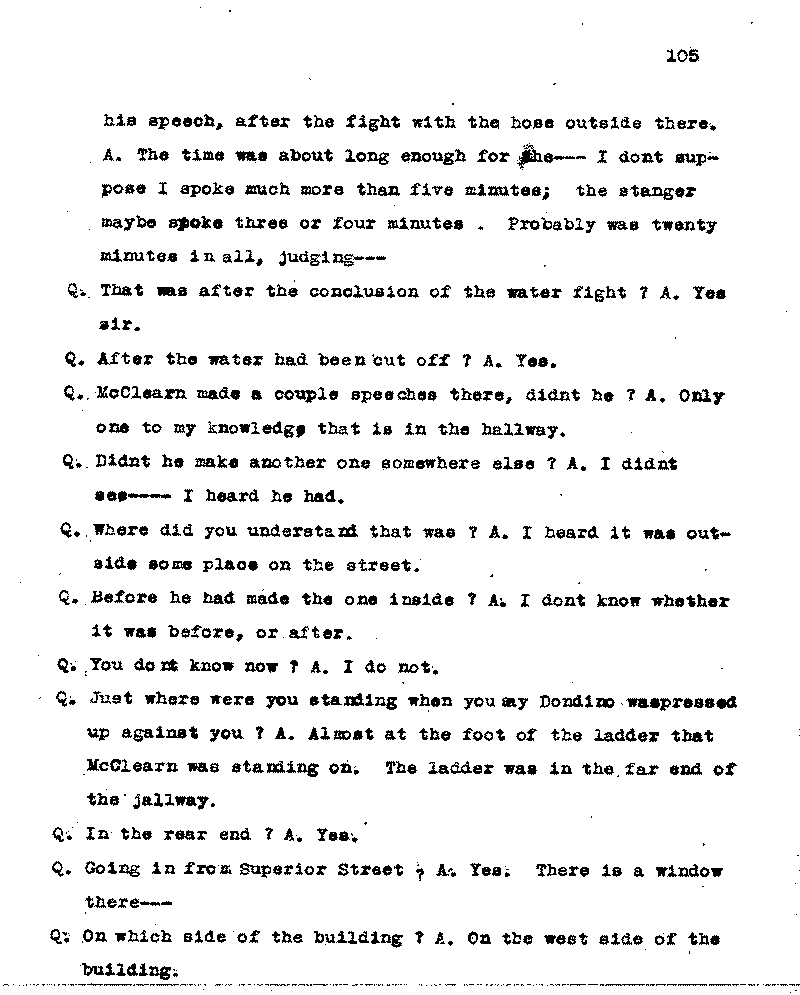
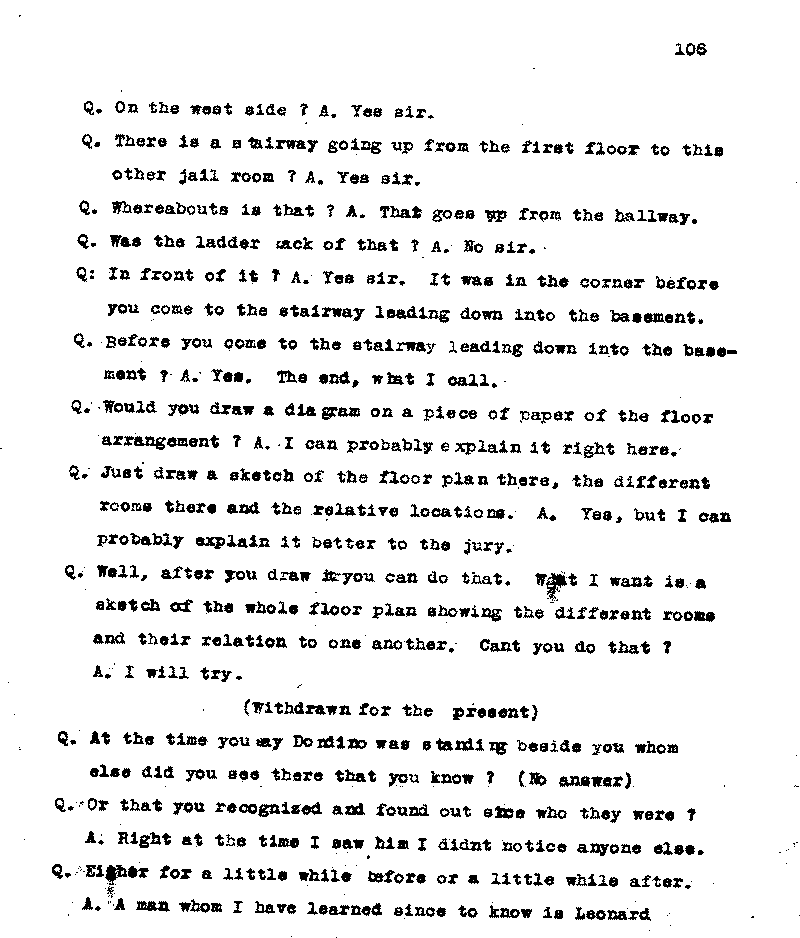
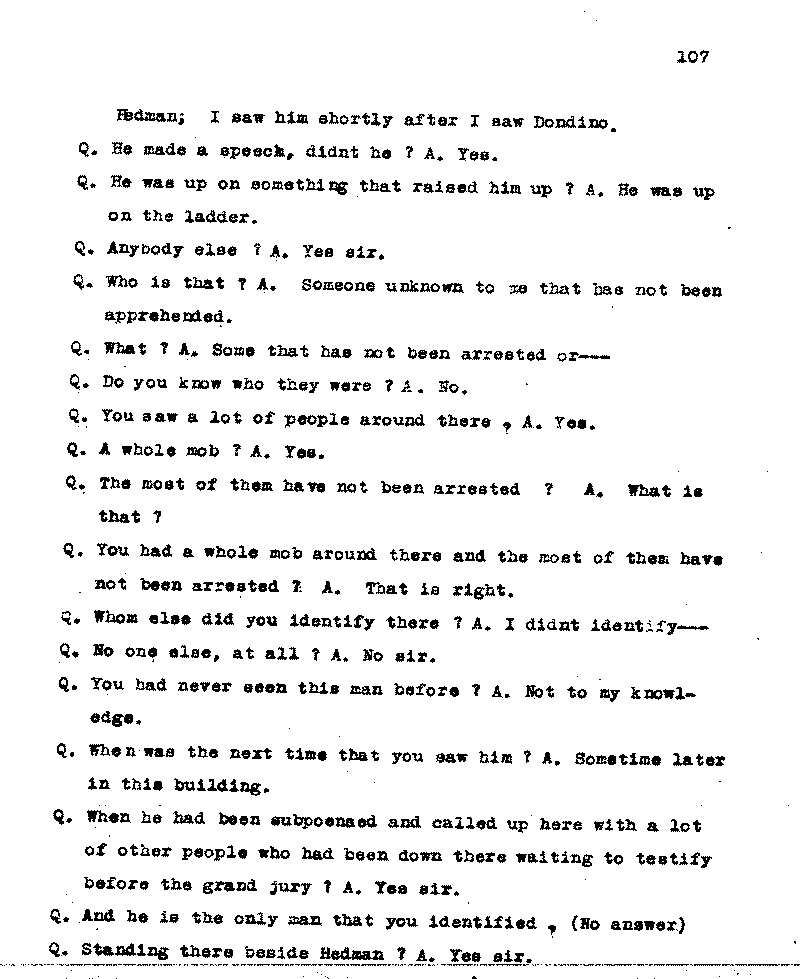
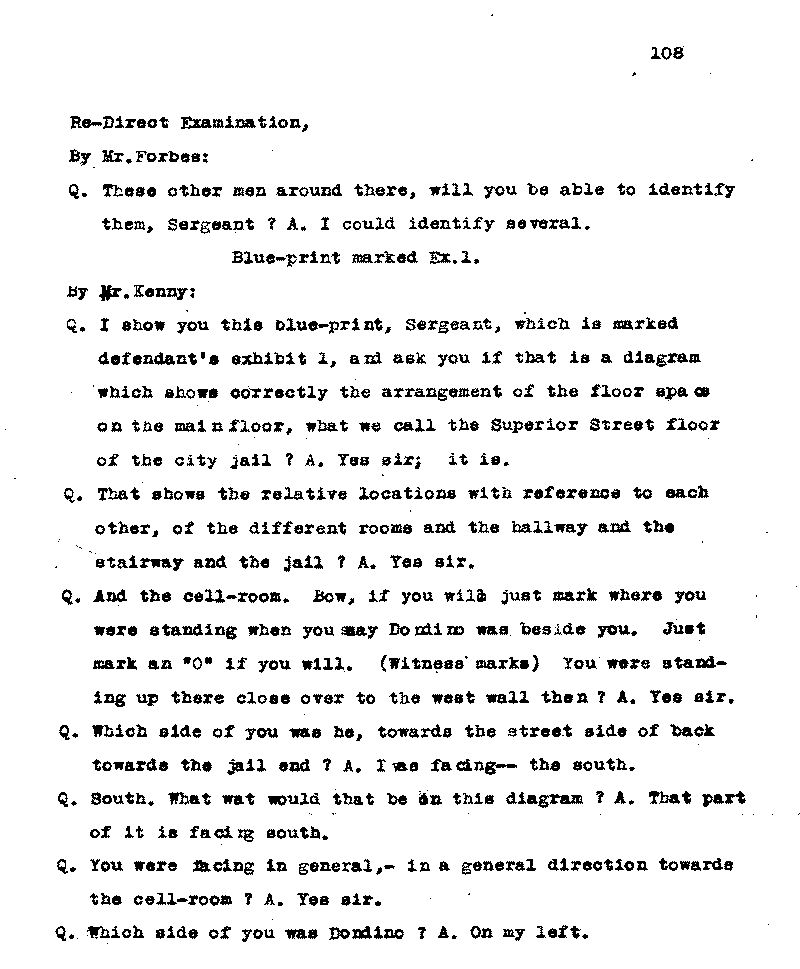
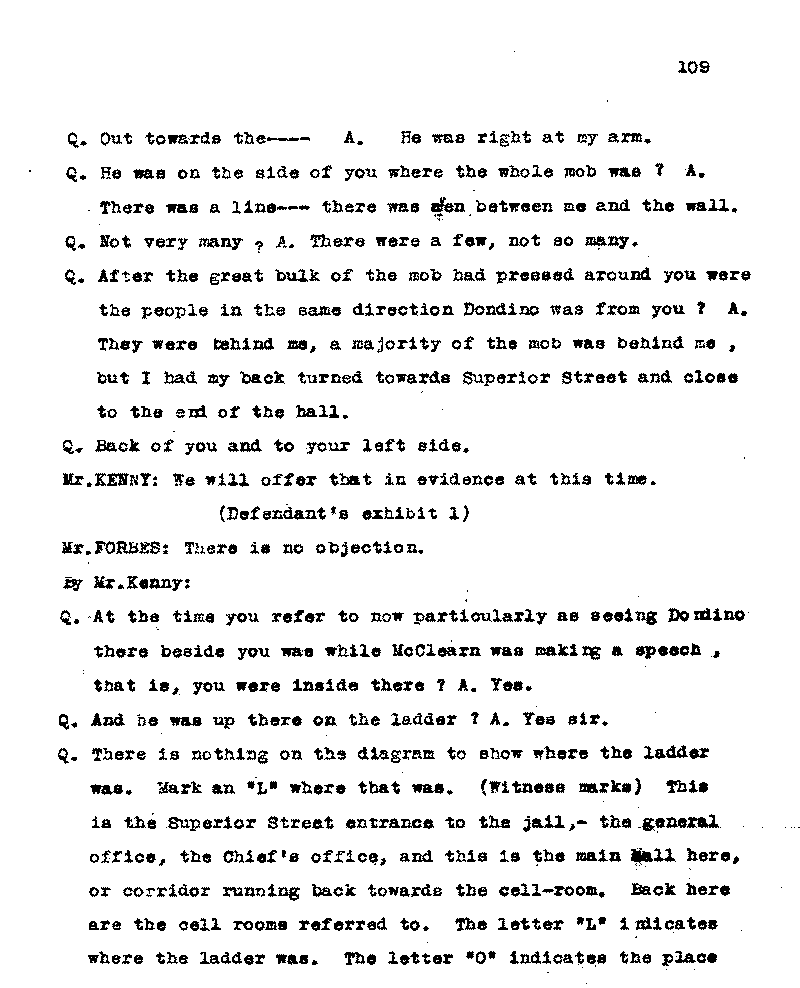
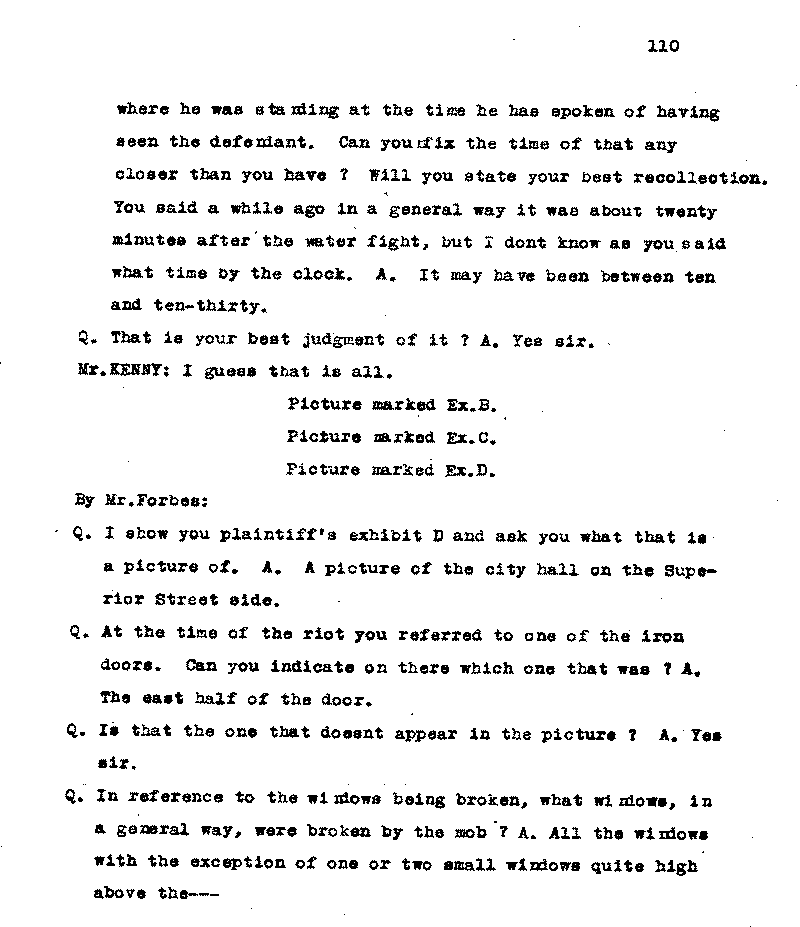
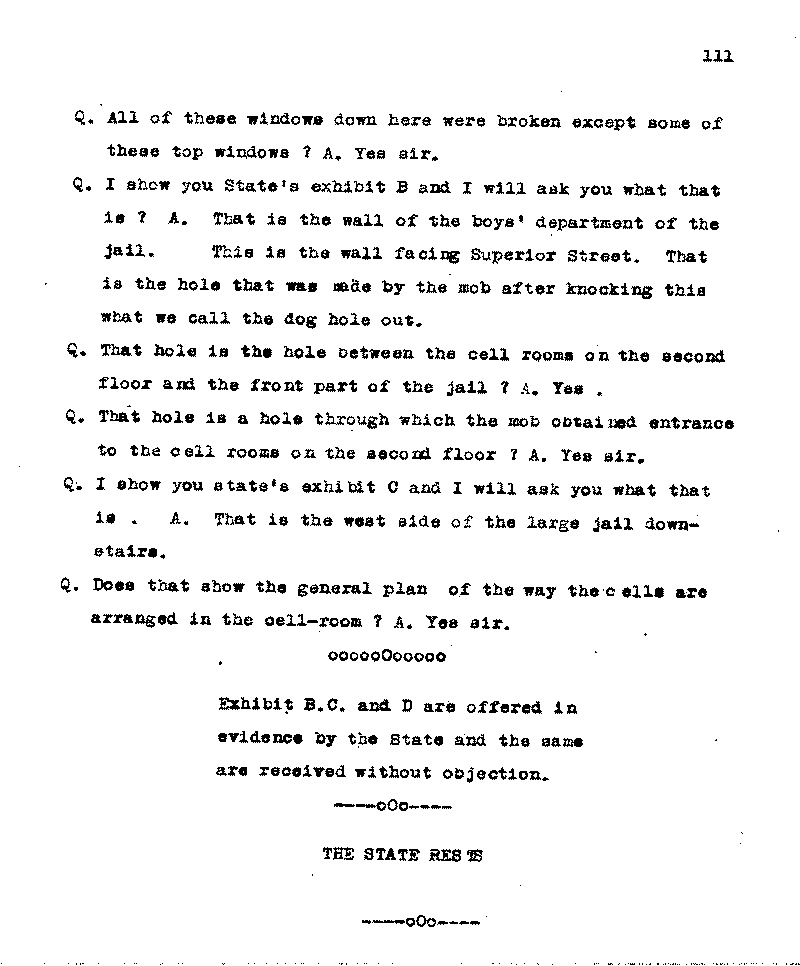
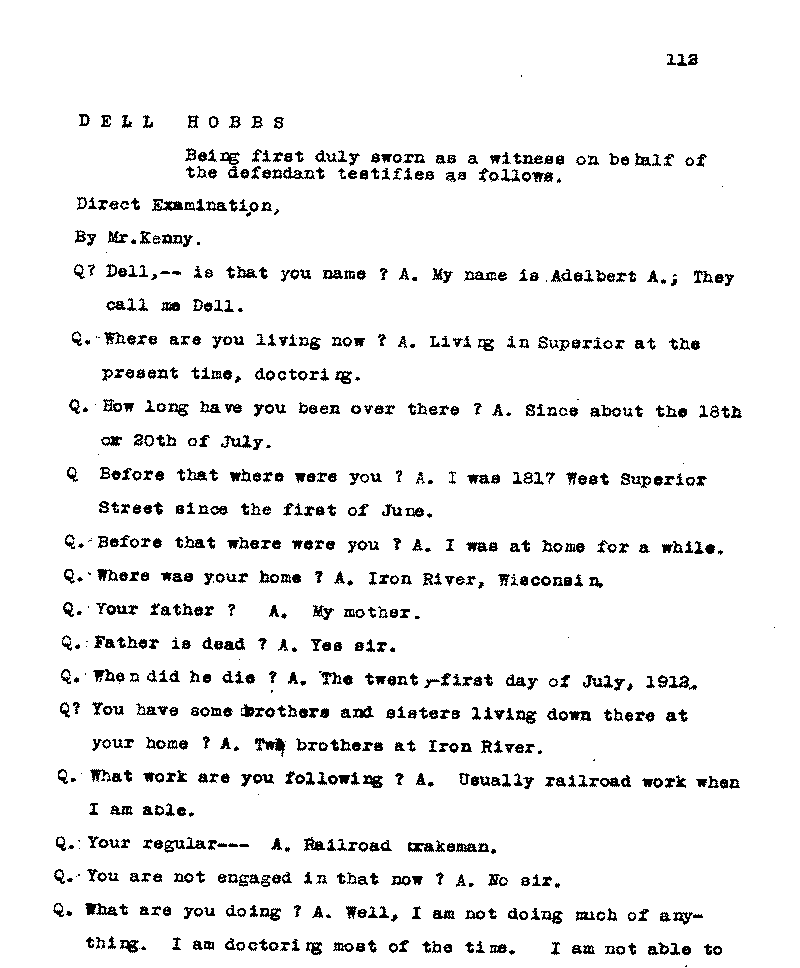
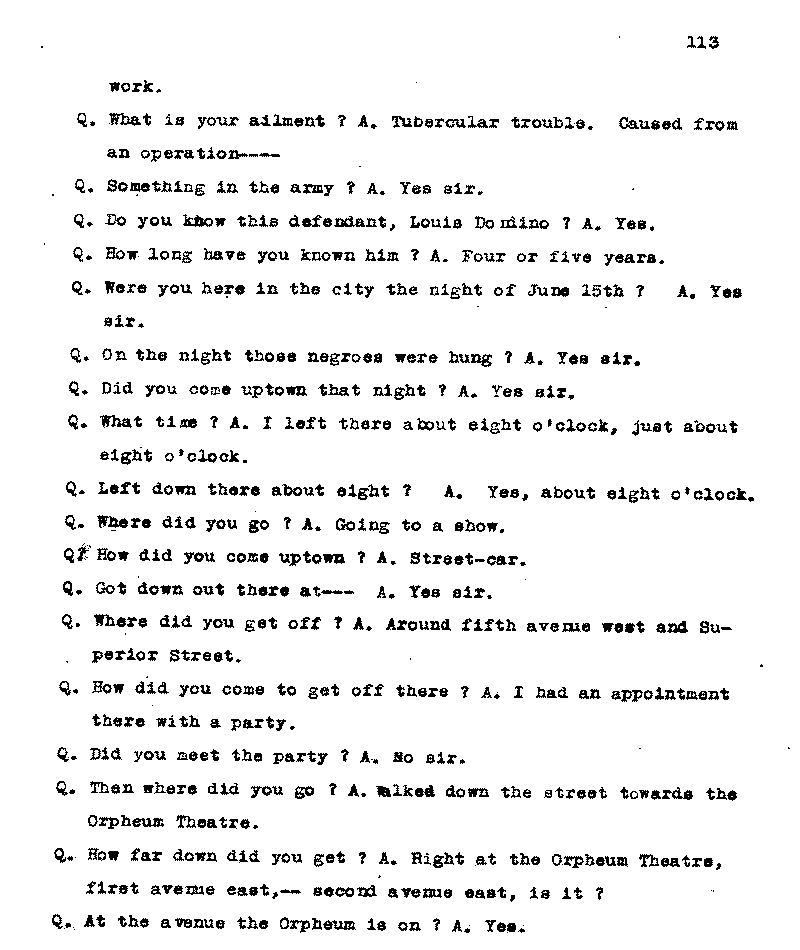
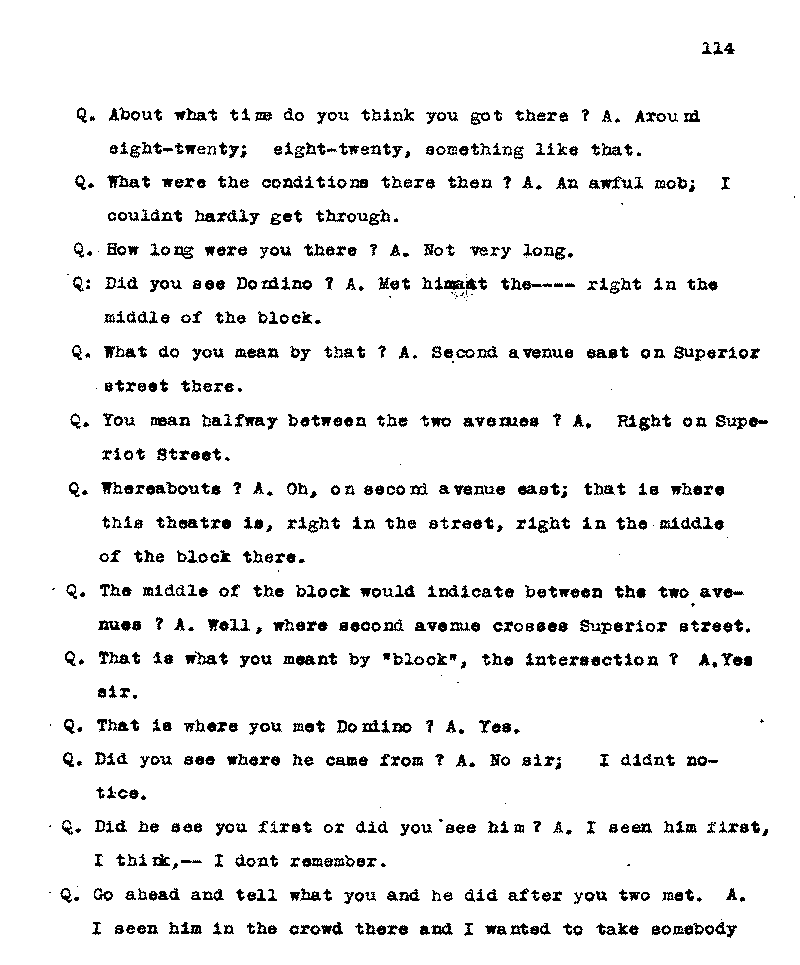
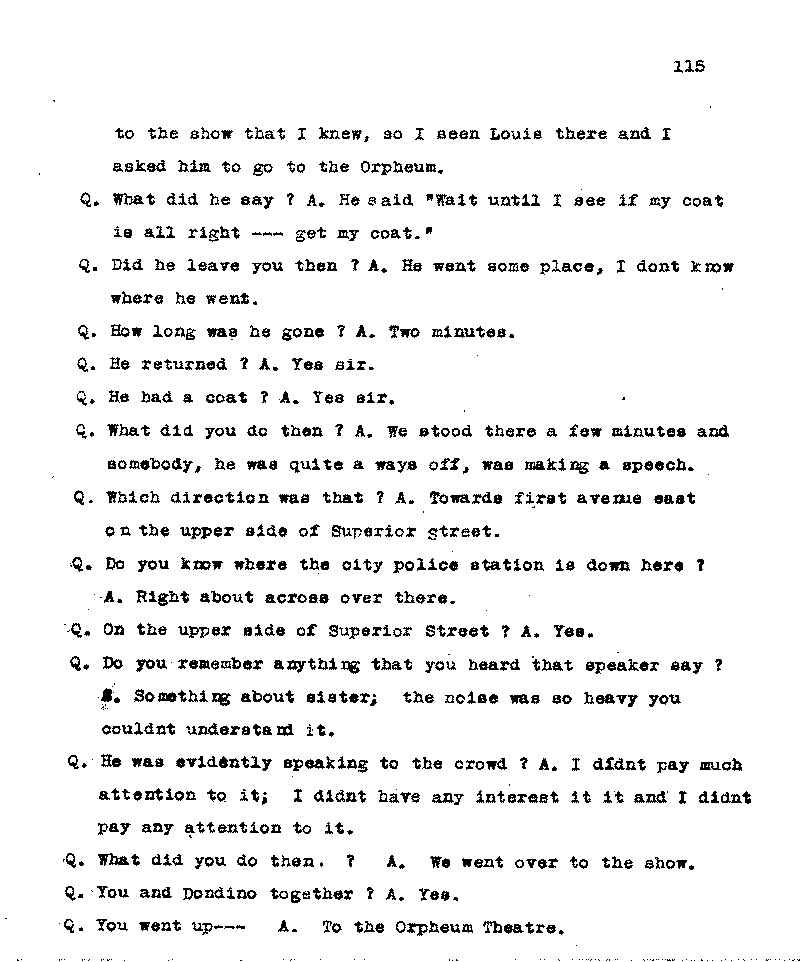
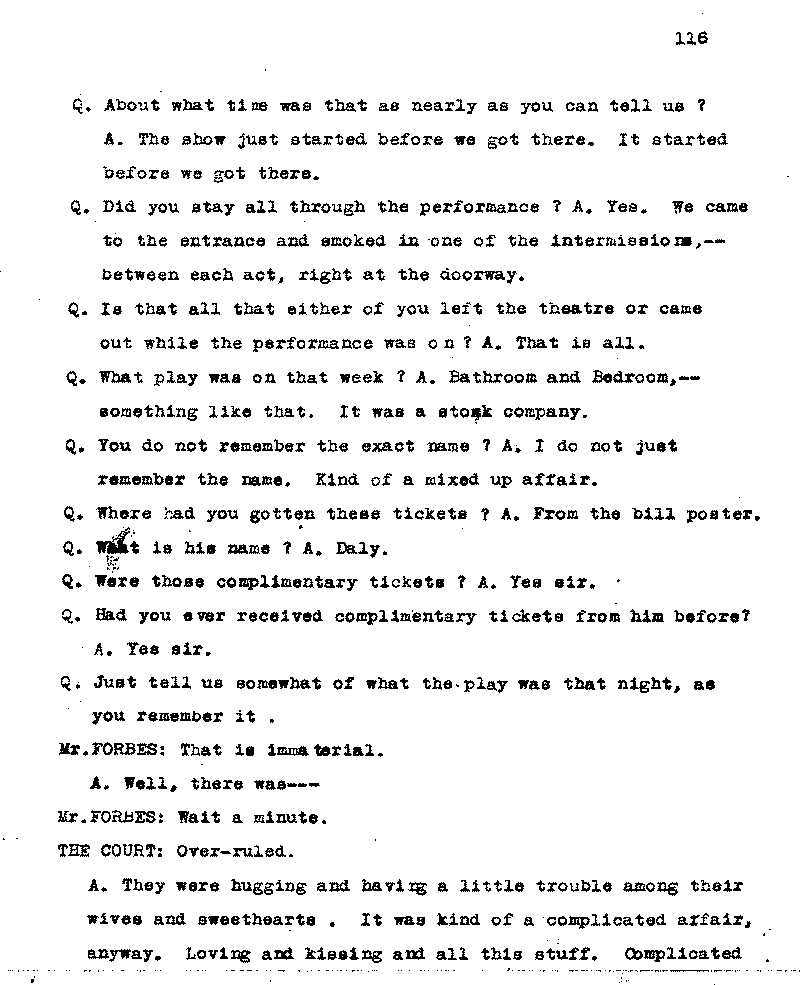
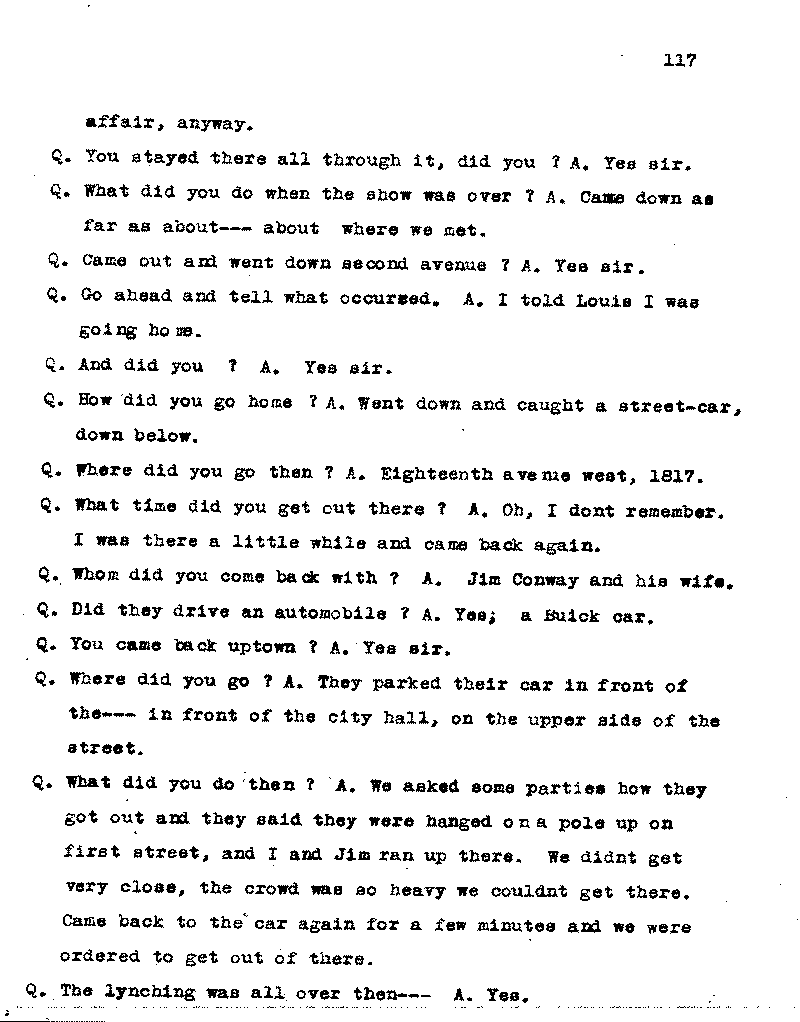
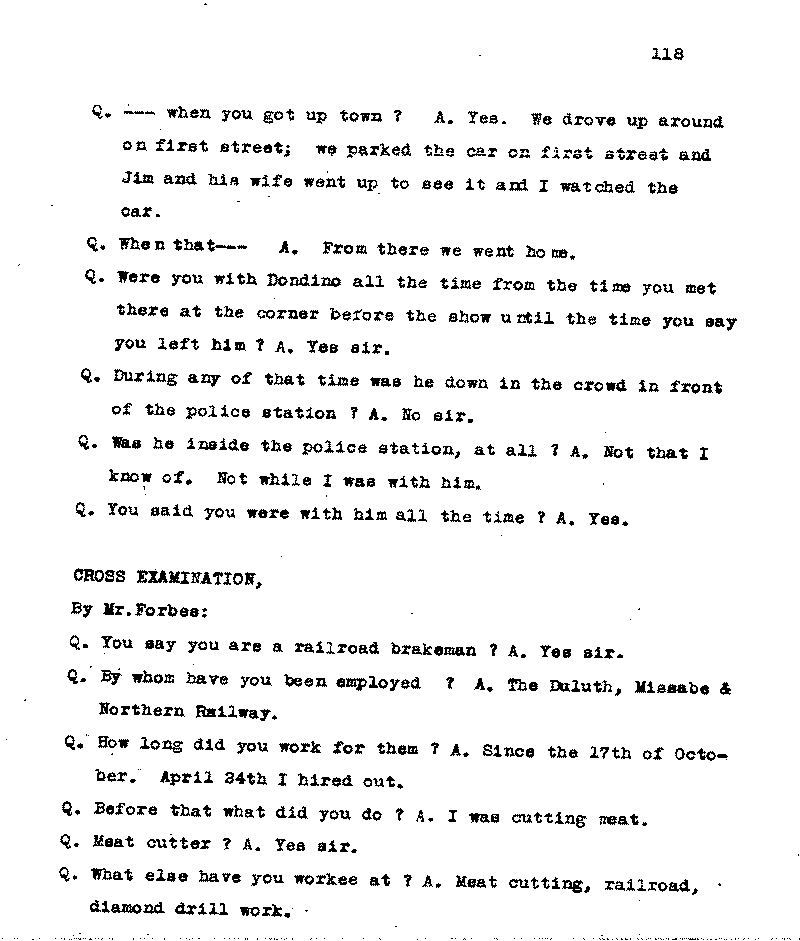
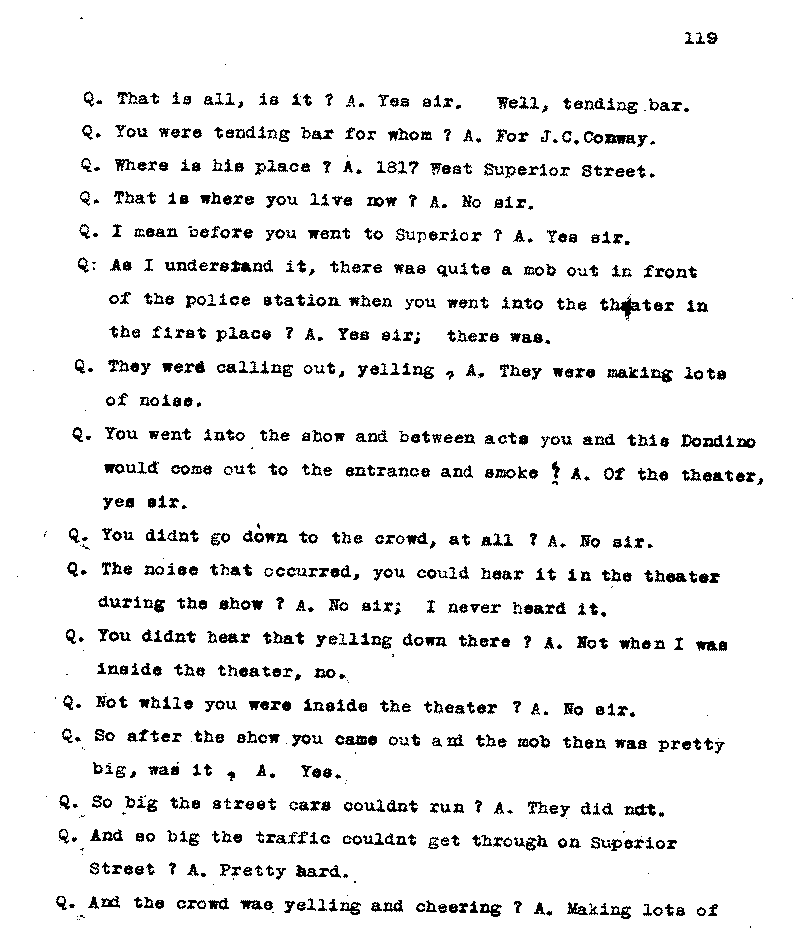
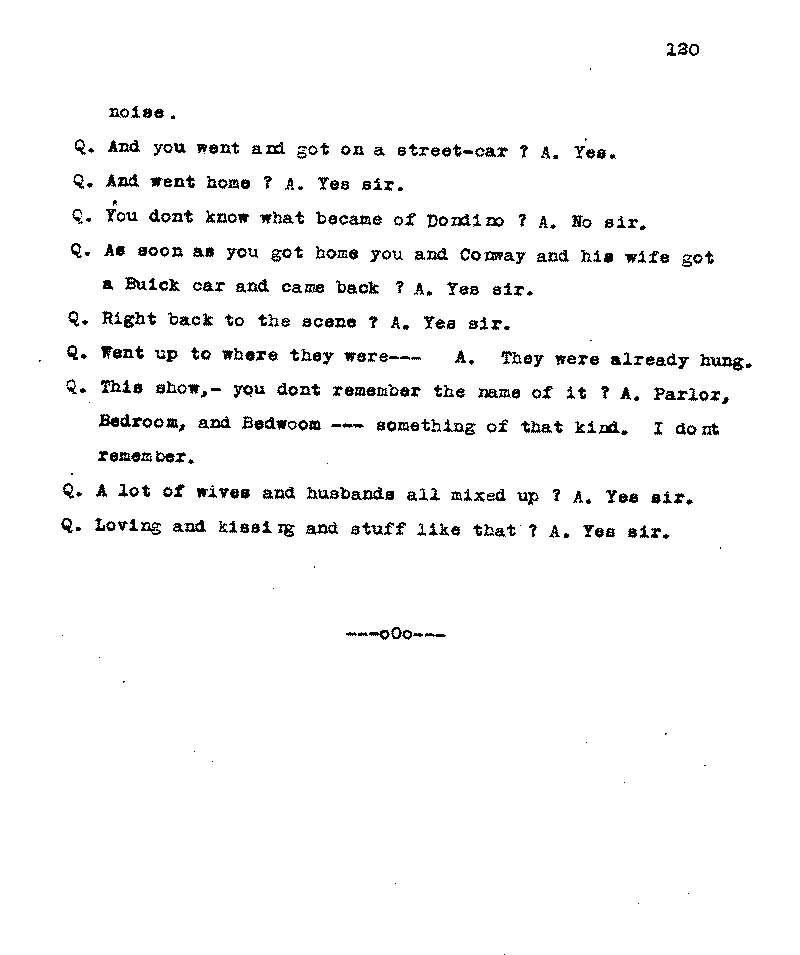
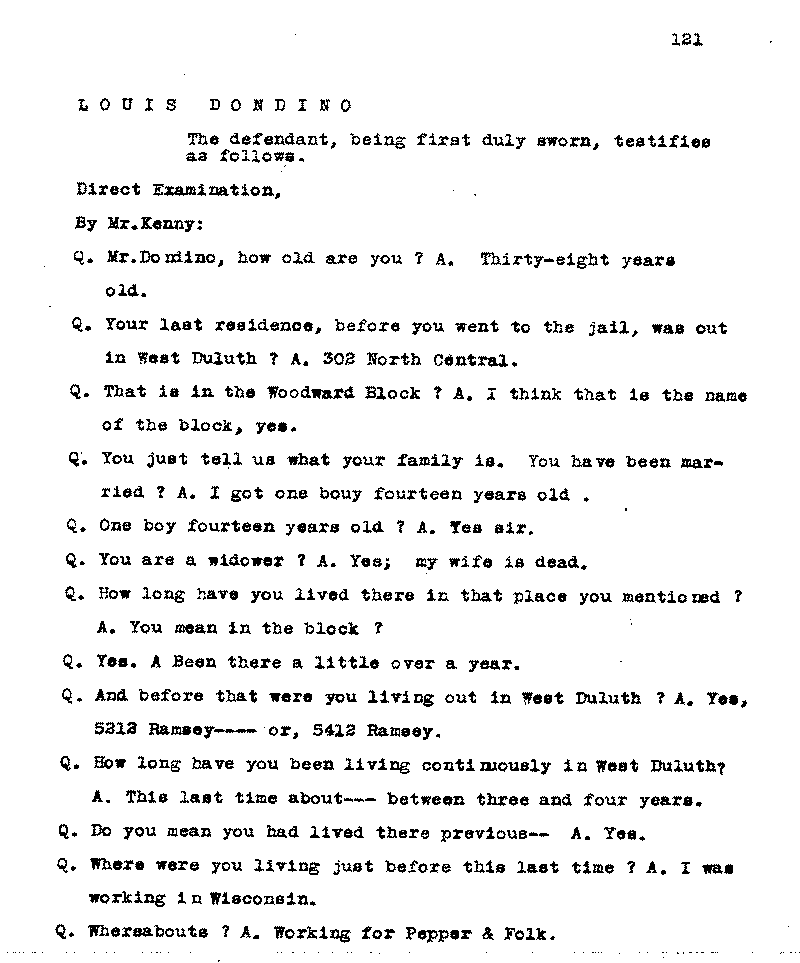
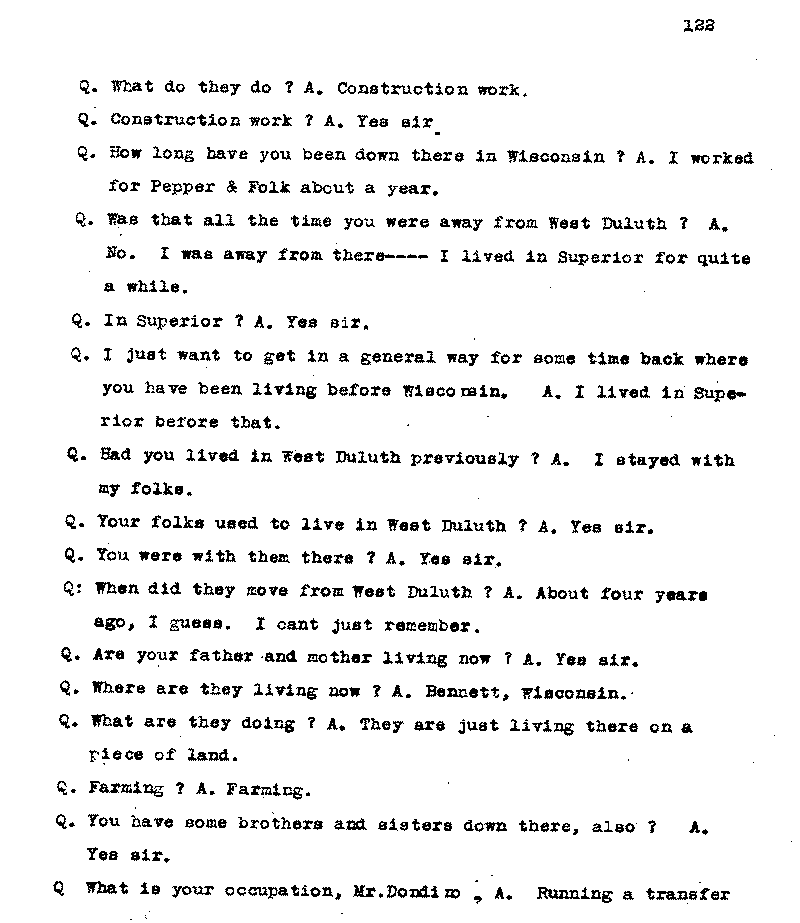
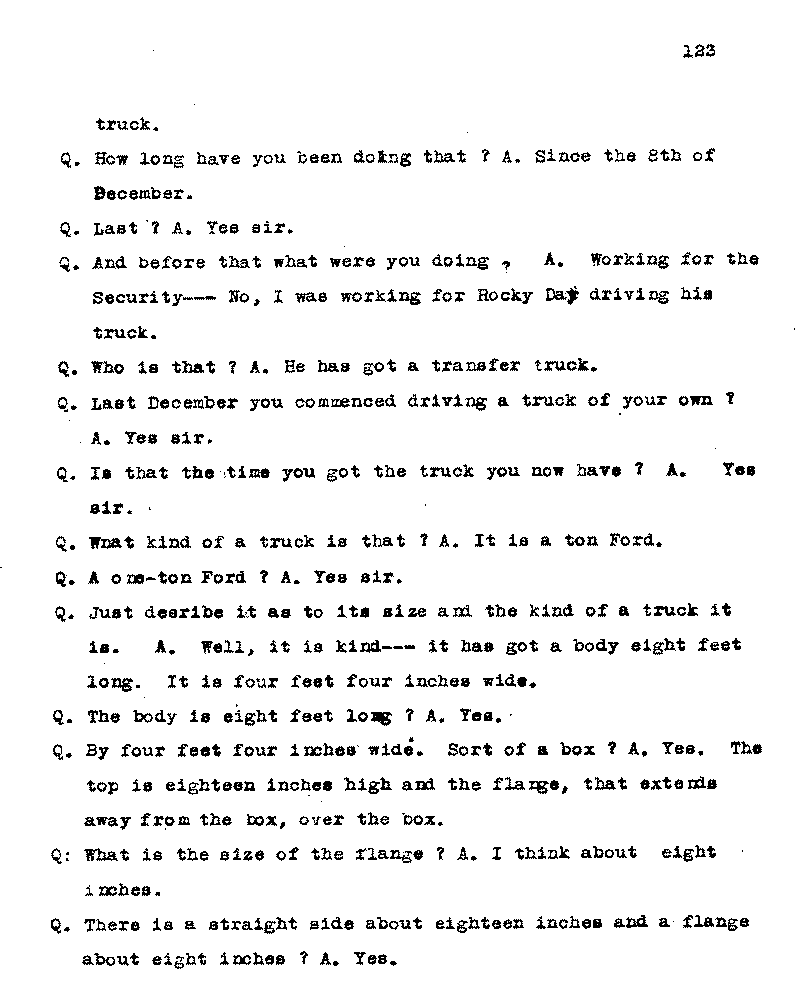
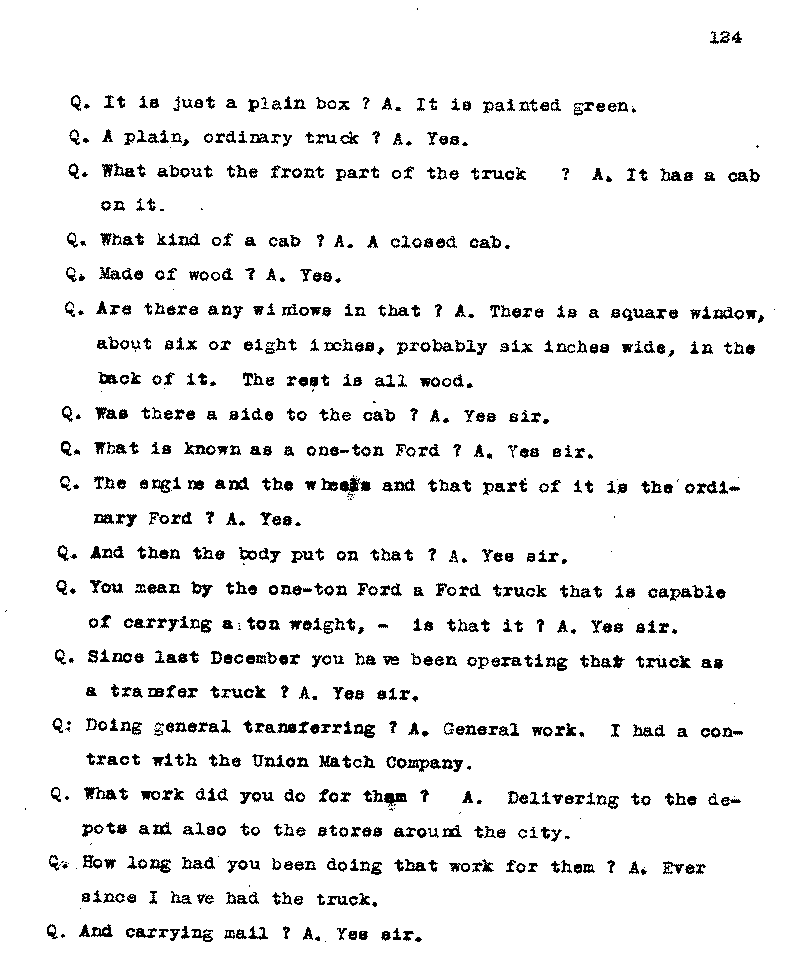
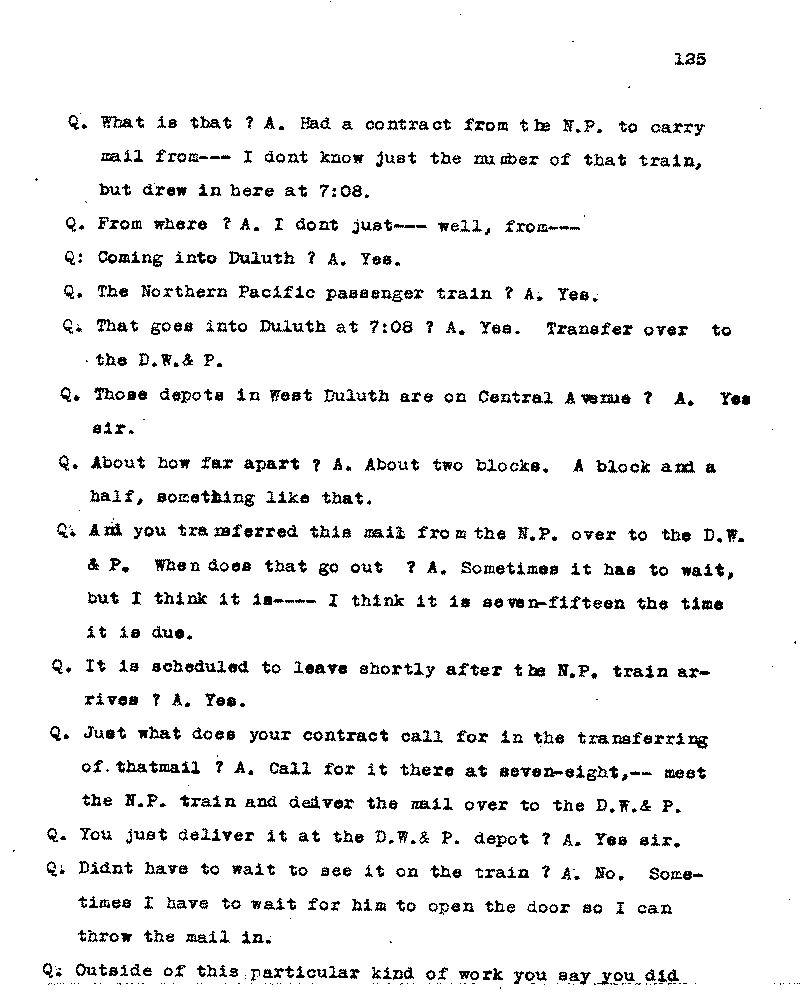
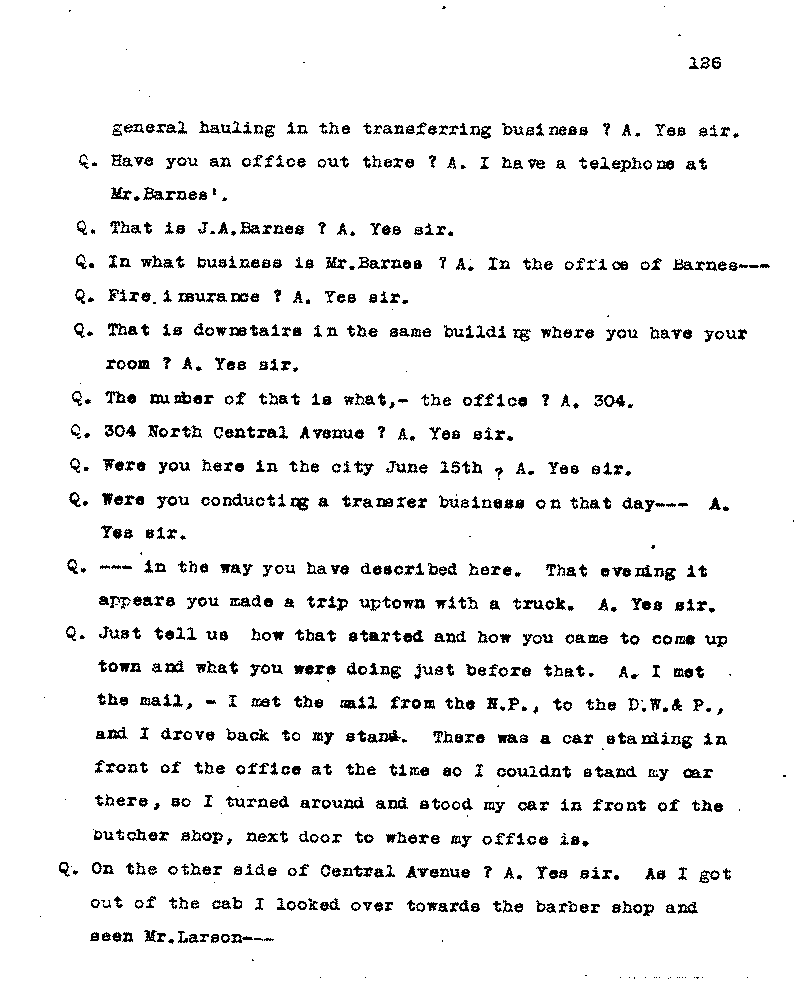
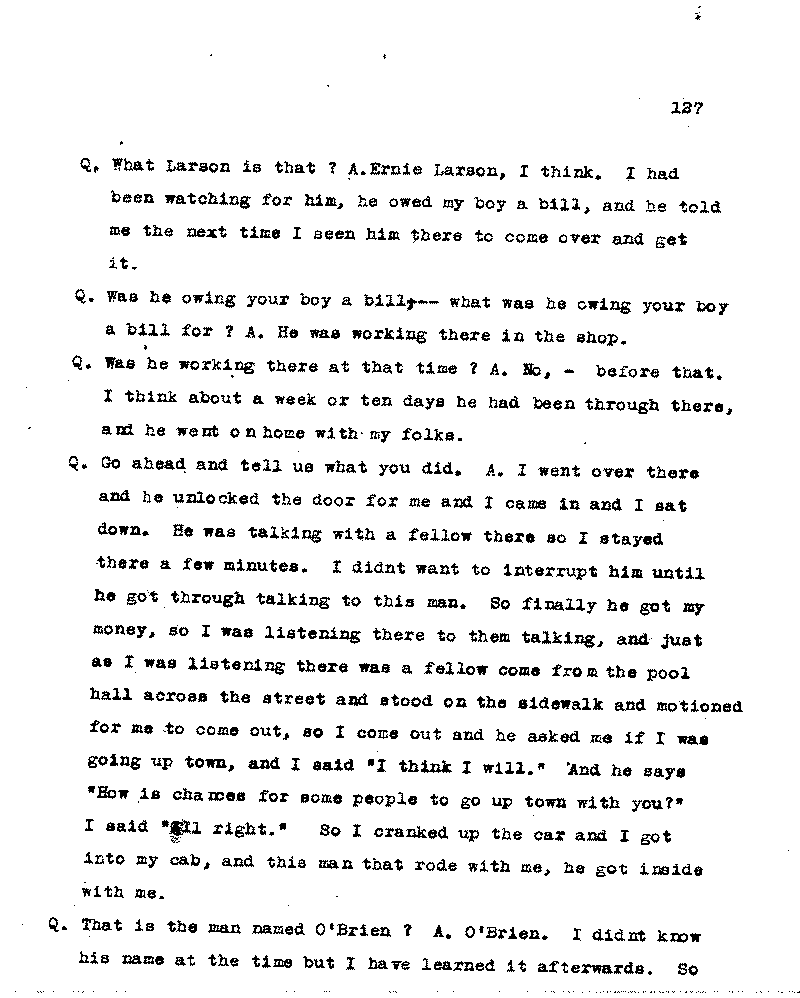
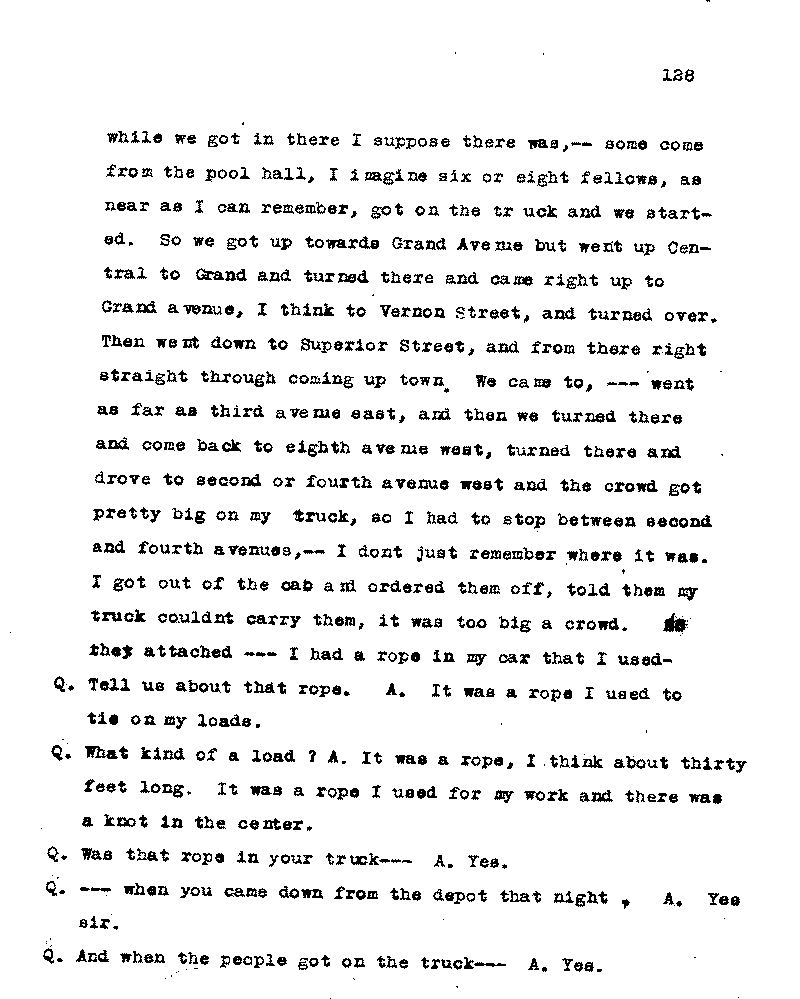
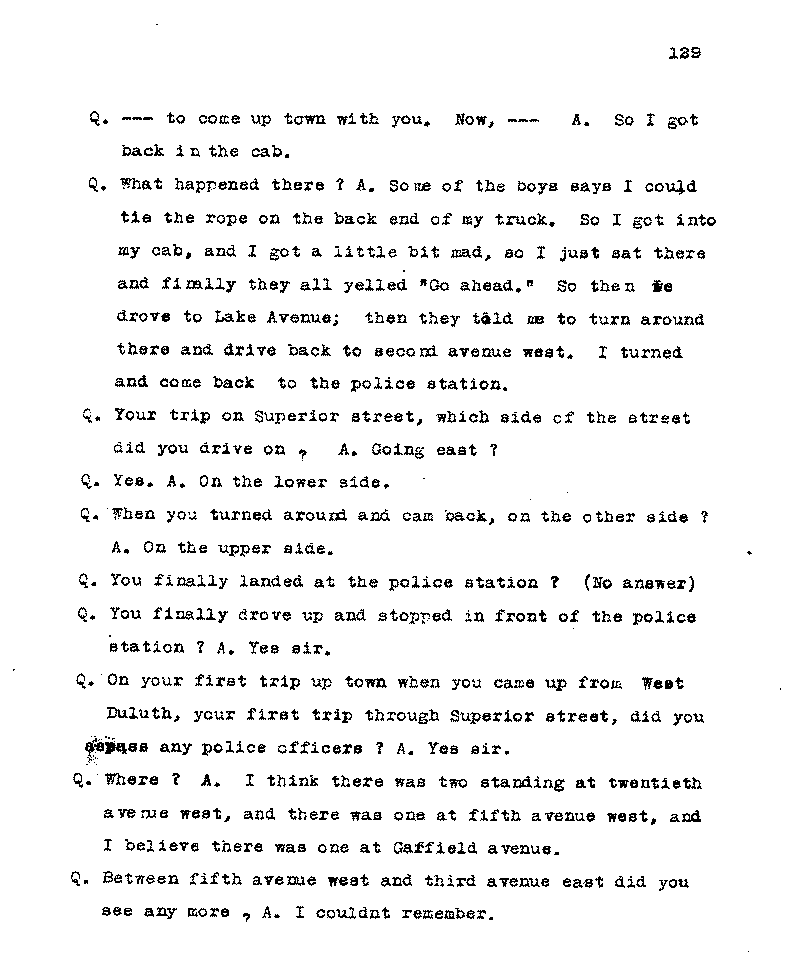
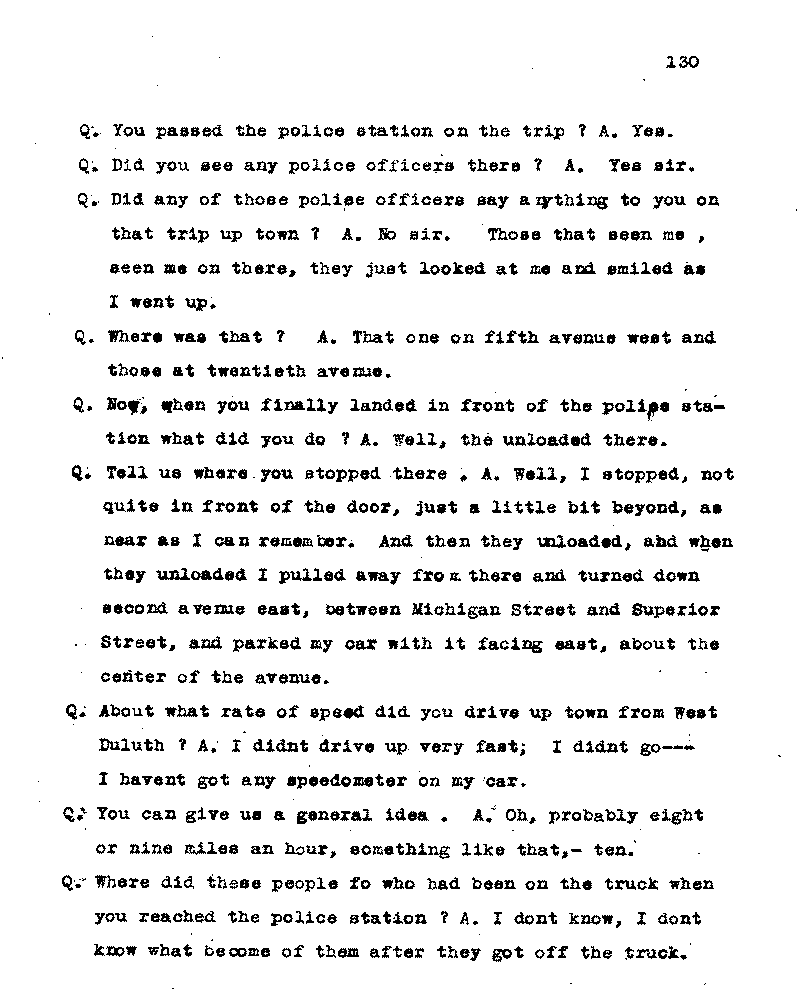
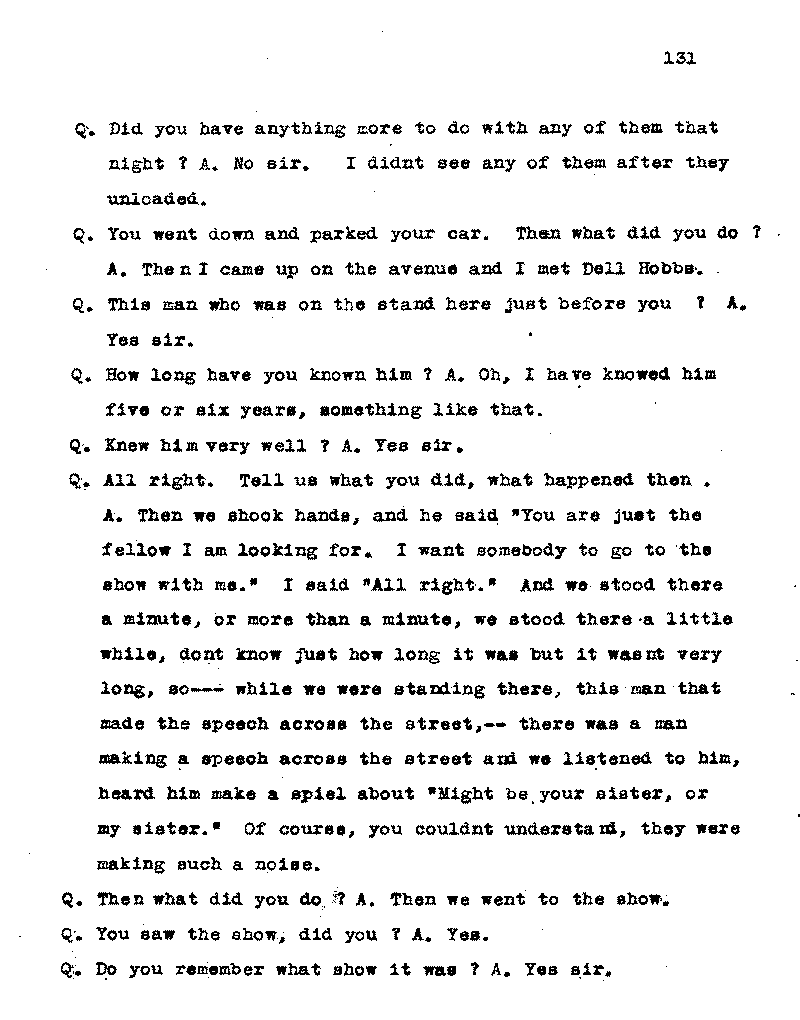
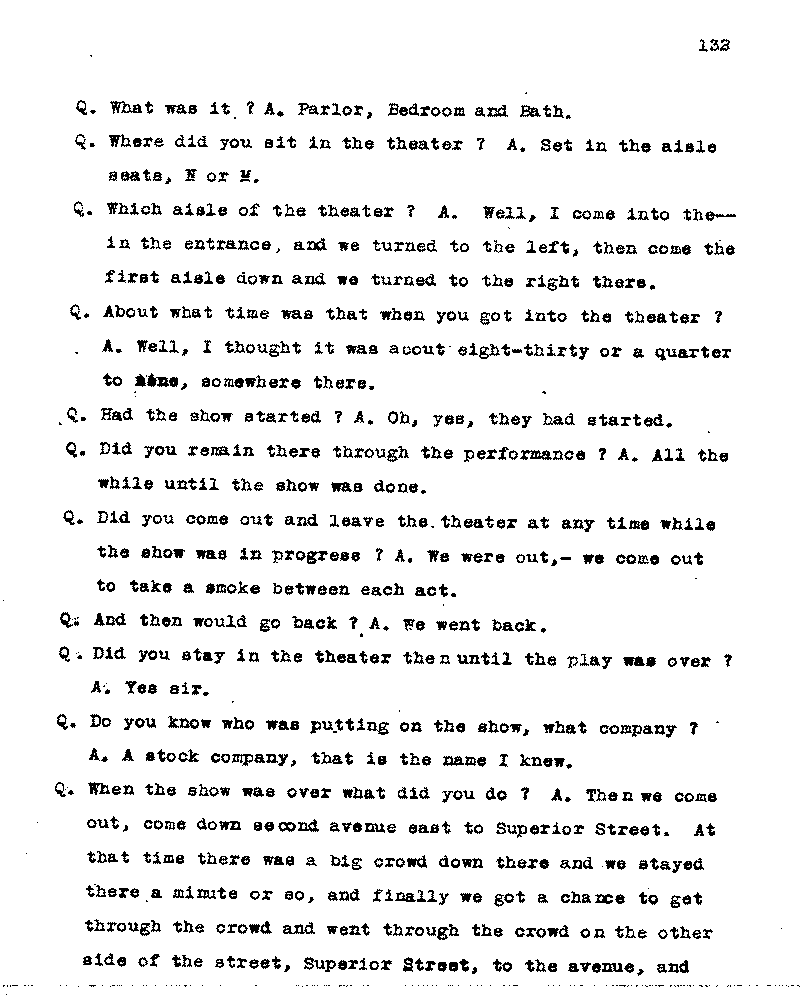
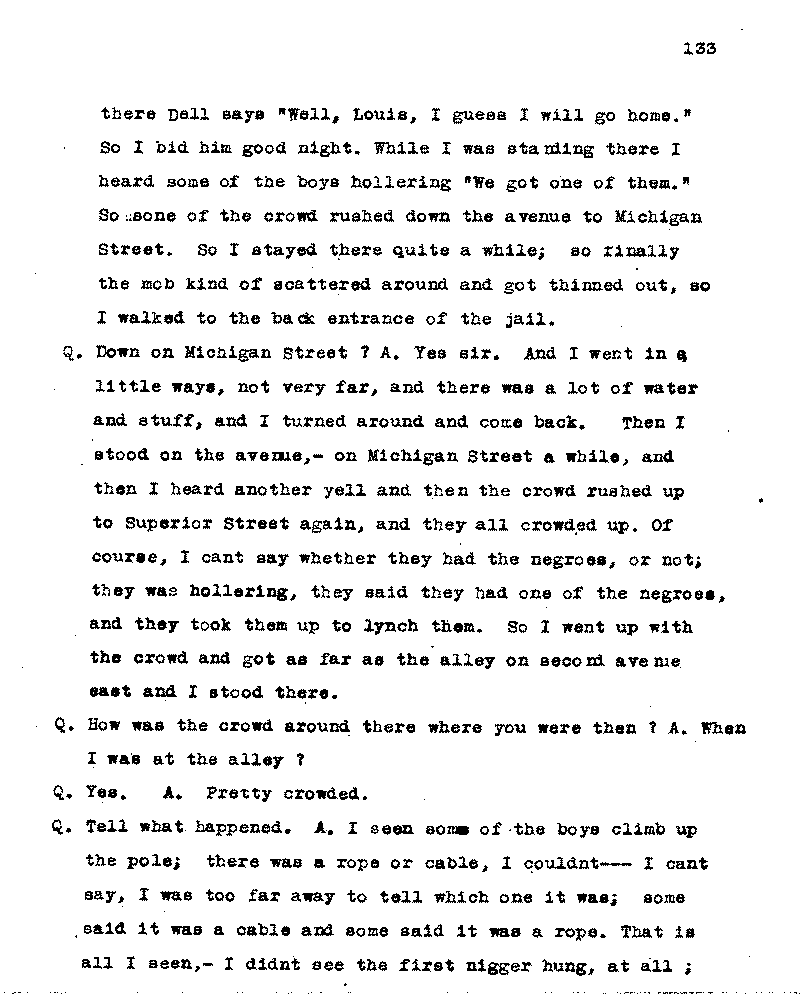
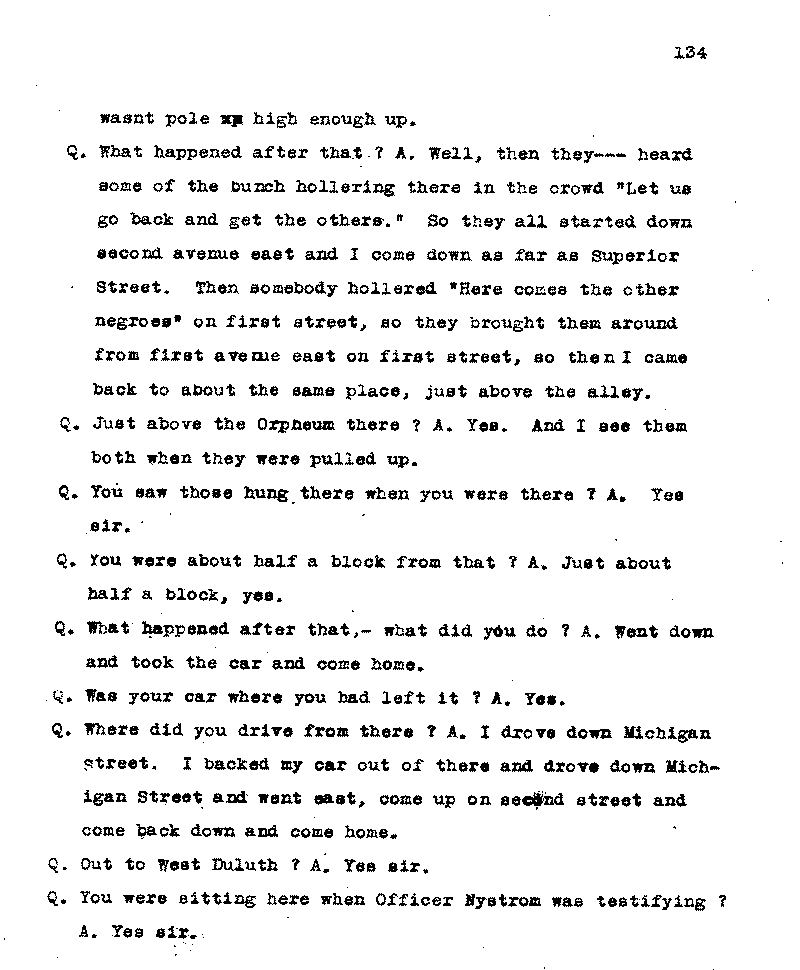
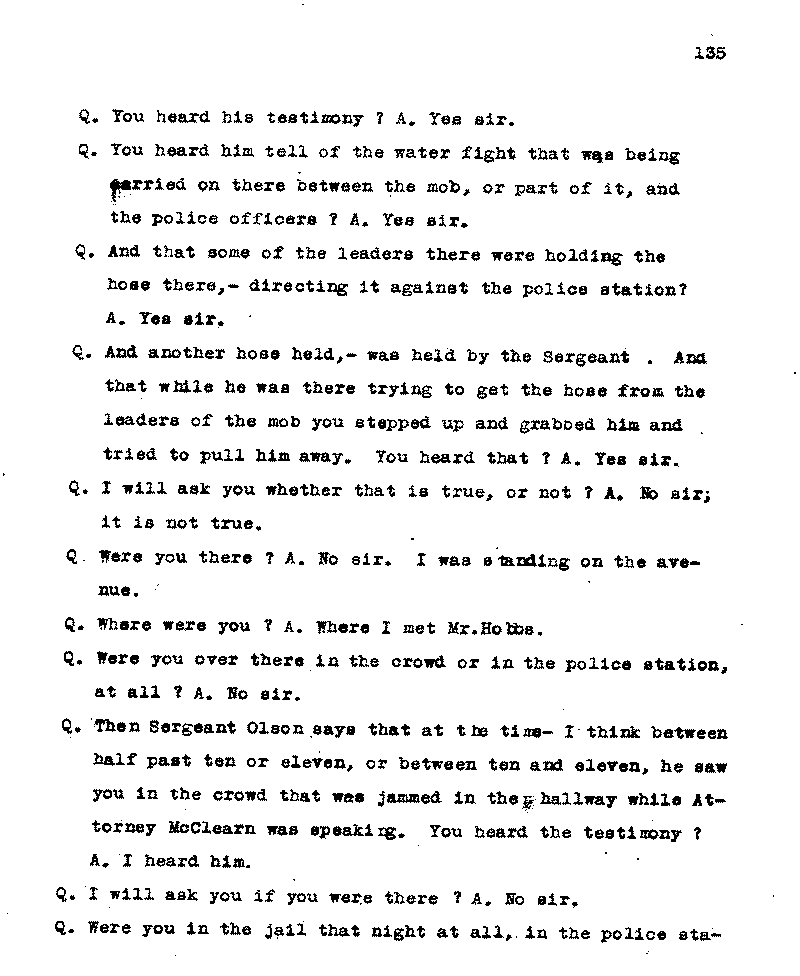
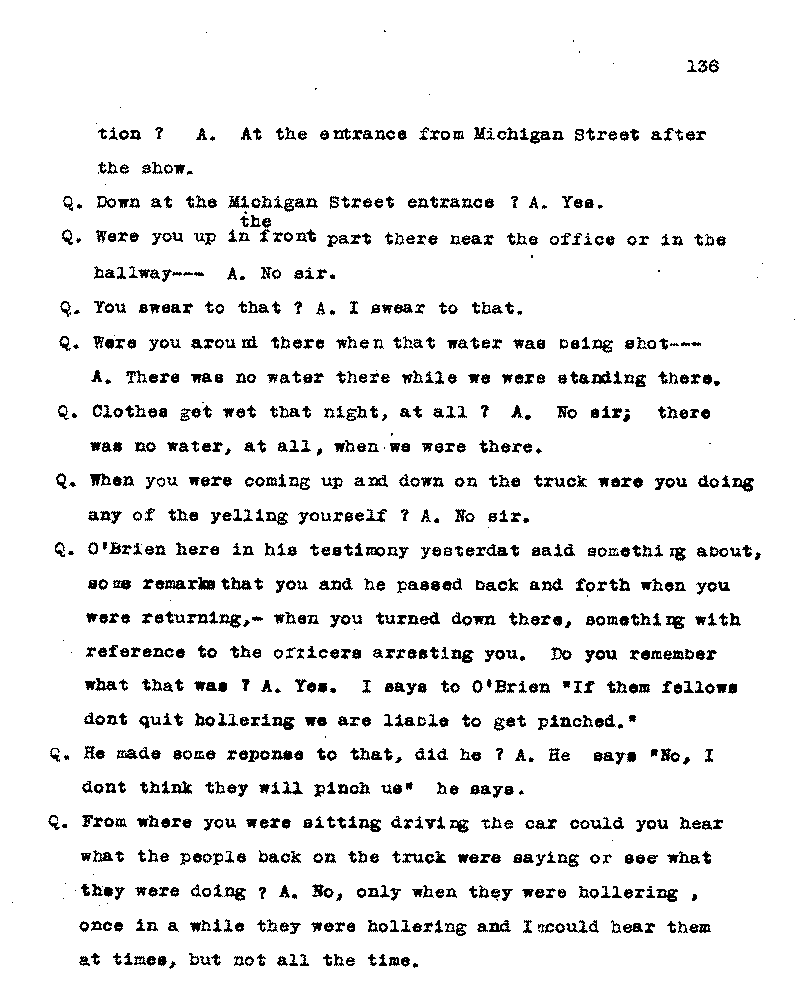
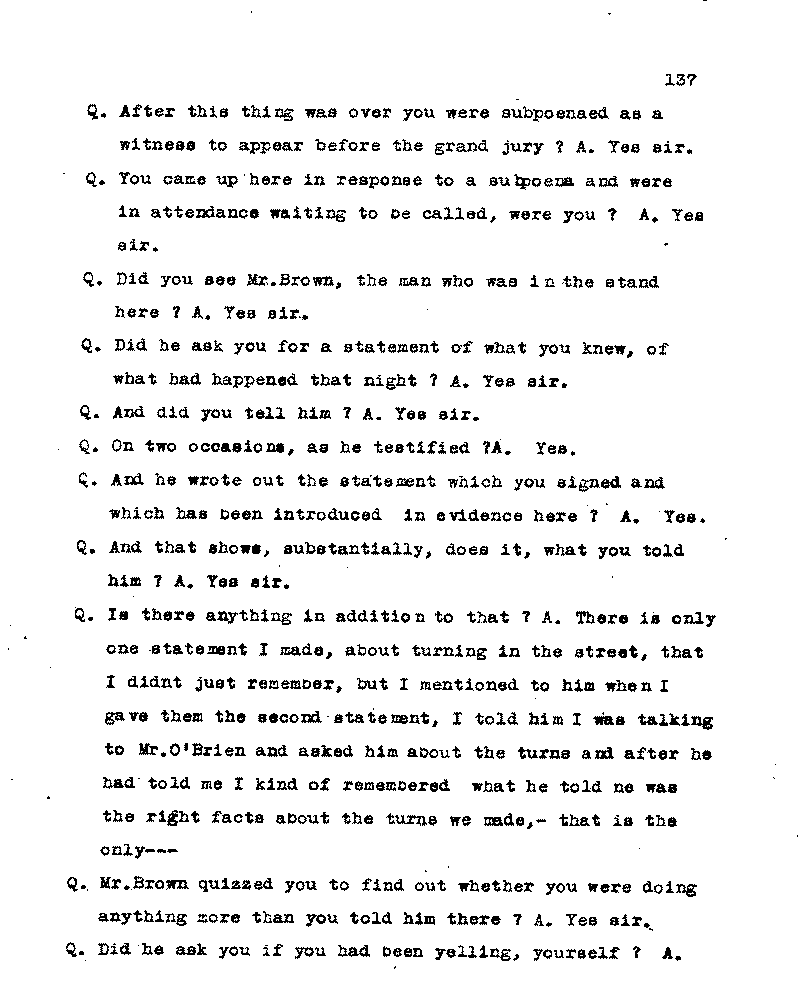
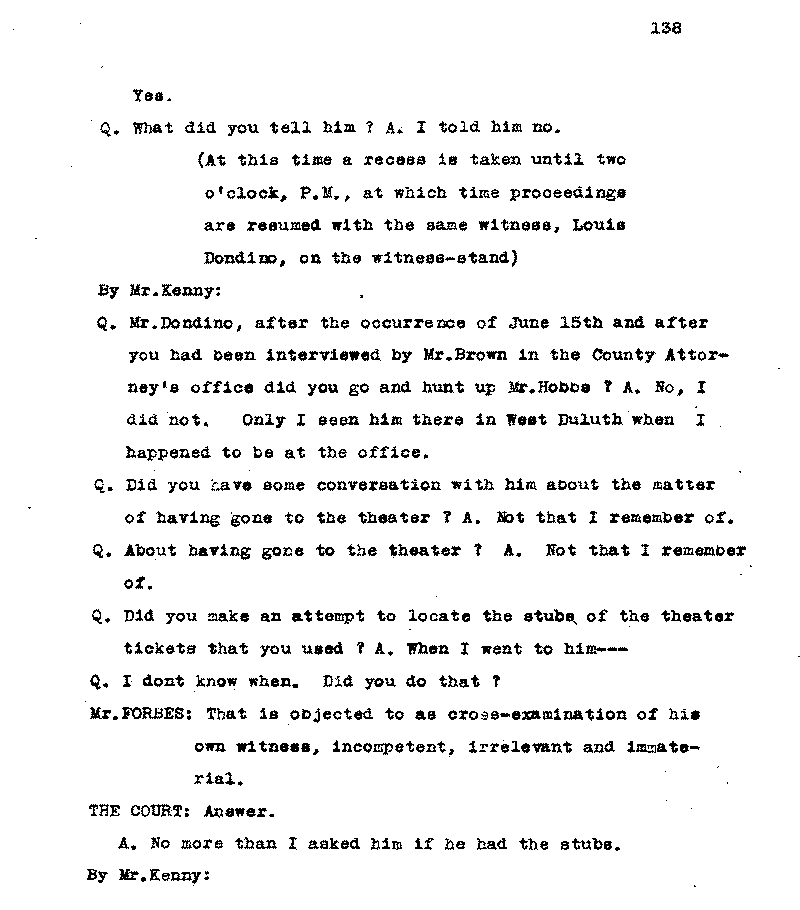
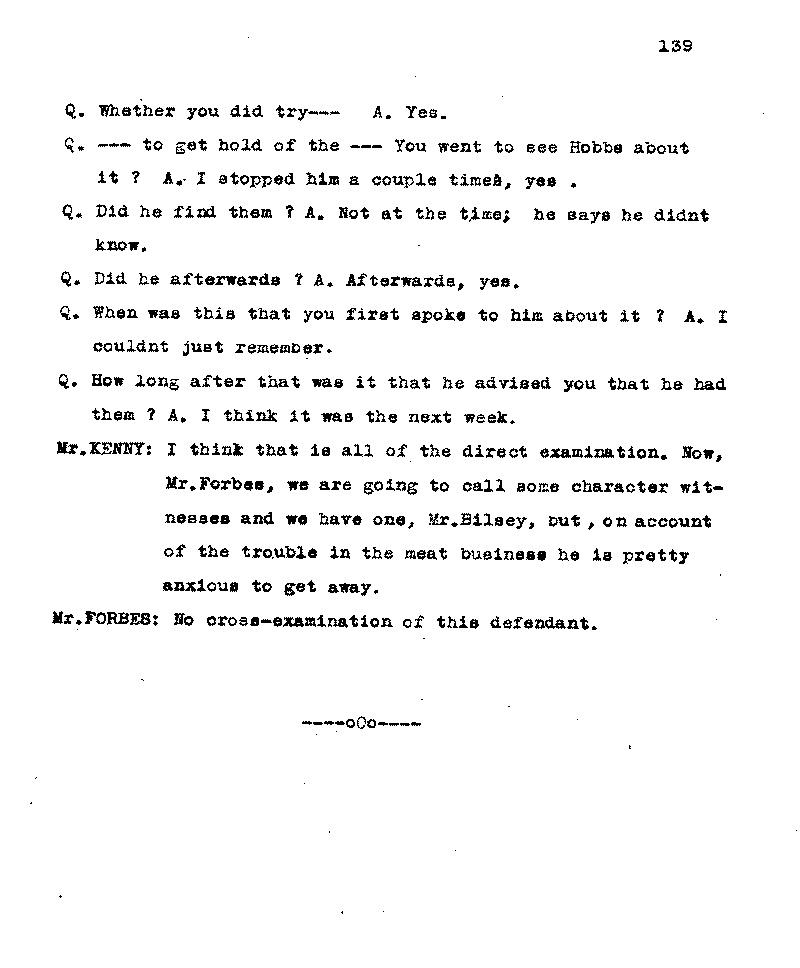
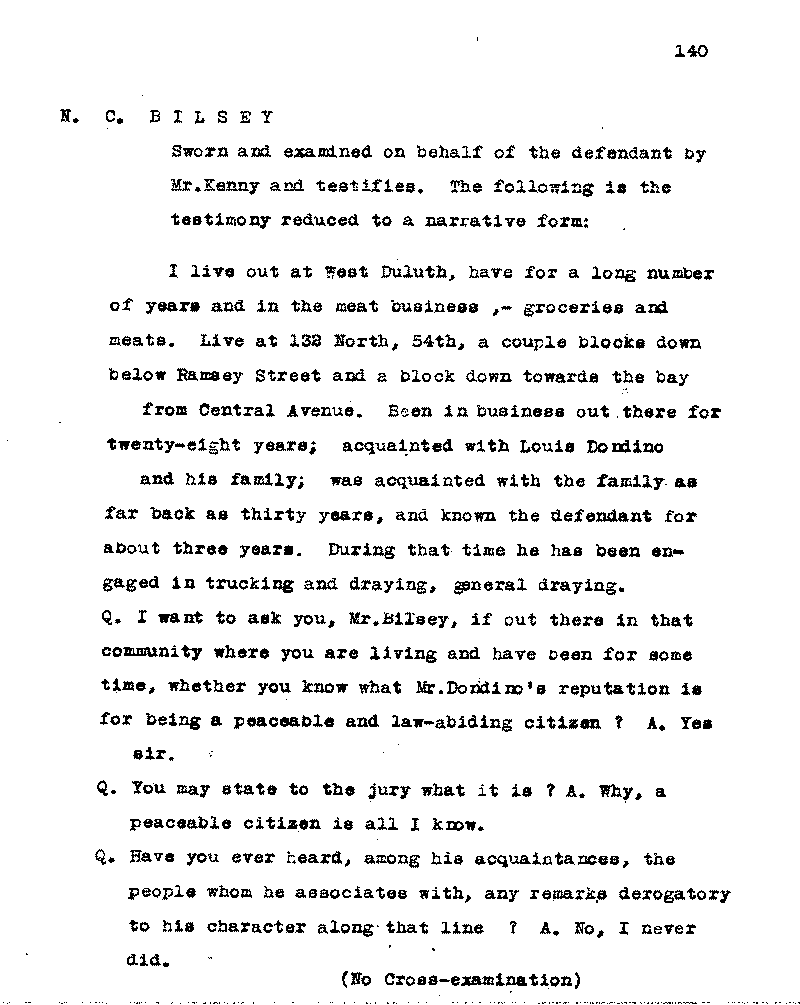
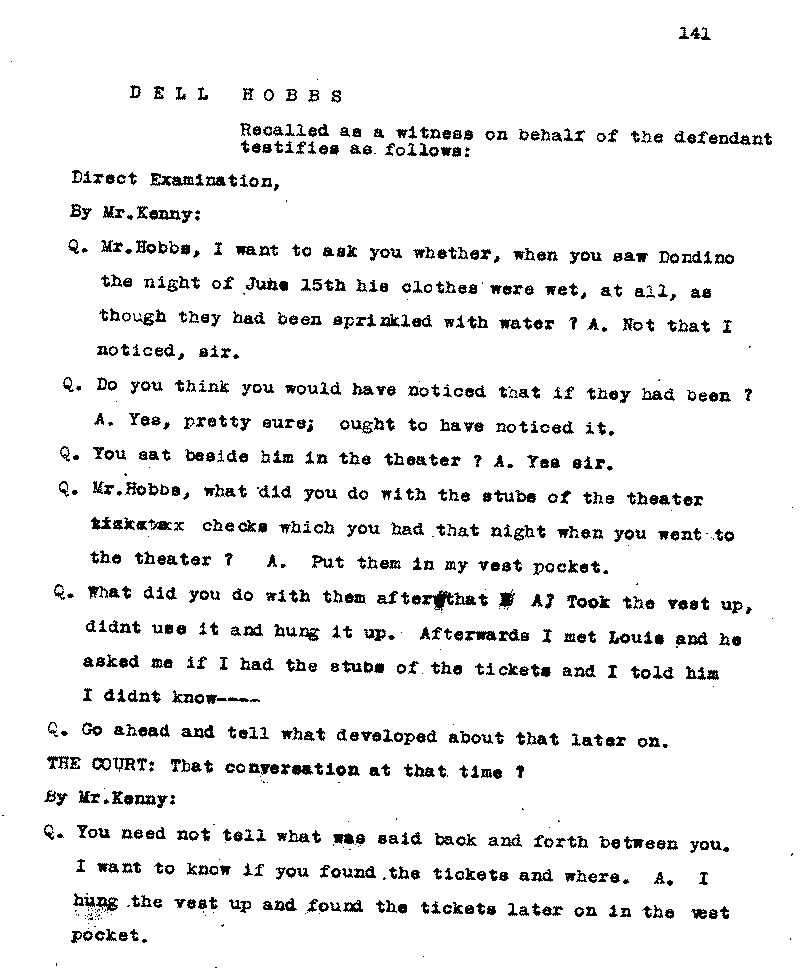
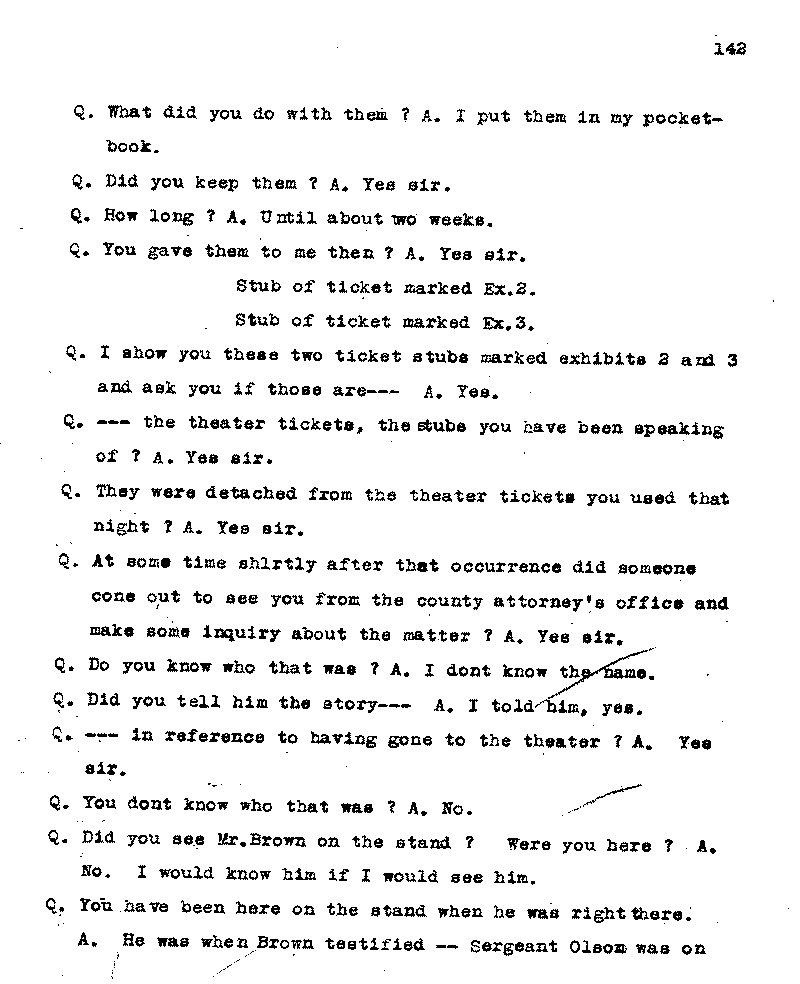
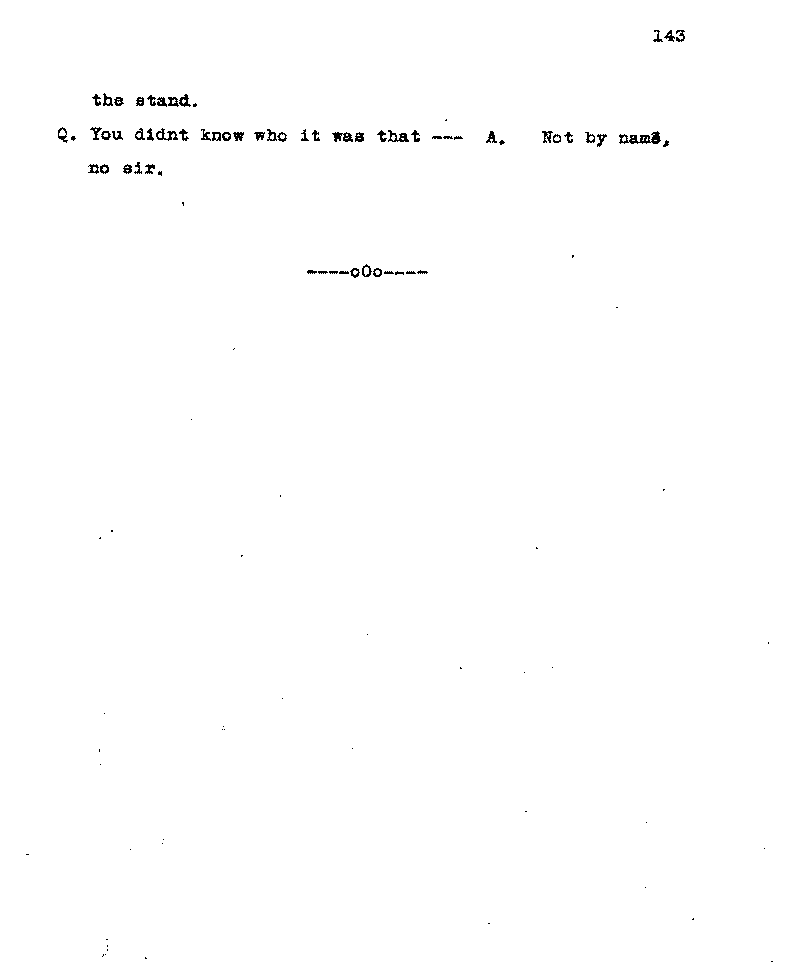
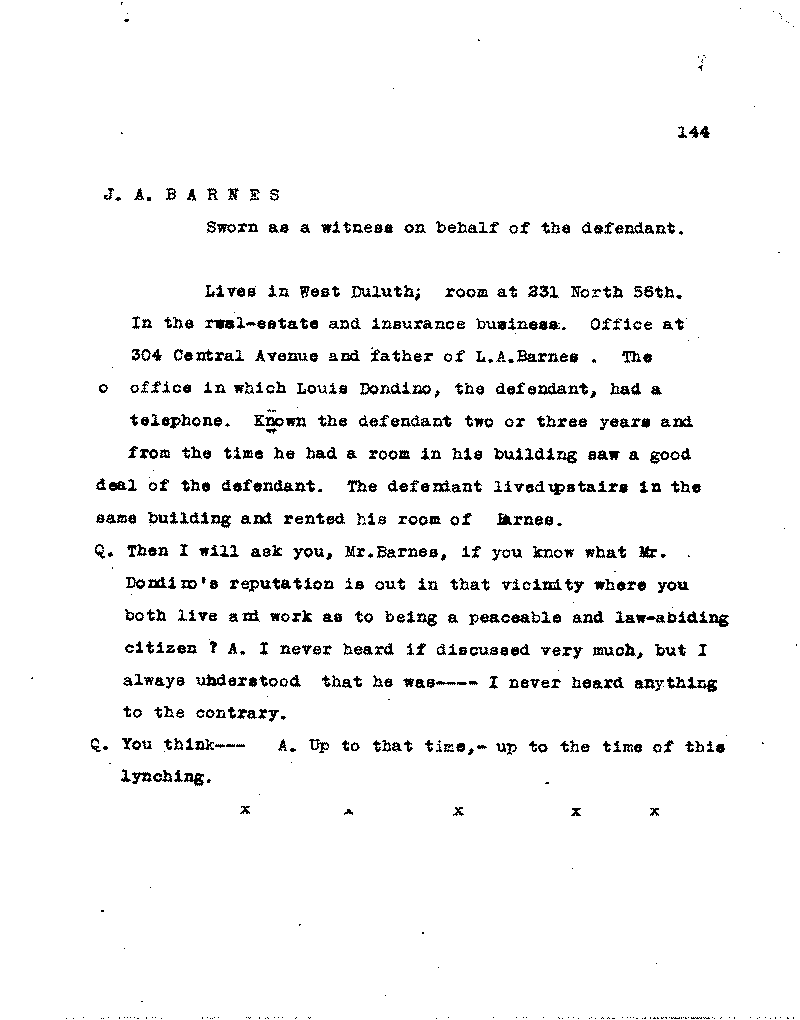
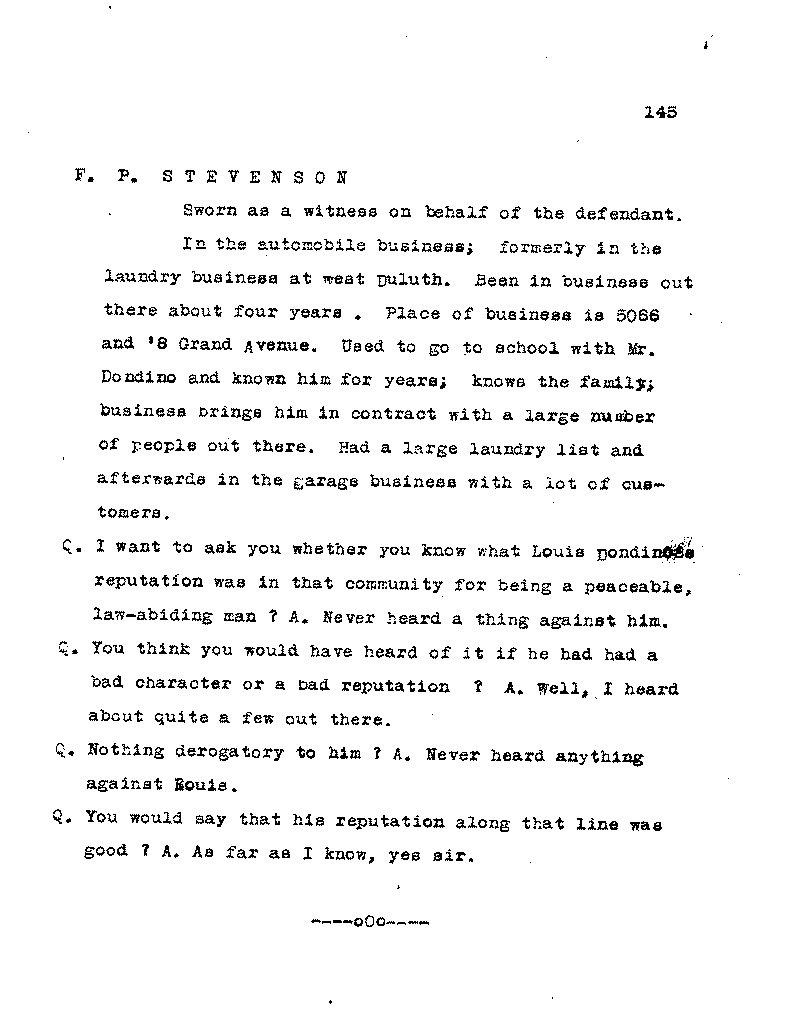
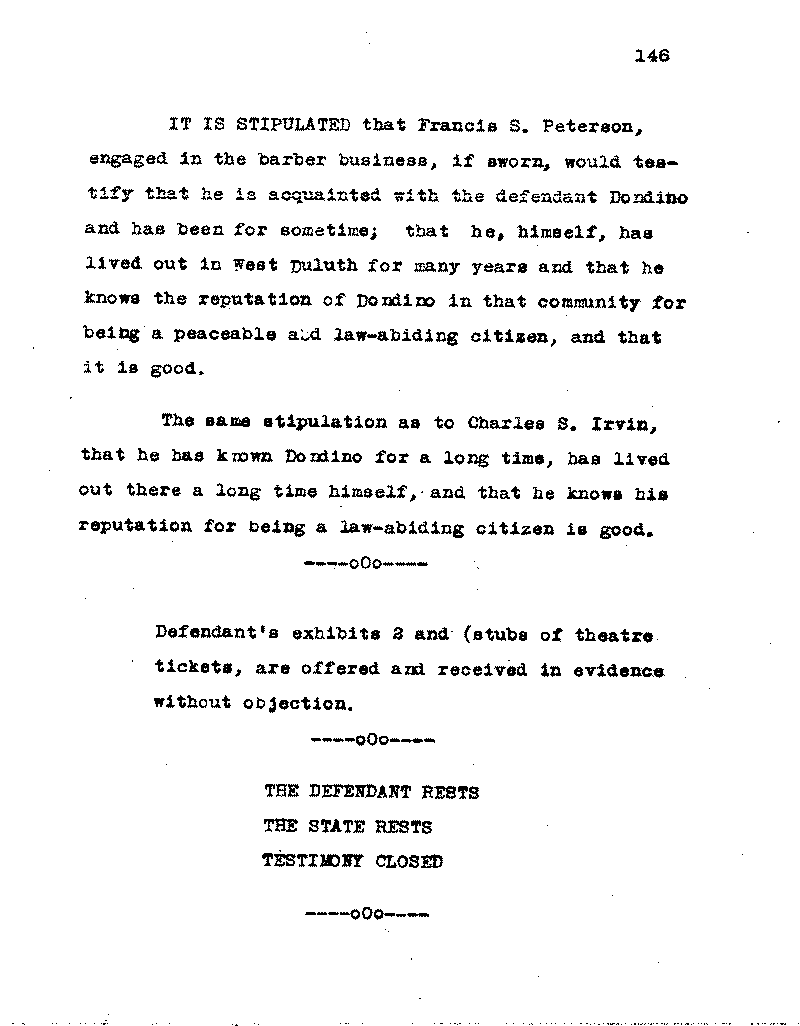
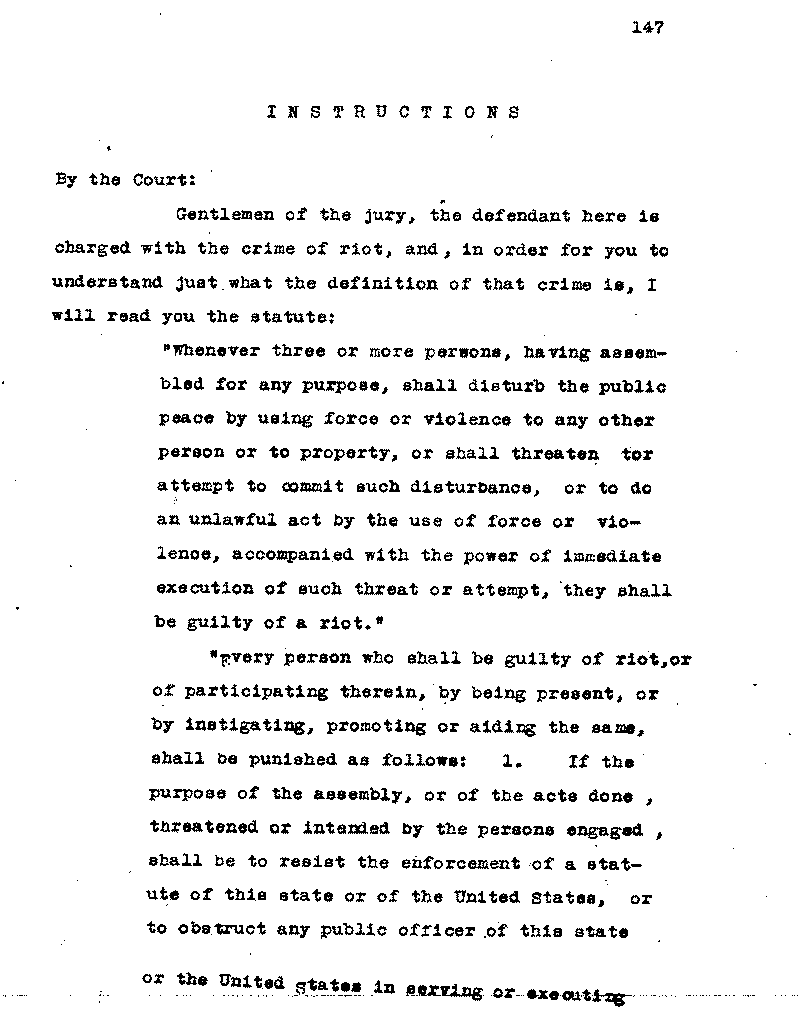
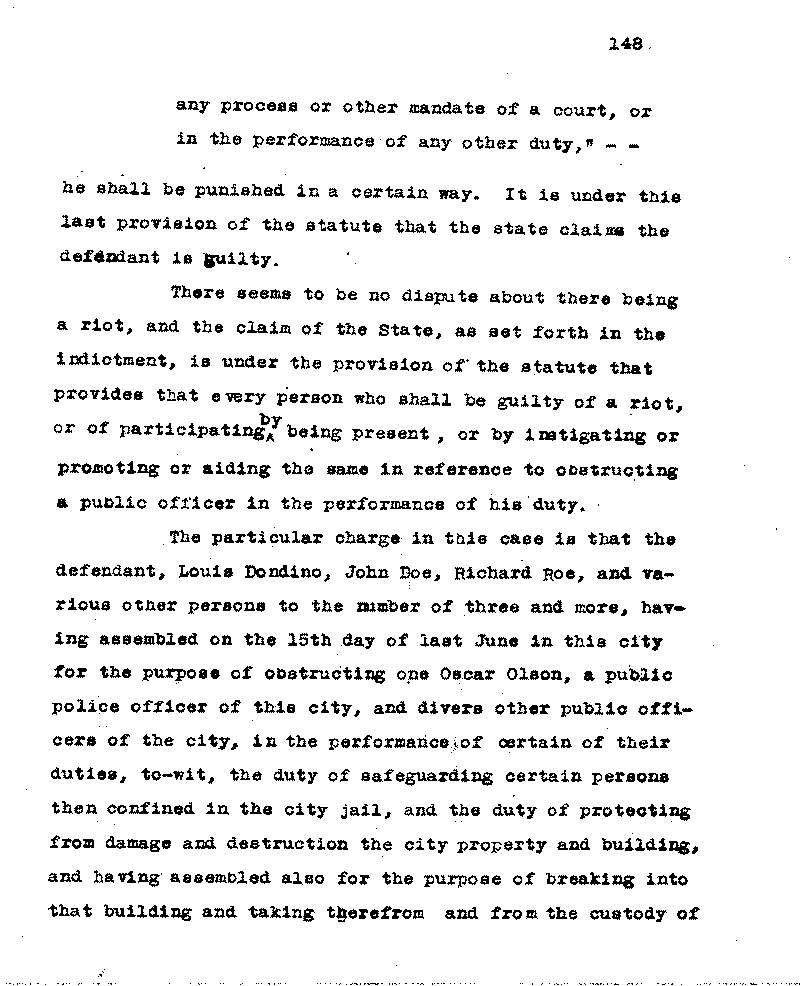
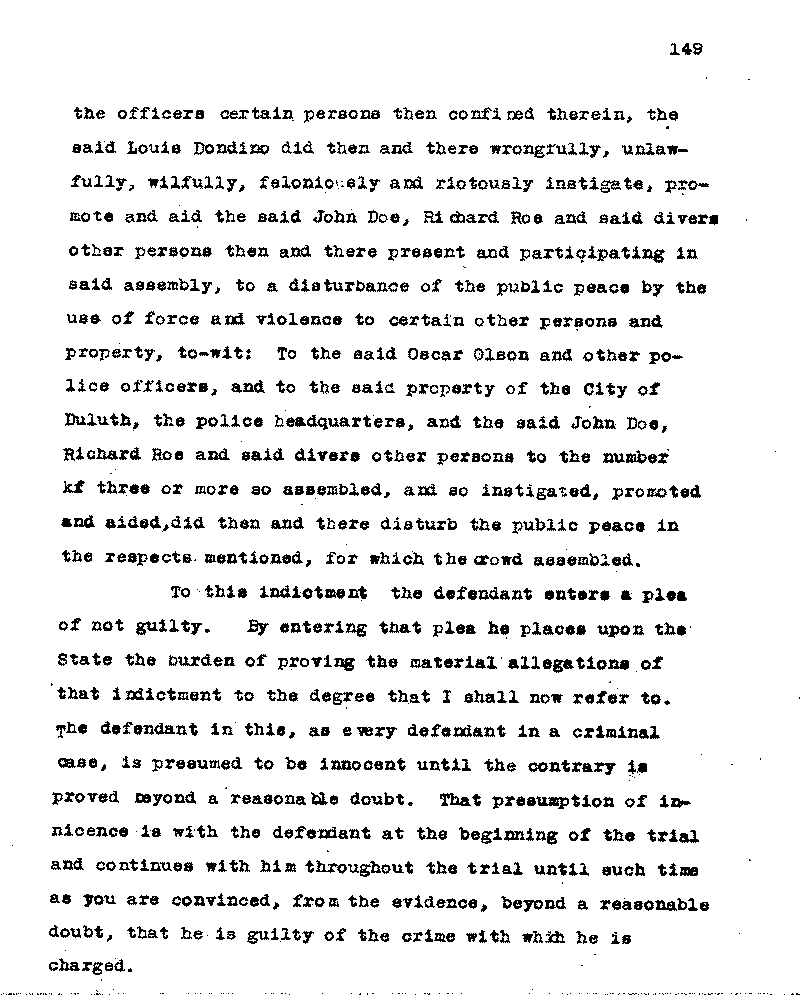
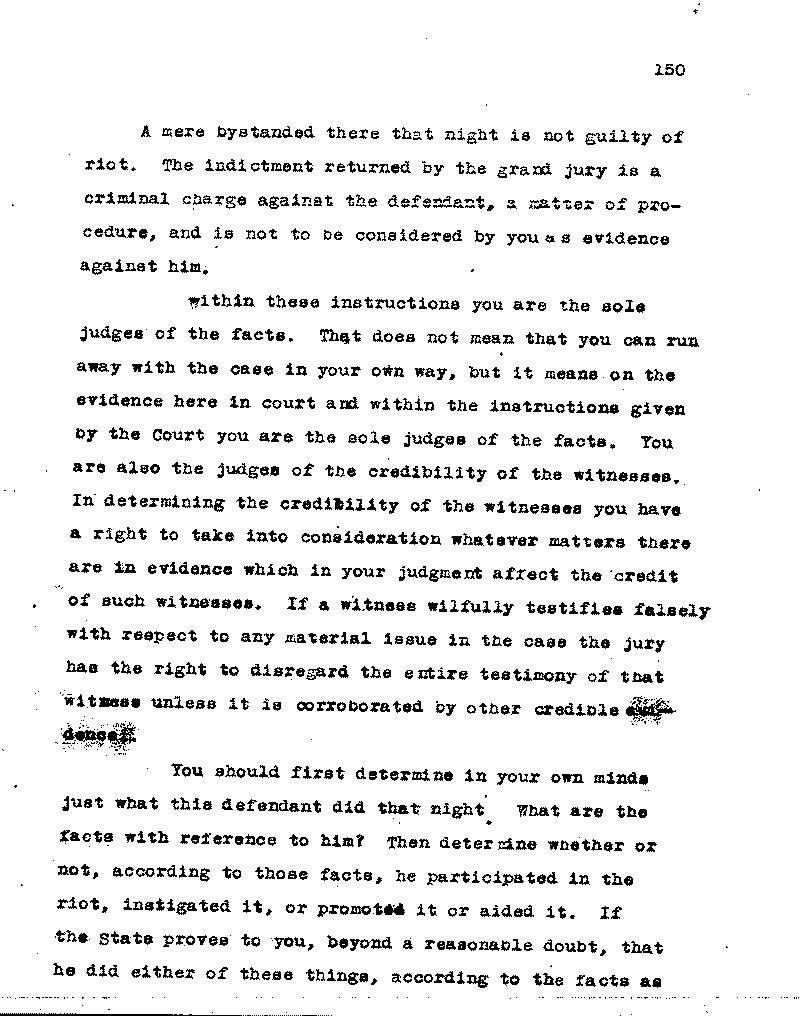
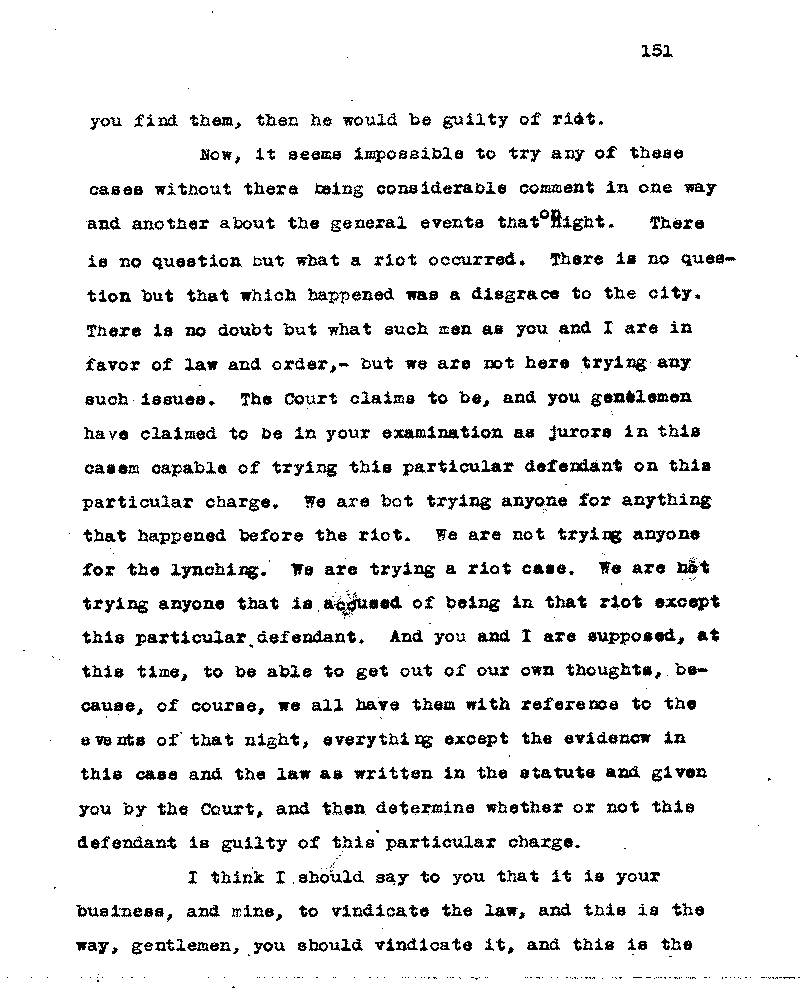
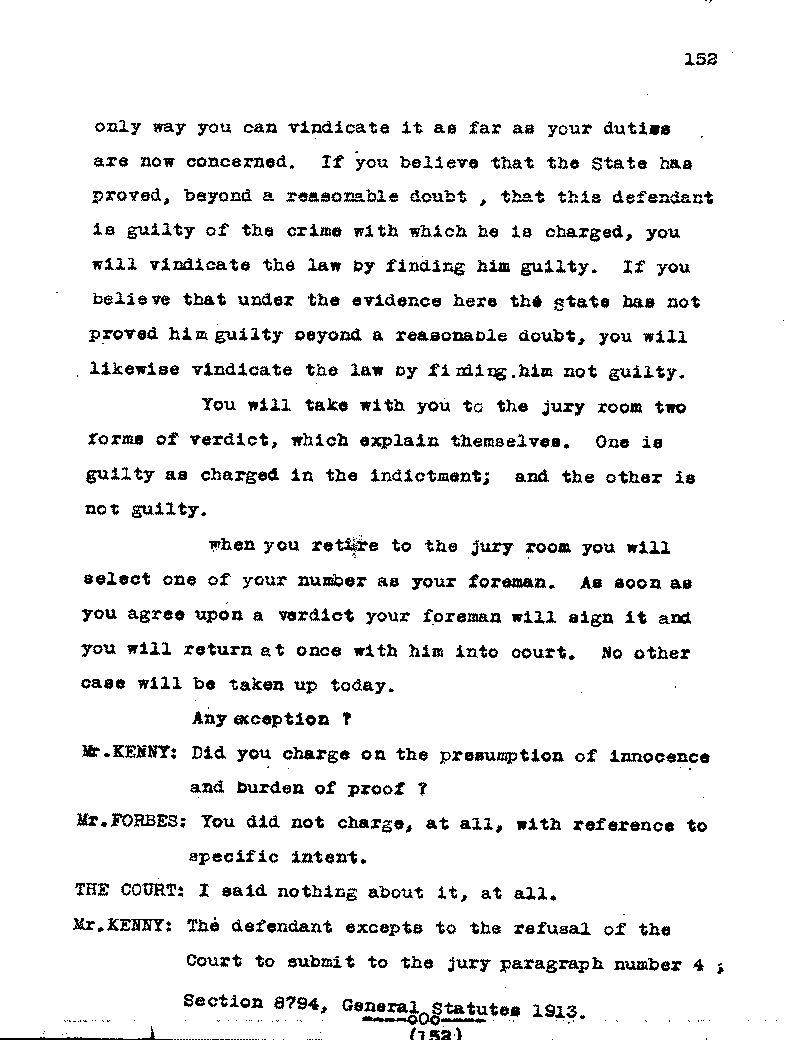
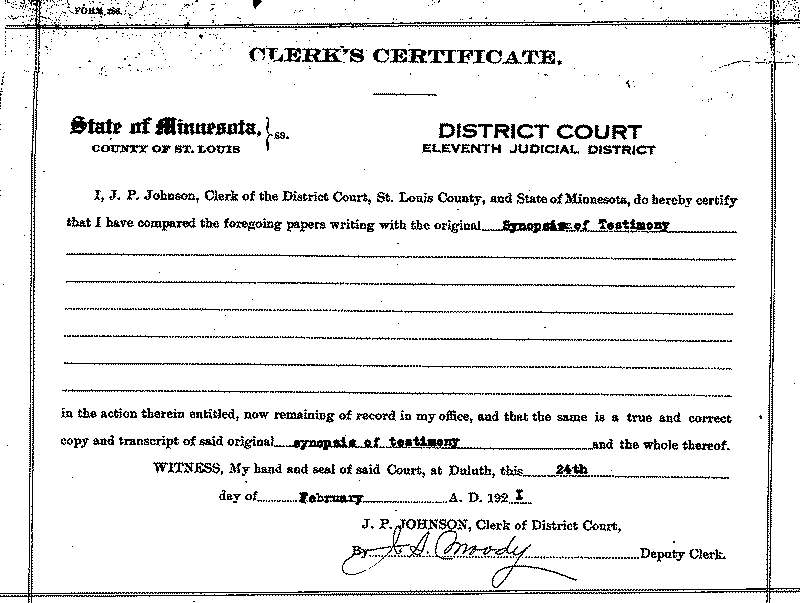
Image text
Mr. C. S. Reed,
Warden, State Prison,
Stillwater,
Minnesota.
Dear Sir:
I am enclosing certified copy of the
testimony in the case of Louis Dondino who was
taken to the State Prison some time ago and the
commitment did not
include the testimony.
Very truly yours,
J. P. JOHNSON,
Clerk
By
___________________
Deputy
JSM/J
Encl.
Read Febr. 18-22
I doubt the guilt of the
defendant
CJS.
STATE OF MINNESOTA
..........................................
Plaintiff,
vs.
LOUIS DONDINO
...................................................
Defendant
______________________________________________________________________
STATE OF MINNESOTA IN DISTRICT COURT
County of St. Louis
11th Judicial District
____________________________________________________
STATE OF MINNESOTA ...........................................
Plaintiff,
vs.
LOUIS DONDINO ....................................................
Defendant.
_______________________________________________________
This cause came
on for trial at the September 1920
term of the District Court of the Eleventh
Judicial District
of the State of Minnesota, held at the Court House in the
City of Duluth, within and for the County of St. Louis and State of Minnesota,
on Tuesday, September 7th, before
Honorable BERT FESLER,
Judge, and a jury.
A p p e a r a n c e s :
For the State, Mason M.
Forbes, Assistant County Attorney.
For the Defendant, E. J. Kenny.
____________________________________________________
H E R B E R T J. O ‘ B R I E N ,
Being first duly sworn
as a witness on behalf of
the state testifies as follows:
Direct
Examination,
By Mr.Forbes:
Q. Your name is Herbert J.O’Brien ? A.
Yes.
Q. What is your business, Mr.O’Brien ? A. I am in a
sanitarium.
Q. In the Npeming Sanitorium ? A. Yes sir.
Q. You are
there confined under the care of a physician for tuberculosis ? A. Yes
sir.
Q. How long have you been there ? A. Since the 19th of
July.
Q. Prior to that, ---- prior to going up there what was your business ? A.
I was working for the steel plant; machinist.
Q. You are,
Mr.O’Brien, here under indictment at the present time ? A. I am.
Q.
And awaiting trial under that indictment ? A. Yes sir.
Q. They sometimes
refer to you as Darby -- A. That is what they call me.
Q. On the 15th of June this year where were you living ? A. At
the Cody Hotel, west Duluth.
Q. That is on the corner of Ramsey Street and
Central Avenue out there ? A. Yes sir.
Q. You know this defendant, Louis
Dondino ? A. Yes.
Q. Did you see him on the evening of June
15th of this year ? A. Yes.
3
Q. Where was it, Mr.O’Brien, that you first saw him ? A. It was right, - pretty near on Bristol Street and Central Avenue.
- In West Duluth? A. Yes sir.
- He has a transfer truck ? A. Yes sir.
- That truck has on the back of it “City Transfer”? A. Yes, I think so.
- Will you tell the jury here just what kind of a truck it is, whether it has a cab on front ? A. Yes, it has got a cab in fromt and it has kind of a box in there and just two panes of glass, one on each side.
Q. How big a truck is it ? A. I couldn’t say whether it is a two-ton truck.
Q. About how big --- A. Just about eight feet, I guess.
Q. Are there stakes on it ? A. No; just a box of boards a- about twelve or fifteen inches high.
Q. Where was the defendant when you first saw him the night of June 15th ? A. Just going into the office on Central Avenue.
Q. His office near Bristol and Central ? A. Just about the second or third door from the corner.
Q. After he came out of the office do you know where he went? A. I think he went across the street some place.
Q. Where was the truck at that time ? A. Standing in front of his office.
4
Q. Did he subsequently return to the truck ? A. How ?
Q. Did he come
back to the truck again that night ? A.Back to west Duluth ?
Q. I mean after
he had gone across the street. A. Yes, he went right back to the truck.
Q.
That still over there in front of his place of business? A. Yes sir.
Q. After he came back where the truck was standing what did he do ? A. He
got right into the truck and then he went across the street, and I asked him how
the chances will be uptown, and he said “All right” and I got into
the truck, and as he was pulling out there was four or five fellows jumped on
behind.
Q. You got into the cab of the truck ? A. Yes sir.
Q. What is
that, a left-hand drive car or a right-hand drive ? A. It is left.
Q. You
were sitting on the right hand side ? A. Yes sir.
Q. Anyone else in the cab
with you ? A. No.
Q. How many would you say there were of these men that got on the back of the truck ? A. I couldn’t say, but I should judge probably five or six, anyway.
Q. Do you remember whether they sat down in the truck or stood up ? A. No;
I couldn’t see back, at all.
Q. As I remember it, you don’t
remember who they were ? A. No
sir.
5
Q. Or paid no attention to who was on the truck ? A. No, I didnt pay any attention.
Q. When you left Duluth, - when you left West Duluth at Bristol and Central Avenue where did the defendant drive the truck ? A. Started down Central Avenue, then went out to Grand, up near thirtieth avenue and down on Superior street.
Q. And then when you got to Superior street did you go east towards Duluth ?
A. To third avenue east.
Q. To third avenue east ? A. Yes.
Q. Was the same crowd on the truck or were there more getting on ? A. There was more getting on.
Q. When you got to third avenue east what about the crowd,- whether there was a crowd, or not ? A. Yes, a pretty good crowd.
Q. Did you stop on the way up, at all ? A. No, I dont think so. He kind of slowed up at either twentieth of twenty-first avenue, where the street car goes down there.
Q. Do you know whether any more fellows got on at that time ? A. I couldnt say; I think some got on around eighteenth or nineteenth avenue,-- I dont know whether anybody got on or not.
Q. Just tell us what the crowd in the truck were doing. Were they calling
out, yelling ? A. Not very much. They didnt do much until they got to
twenty-first avenue, until they saw two policemen standing there. I don’t
know whether they done it for a joke, or not, but they hollered at
the
6
police.
Q. What did they say ? A. I dont know, but they did yell at him. I dont know exactly what they said.
Q. When then got up town, on the way up to third avenue east did you hear any of them calling out? A. No, not until—the most was when they just went past the police station.
Q. When you got to third avenue east where did you go ? A. Went back to seventh avenue west.
Q. Was there a crowd still on the truck ? A. Yes sir.
Q. When you got to seventh avenue west where did you go ? A. Turned around and went up to Lake Avenue.
Q. Up to Lake Avenue ? A. Yes.
Q. When you got to Lake avenue where did you go ? A. Went to second avenue west.
Q. Turned around west,- west,- to second avenue west ? A. Yes sir.
Q. And from second avenue west where did you go ? A. Went right back to the City Hall and stopped right there and there they all got off.
Q. That is, they were driving up and down Superior Street all this time ? A. Yes sir.
Q. Do you remember anything that anybody - - any of the men on the truck were calling out ? A. No.
Q. The crowd got up to where,- in front of the City Hall ? A. Yes sir.
Q. Where did they place the truck ? A. I dont just remember
7
whether they took it away or what was done with it. I went across the street about three or four minutes; after I went across the street to the drug-store I bought a couple of cigars. I was going to give the driver one, and he was gone. I didnt see him any more on the truck.
- You didnt see him any more on the truck that night ? A. No sir.
Q. Sometime during the riot you had some conversation with the defendant ? A. No.
Q. I mean in the cab. A. Oh, when we turned around and went past the police station and coming back around, I think it was that time he says to me “I wonder if there is any danger of us getting pinched”? Then I says “I don’t know.” I says “It is a wonder they didn’t pinch us when we went by there.” And he said “I wouldn’t like to get pinched because I havegot to be to work in the morning.”
Q. That is all, Mr.O”Brien, that you know about the defendant and
where he was that night ? A. That is all I know.
CROSS EXAMINATION,
By
Mr. Kenny:
Q: What time was it, Mr.O'Brien, when you and Dondino started out from West
Duluth ? A. It would be about a quarter or twenty minutes after seven.
Q.
And there were four or five men jumped on shortly
after-
8
wards ? A. Yes sir.
Q. You didnt know who they were ? A. No, I didnt know them.
Q. Didnt remember you had ever seen any of them before ? A. No.
Q. When you got up to the West End, about twentieth or twenty-first avenue, you said something about passing some policemen. A. Yes, two policemen.
Q. Do you remember where they were ? A. I think they were standing on the lower side of twenty-first avenue west, on the west corner.
Q. Of Superior street ? A. Yes.
Q. The lower west corner of twenty-first avenue west ? A. Yes, twentieth avenue.
Q. Twentieth avenue ? A. Yes.
Q. Do you know who they were ? A. Yes.
Q. What officer ? A. One was Con Walker; and the other was Fred Malon.
Q. Did they, when the came to these officers or shortly after they passed them,- someone on the truck said something or addressed some remark to the policemen ? A. Yes.
Q. How far away from the policemen were they ? A. When they passed, as close as from here to the table. The truck passed on the same side they were on.
Q. The truck passed these two policemen within a distance of about 15 or 20 feet from them ? A. Yes.
9
Q. Was it about the time the truck was passing the policemen that those on it made these remarks you speak about ? A. Yes.
Q. Do you know what they said ? A. No.
Q. What did the policemen do ? A. They only just laughed ; smiled.
Q. They didnt say anything--- A. No.
Q. --- to yourself or Dondino A? A. No.
Q. Or to any of those on the truck ? A. No sir; not that I heard.
Q. You were on the lower side, the right hand side ? A. Yes.
Q. Moving towards the east ? A. Yes sir.
Q. Then you passed,- you were nearer to the policemen than Dondino ? A. Yes, I was closer to them than the driver.
Q. You did not hear that they said anything of any kind to either you or anyone on the truck ? A. No.
Q. Didnt tell the men on the truck to tell them anything they were doing ? A. Not that I heard, no.
Q. Then you continued on east until you got to third avenue east ? A. Yes.
Q. Did you pass in front of the police station there --- did you pass any other policemen, other than those you have spoken about, until you got to the police station ? A. Yes, there was a couple along the bowery there.
Q. You mean that part of the street down between--- A. Around
10
fifth avenue and sixth.
Q. Fifth avenue west, along in there ? A. Yes.
Q. I suppose you drove up on the lower side or the right-hand side of Superior street ? A. Yes.
Q. Were those two policemen on the bowery on the lower side of the street ? A. Yes.
Q. Did the truck pass some distance from them ? A. Yes.
Q. About the same as itpassed the others out at the west End? A. Yes sir.
Q. Do you know who those policemen were ? A. No, I do not.
Q. Were they standing together, or at different places down the street ? A. Oh, different places.
Q. About how far apart ? A. One was somewhere around sixth; I didnt pay much,- particular attention to it,but theother fellow was down around fifth, on the corner.
Q. Did the policemen say anything to anyone on the truck as you passed them ? A. No, not that I know.
Q. Did anyone on the truck say anything to the policemen ? A. Not then, I dont think, no,
Q. About that time were they saying anything else—do you remember ? A. They were just going along,- but not loud enough that you could hear a thing said.
Q. Not loud enough for--- A. That you could hear what they were saying inside, in the seat, because it was all boxed in.
11
- You could not hear or understand what the men on the back of the truck were saying ? A. No.
Q. If they had been yelling loudly enough to have made themselves heard by those along the street you would have known that, wouldnt you ? A. Oh, yes, but you couldnt understand what they were saying from the noise of the truck.
Q. Whether it was simply talk they were carrying on among themselves, or whether they were speaking in a loud manner to those along the street,-- which was it ?
A. Well, they were talking pretty loud.
Q. Were they just talking to the people along the street or among themselves ? A. Among themselves.
Q. Among themselves ? A. Yes.
Q. And so you continued on down east on Superior Street ? A. Yes.
Q. And came and passed the police station ? A. Yes.
Q. You were still on the lower side of Superior street ? A. Yes.
Q. The same side the police station is on ? A. Yes.
Q. Did you look at your watch any time when you were coming up town ? A. No, I did not.
Q. Have you any way of fixing the time it was when you passed the police station the first time up ? A. No; I couldnt just say what time it was.
Q. Do you have in mind, in a general way, the speed at which
12
you drove from west Duluth ? Without knowing exactly you know about what speed the car was going ? A. I should judge it was going about,-- probably nine or ten miles an hour.
Q. Nine or ten miles an hour ? A. Yes; may be more than that.
Q. Describe what the conditions were at the police station when you passed on your first trip ? A. Quite a bunch on the upper side of the street; there was quite a bumch of people on the upper side of the street; I dont remember now whether there was any policemen in front, or not, but there was quite a bunch of policemen inside looking out. Id I dont remember wrong, I think there were a couple or three policement outside, but not over two or three.
Q. You are sure there were a number inside ? A. Yes.
Q. But you couldn’t see through the windows ? A. No.
Q. You think there were a couple outside ? A. Yes.
Q. But you are not sure ? A. Yes, there was a couple outside the first time we passed.
Q. When you went past that first time did any police officer say anythkng to you or anyone on the truck ? A. No.
Q. As far as you know they did not pay any attention to the truck, at all ? A. No, I dont
think they did, or I would have seen it.
Q. Was there any obstruction or anything there that would prevent thoseofficers fromseeing the truck with the people
13
on it ? A. No. They ought to see us.
Q. Was this crowd you spoke of on the upper side of Superior street the only hostile crowd that you had encountered coming along Superior street ? A. Quite a bunch all along the street down on Lake avenue, qyite a crowd up along first avenue east.
Q. You went down and turned at third avenue,- that is a block east of the police station ? A. Yes.
Q. And the City Hall ? A. City Hall.
Q. Turned around there and started traveling back ? A. Yes sir.
Q. On the upper side of Superior street, I presume ? A. Yes sir.
Q. And traveled west to 8th avenue ? A. Either 7th or 8th; I dont just remember.
Q. Then you made another turn and went up on the lower side of Superior street to Lake avenue ? A. To Lake Avenue.
Q. These two officers who were down here on the bowery, I take it from your testimony they were east of eighth avenue when you came up the first time ? (No answer)
Q. That is what you referred to as the bowery, the district took in eighth or seventh avenue ? A. West.
Q. That would be a couple blocks east of eighth avenue ? A. Yes sir.
Q. Now, then, after you had made the turn at eighth avenue and
14
were returning east again the second time on Superior street after you had passed--- A. No, I dont remember the second time.
Q. Do you remember whether there was any other policeman along that time when you came up to Lake Avenue ? A. No. I think the second time I went down there was one down around--- some place around first avenue east, or down there by Giddings’ store.
Q. You passed third avenue west, of course, down there ? A. Yes.
Q. Do you remember seeing any policeman there ? A. No.
Q. Do you know whether there was any there, or not,- any policeman ? A. I dont know; I didnt take any notice at third avenue.
Q. It may have been possible one may have been there and you did not see him ? A. Yes, might be.
Q. Then the truck turned at Lake Avenue and went west again-- A. To second avenue west.
Q. That would be just two blocks ? A. Yes.
Q. On the upper side of Superior street ? A. Yes.
Q. And then turned and went east to the police station ? A. Yes sir.
Q. Where did Dondino, the drive of the truck go, what place there ? A. About--- just right about a little past the police station, in front of the City Hall.
Q. What did the crowd on the truck do when he stopped ? A. I
15
don’t know. When I got out they were mostly all off, walking around; down in front of the police station there was the policemen there in front of the police station door, six policemen there in front of the police station door.
Q. There were six policemen standing in the door ? A. Yes sir.
Q. And
Dondino drove up with the truck with these people on it ? A. Yes sir.
Q. You didnt pay particular attention to where those went who had been on the truck ? A. No sir.
Q. Did they remain together in a body--- A. No.
Q. --- or did they separate ? A. Yes, separated.
Q. Yougot out ? A. Yes.
Q. On the right hand side of the truck ? A. Yes sir.
Q. Where did you go ? A. I went down in front of the station, to one of the policemen I know there by the name of Officer Isaacson.
Q. Did you speak to him ? A. Yes.
Q. He spoke to you ? A. Well, I think so, yes.
Q. Probably nodded to you ? A. Maybe.
Q. Youknew him before ? A. Yes.
Q. Did he say anything--- A. No.
Q. ---to you about the crowd coming up on the truck ? A. Not a word.
Q. Where did you go then ? A. I went across the street in the
16
cigar store.
Q. From the police station ? A. Yes.
Q. Bought a couple cigars and went back and give one to Dondino ? A. Yes.
Q. And he was gone ? A. He was gone.
Q. Was the truck there ? A. No; the truck was gone, and him.
Q. Do you know where he went ? Did you see him drive off ? A. No. I didnt see him after I gout out of the truck.
Q. Never saw him any more that night ? A. No.
Q. You went back to where the truck had been ? A. Yes.
Q. And that was almost in front of the police station ? A. Well, it was a littlepast the police station , almost in front of the City Hall.
Q. There was no hose attached to any hydrant being used at that time ? A. No, not then.
Q. You say that you and Dondino passed some remarks to each other with reference to the danger of being arrested by the police. A. Yes. He just passed the remark, he was afraid of getting arrested. He said "I wonder if there would be any danger."
Q. "I wonder if there wouldbe any danger of us being arrested?": A. Yes sir.
Q. I dont suppose, Mr.O'Brien, you can remember the exact words he used ?
A. How ?
Q. I dont suppose you can remember the exact words he used ?
17
A. No.
Q. But it was something to that effect ? A. Yes.
Q. Do you remember what you told him in reply ? A. I said "I dont know. We might, and we may not."
Q. Didnt you say something about you didnt think so as you had already passd some policemen and they didnt say anything ? A. Yes; when we passed the station twice and they didnt do anything, why---
Q. You didnt think they would? A. I didnt think they would, yes.
Q. And youtold him something to that effect, didnt you ? A. Yes.
Q. When he spoke to you about it ? A. Yes.
Q. That is, he intimated to you that if the policemen were opposed to that he would
quit ? A. Yes.
Mr.FORBES: That is objected to as assuming facts not in evidence and suggestive.
THE COURT: Over-ruled.
By Mr. Kenny:
Q. Was there any disturbance there at the police station at the time Dondino stopped his truck and the people got off ? A. No.
Q. Did anyone-- A. Just as quiet as anything.
Q. What ? A. It was quiet; there was nothing done; there was nothing doing, at all, until they started the water hose.
Q. Were you there when that started ? A. Yes.
18
Q. And where had you remained meantime ? A. I was across the street, on the opposite side of the street ---
Q. Do you know when the hose was brought out and connected up and put into use ?
A. No.
Q. I would like to have you give us some idea of the time, if you could, whether fifteen minutes, half an hour,- whatever you think it was ? A. It would be probably half an hour.
Q. About half an hour ? A. Yes.
Q. You say it was about seven-fifteen or seven-thirty when you left West Duluth ?
A. Yes.
Q. That is about five or six miles to the police station ? A. Yes sir.
Q. Probablytook you between twenty and thirty minues to come up ? A. Yes sir.
Q. So you probably reached the City Hall there about,- sometime between half past seven and six, or shortly after that ? A. Somewhere around there.
Q. It was about half an hour after that you think the hose was brought into play ? A. It was about--- we got up there a quarter after eight.
Q. Finally, you mean--- A. The last trip.
Q. A quarter after eight. And then just about half an hour after that when you saw the hose brought out--- A. Yes.
Q. --- and brought into use You didnt see anything of Dondino around there, at all ?
A. No, I didnt see him, at all, after that.
19
Q. If he had been there in that crowd you think you would have recognized him ? A. I would have recognized him. He was not there.
Q. You were watching the crowd, what they were doing ? A. Yes sir.
Q. Didnt see any sign of him, at all ? A. No.
Q. When the truck passed this police officer in front of Giddings and these two policemen down on the bowery you say the crowd was not yelling, at all, making any noise ? A. Yes, a little, but not very much, no.
Q. Among themselves you said ? A. Yes.
Q. And the first time you saw them was when they got in front of the police station ?
A. How ?
Q. The first time that you saw them was when they got in front of the police station ? A. No; the first time I saw them was down at twenty-first avenue west.
Q. Do you remember what they said ? A. No.
Q. You didnt hear anything, at all ? A. No.
Q. From that time on they were very quiet, didnt make any noise, anything you understood--- A. Somewhere up around the Soo depot.
Q. You dont know what they yelled then ? A. No.
Q. Was there noise, loud talk among themselves ? A. Yes, it seemed that way to me.
Q. When they ultimately got to the police station there was
20
no crowd there, at all ? A. No.
Q. A few people across the street ? A. Yes.
Q. As I remember it, you left the truck and went over and got a cigar and came back to give Dondino one,- is that right? A. Yes.
Q. Was that the time you saw Officer Walker ? A. No.
Q. How long afterwards was that ? A. Oh, it could be--- I didnt see Mr.Walker--- at the police station, you mean ?
Q. Yes. A. I didnt see Mr.Walker untiljust a little before we started the hose,-- or after.
Q. How long was it after you got it before you talked to Walker? A. I think about a quarter after nine , or twenty after nine I saw Walker.
Q. Had anything passed down there at the police station then ? A. Down in the back there was.
Q. What were they doing there ? A. They were all yelling they were taking them out the back way, that they got the negroes and to bring them out the back way, and I went down and I only got as far as the avenue and I couldnt ger down on Michigan Street because there was too big a crowd there.So I turned and came back---
Q. Michigan Street and Second Avenue East were both packed with people ? A. Yes.
Q. Do you know whether or not at that time they were throwing any rocks or bricks at the City Jail ? A. Yes sir.
Q. What were they throwing ? A. I couldnt say; I didnt get
21
close enoughover to the door. They were throwing rocks and everything at- the door; some hit the wall and flew back, and everything,- I didnt go no further. I turned and went back upon a corner and I spoke to Walker then . I should judge that was about twenty or a quarter after nine.
Q. That was after you were at the scene of the disturbance at Michigan Street entrance to the city jail ? A. Yes sir.
Q. And a number of bricks and rocks were thrown on Michigan street ? A. Yes sir.
Q. Do you know whether they broke any of the windows down there at that time ? A. I couldnt say; I didnt get close enough down there.
Q. And was that as close as you got at any time during the evening ? A. Yes sir.
Q. How about the crowd up there --- A. When I got up there they had thecorner pretty well cleared.
Q. How big was the crowd out therein front of the police station ? A. Quite a crowd there; I couldnt say for sure.
Q. How far down east, and west, for instance, down Superior street ? A. Just as far down as you could see.
Q. The street east and west as far as you could see there were people crowded ?
A. Yes sir.
Q. Right in the street ? A. Yes, on the street and on the
22
sidewalk.
Re-Direct Examination,
By Mr.Forbes:
Q. When those men jumped on the truck out at west Duluth did they have any rope ?
A. No, not that I know of; I don't think so.
Q. Do you know where the rope came from ? A. No.
Q. That was attached to the truck later on ? A. No.
Q. They did not stop and get a rope at any store ? A. No.
By Mr.Kenny:
Q. You did not see them fasten the rope on, at all ? A. No, I did not.
----oOo----
23
W. F. L a S h e l l s
Being first duly sworn as a witness on behalf of the state testifies as follows:
Direct Examination,
By Mr.Forbes:
Q. Your name is William F. La Shells ? A. Yes sir.
Q. Mr.La Shells, you were here in the city on the 15th of June of this year, the night of the riot ? A. Yes sir.
Q. During the early part of the evening, immediately after six o'clock where were you ? A. Immediately after six o'clock I was at home.
Q. What time was it you left home ? A. I left home in the neighborhood of a quarter after six.
Q. I will ask you whether or not you were down town on Superior Street that night ?
A. Yes sir.
Q. Calling your attention to this defendant, Louis Dondino, I will ask you if you saw him that night driving his truck on Superior street ? A. I saw Mr.Dondino driving his truck, that is all.
Q. When was it that you first saw him ? A. About a quarter after seven, when they came up the street, going east on Superior Street.
Q. Did you notice how far east they went ? A. To second avenue east.
Q. At that time did you notice how many men there were on
24
